

What Is A Research Hypothesis?
A Plain-Language Explainer + Practical Examples

Research Hypothesis 101
- What is a hypothesis ?
- What is a research hypothesis (scientific hypothesis)?
- Requirements for a research hypothesis
- Definition of a research hypothesis
- The null hypothesis
What is a hypothesis?
Let’s start with the general definition of a hypothesis (not a research hypothesis or scientific hypothesis), according to the Cambridge Dictionary:
Hypothesis: an idea or explanation for something that is based on known facts but has not yet been proved.
In other words, it’s a statement that provides an explanation for why or how something works, based on facts (or some reasonable assumptions), but that has not yet been specifically tested . For example, a hypothesis might look something like this:
Hypothesis: sleep impacts academic performance.
This statement predicts that academic performance will be influenced by the amount and/or quality of sleep a student engages in – sounds reasonable, right? It’s based on reasonable assumptions , underpinned by what we currently know about sleep and health (from the existing literature). So, loosely speaking, we could call it a hypothesis, at least by the dictionary definition.
But that’s not good enough…
Unfortunately, that’s not quite sophisticated enough to describe a research hypothesis (also sometimes called a scientific hypothesis), and it wouldn’t be acceptable in a dissertation, thesis or research paper . In the world of academic research, a statement needs a few more criteria to constitute a true research hypothesis .
What is a research hypothesis?
A research hypothesis (also called a scientific hypothesis) is a statement about the expected outcome of a study (for example, a dissertation or thesis). To constitute a quality hypothesis, the statement needs to have three attributes – specificity , clarity and testability .
Let’s take a look at these more closely.
Need a helping hand?
Hypothesis Essential #1: Specificity & Clarity
A good research hypothesis needs to be extremely clear and articulate about both what’ s being assessed (who or what variables are involved ) and the expected outcome (for example, a difference between groups, a relationship between variables, etc.).
Let’s stick with our sleepy students example and look at how this statement could be more specific and clear.
Hypothesis: Students who sleep at least 8 hours per night will, on average, achieve higher grades in standardised tests than students who sleep less than 8 hours a night.
As you can see, the statement is very specific as it identifies the variables involved (sleep hours and test grades), the parties involved (two groups of students), as well as the predicted relationship type (a positive relationship). There’s no ambiguity or uncertainty about who or what is involved in the statement, and the expected outcome is clear.
Contrast that to the original hypothesis we looked at – “Sleep impacts academic performance” – and you can see the difference. “Sleep” and “academic performance” are both comparatively vague , and there’s no indication of what the expected relationship direction is (more sleep or less sleep). As you can see, specificity and clarity are key.

Hypothesis Essential #2: Testability (Provability)
A statement must be testable to qualify as a research hypothesis. In other words, there needs to be a way to prove (or disprove) the statement. If it’s not testable, it’s not a hypothesis – simple as that.
For example, consider the hypothesis we mentioned earlier:
We could test this statement by undertaking a quantitative study involving two groups of students, one that gets 8 or more hours of sleep per night for a fixed period, and one that gets less. We could then compare the standardised test results for both groups to see if there’s a statistically significant difference.
Again, if you compare this to the original hypothesis we looked at – “Sleep impacts academic performance” – you can see that it would be quite difficult to test that statement, primarily because it isn’t specific enough. How much sleep? By who? What type of academic performance?
So, remember the mantra – if you can’t test it, it’s not a hypothesis 🙂

Defining A Research Hypothesis
You’re still with us? Great! Let’s recap and pin down a clear definition of a hypothesis.
A research hypothesis (or scientific hypothesis) is a statement about an expected relationship between variables, or explanation of an occurrence, that is clear, specific and testable.
So, when you write up hypotheses for your dissertation or thesis, make sure that they meet all these criteria. If you do, you’ll not only have rock-solid hypotheses but you’ll also ensure a clear focus for your entire research project.
What about the null hypothesis?
You may have also heard the terms null hypothesis , alternative hypothesis, or H-zero thrown around. At a simple level, the null hypothesis is the counter-proposal to the original hypothesis.
For example, if the hypothesis predicts that there is a relationship between two variables (for example, sleep and academic performance), the null hypothesis would predict that there is no relationship between those variables.
At a more technical level, the null hypothesis proposes that no statistical significance exists in a set of given observations and that any differences are due to chance alone.
And there you have it – hypotheses in a nutshell.
If you have any questions, be sure to leave a comment below and we’ll do our best to help you. If you need hands-on help developing and testing your hypotheses, consider our private coaching service , where we hold your hand through the research journey.

Learn More About Methodology

Triangulation: The Ultimate Credibility Enhancer
Triangulation is one of the best ways to enhance the credibility of your research. Learn about the different options here.

Research Limitations 101: What You Need To Know
Learn everything you need to know about research limitations (AKA limitations of the study). Includes practical examples from real studies.

In Vivo Coding 101: Full Explainer With Examples
Learn about in vivo coding, a popular qualitative coding technique ideal for studies where the nuances of language are central to the aims.

Process Coding 101: Full Explainer With Examples
Learn about process coding, a popular qualitative coding technique ideal for studies exploring processes, actions and changes over time.

Qualitative Coding 101: Inductive, Deductive & Hybrid Coding
Inductive, Deductive & Abductive Coding Qualitative Coding Approaches Explained...
📄 FREE TEMPLATES
Research Topic Ideation
Proposal Writing
Literature Review
Methodology & Analysis
Academic Writing
Referencing & Citing
Apps, Tools & Tricks
The Grad Coach Podcast
17 Comments
Very useful information. I benefit more from getting more information in this regard.
Very great insight,educative and informative. Please give meet deep critics on many research data of public international Law like human rights, environment, natural resources, law of the sea etc
In a book I read a distinction is made between null, research, and alternative hypothesis. As far as I understand, alternative and research hypotheses are the same. Can you please elaborate? Best Afshin
This is a self explanatory, easy going site. I will recommend this to my friends and colleagues.
Very good definition. How can I cite your definition in my thesis? Thank you. Is nul hypothesis compulsory in a research?
It’s a counter-proposal to be proven as a rejection
Please what is the difference between alternate hypothesis and research hypothesis?
It is a very good explanation. However, it limits hypotheses to statistically tasteable ideas. What about for qualitative researches or other researches that involve quantitative data that don’t need statistical tests?
In qualitative research, one typically uses propositions, not hypotheses.
could you please elaborate it more
I’ve benefited greatly from these notes, thank you.
This is very helpful
well articulated ideas are presented here, thank you for being reliable sources of information
Excellent. Thanks for being clear and sound about the research methodology and hypothesis (quantitative research)
I have only a simple question regarding the null hypothesis. – Is the null hypothesis (Ho) known as the reversible hypothesis of the alternative hypothesis (H1? – How to test it in academic research?
this is very important note help me much more
Hi” best wishes to you and your very nice blog”
Trackbacks/Pingbacks
- What Is Research Methodology? Simple Definition (With Examples) - Grad Coach - […] Contrasted to this, a quantitative methodology is typically used when the research aims and objectives are confirmatory in nature. For example,…
Submit a Comment Cancel reply
Your email address will not be published. Required fields are marked *
Save my name, email, and website in this browser for the next time I comment.
Submit Comment
- Print Friendly
- Privacy Policy

Home » What is a Hypothesis – Types, Examples and Writing Guide
What is a Hypothesis – Types, Examples and Writing Guide
Table of Contents

Definition:
Hypothesis is an educated guess or proposed explanation for a phenomenon, based on some initial observations or data. It is a tentative statement that can be tested and potentially proven or disproven through further investigation and experimentation.
Hypothesis is often used in scientific research to guide the design of experiments and the collection and analysis of data. It is an essential element of the scientific method, as it allows researchers to make predictions about the outcome of their experiments and to test those predictions to determine their accuracy.
Types of Hypothesis
Types of Hypothesis are as follows:
Research Hypothesis
A research hypothesis is a statement that predicts a relationship between variables. It is usually formulated as a specific statement that can be tested through research, and it is often used in scientific research to guide the design of experiments.
Null Hypothesis
The null hypothesis is a statement that assumes there is no significant difference or relationship between variables. It is often used as a starting point for testing the research hypothesis, and if the results of the study reject the null hypothesis, it suggests that there is a significant difference or relationship between variables.
Alternative Hypothesis
An alternative hypothesis is a statement that assumes there is a significant difference or relationship between variables. It is often used as an alternative to the null hypothesis and is tested against the null hypothesis to determine which statement is more accurate.
Directional Hypothesis
A directional hypothesis is a statement that predicts the direction of the relationship between variables. For example, a researcher might predict that increasing the amount of exercise will result in a decrease in body weight.
Non-directional Hypothesis
A non-directional hypothesis is a statement that predicts the relationship between variables but does not specify the direction. For example, a researcher might predict that there is a relationship between the amount of exercise and body weight, but they do not specify whether increasing or decreasing exercise will affect body weight.
Statistical Hypothesis
A statistical hypothesis is a statement that assumes a particular statistical model or distribution for the data. It is often used in statistical analysis to test the significance of a particular result.
Composite Hypothesis
A composite hypothesis is a statement that assumes more than one condition or outcome. It can be divided into several sub-hypotheses, each of which represents a different possible outcome.
Empirical Hypothesis
An empirical hypothesis is a statement that is based on observed phenomena or data. It is often used in scientific research to develop theories or models that explain the observed phenomena.
Simple Hypothesis
A simple hypothesis is a statement that assumes only one outcome or condition. It is often used in scientific research to test a single variable or factor.
Complex Hypothesis
A complex hypothesis is a statement that assumes multiple outcomes or conditions. It is often used in scientific research to test the effects of multiple variables or factors on a particular outcome.
Applications of Hypothesis
Hypotheses are used in various fields to guide research and make predictions about the outcomes of experiments or observations. Here are some examples of how hypotheses are applied in different fields:
- Science : In scientific research, hypotheses are used to test the validity of theories and models that explain natural phenomena. For example, a hypothesis might be formulated to test the effects of a particular variable on a natural system, such as the effects of climate change on an ecosystem.
- Medicine : In medical research, hypotheses are used to test the effectiveness of treatments and therapies for specific conditions. For example, a hypothesis might be formulated to test the effects of a new drug on a particular disease.
- Psychology : In psychology, hypotheses are used to test theories and models of human behavior and cognition. For example, a hypothesis might be formulated to test the effects of a particular stimulus on the brain or behavior.
- Sociology : In sociology, hypotheses are used to test theories and models of social phenomena, such as the effects of social structures or institutions on human behavior. For example, a hypothesis might be formulated to test the effects of income inequality on crime rates.
- Business : In business research, hypotheses are used to test the validity of theories and models that explain business phenomena, such as consumer behavior or market trends. For example, a hypothesis might be formulated to test the effects of a new marketing campaign on consumer buying behavior.
- Engineering : In engineering, hypotheses are used to test the effectiveness of new technologies or designs. For example, a hypothesis might be formulated to test the efficiency of a new solar panel design.
How to write a Hypothesis
Here are the steps to follow when writing a hypothesis:
Identify the Research Question
The first step is to identify the research question that you want to answer through your study. This question should be clear, specific, and focused. It should be something that can be investigated empirically and that has some relevance or significance in the field.
Conduct a Literature Review
Before writing your hypothesis, it’s essential to conduct a thorough literature review to understand what is already known about the topic. This will help you to identify the research gap and formulate a hypothesis that builds on existing knowledge.
Determine the Variables
The next step is to identify the variables involved in the research question. A variable is any characteristic or factor that can vary or change. There are two types of variables: independent and dependent. The independent variable is the one that is manipulated or changed by the researcher, while the dependent variable is the one that is measured or observed as a result of the independent variable.
Formulate the Hypothesis
Based on the research question and the variables involved, you can now formulate your hypothesis. A hypothesis should be a clear and concise statement that predicts the relationship between the variables. It should be testable through empirical research and based on existing theory or evidence.
Write the Null Hypothesis
The null hypothesis is the opposite of the alternative hypothesis, which is the hypothesis that you are testing. The null hypothesis states that there is no significant difference or relationship between the variables. It is important to write the null hypothesis because it allows you to compare your results with what would be expected by chance.
Refine the Hypothesis
After formulating the hypothesis, it’s important to refine it and make it more precise. This may involve clarifying the variables, specifying the direction of the relationship, or making the hypothesis more testable.
Examples of Hypothesis
Here are a few examples of hypotheses in different fields:
- Psychology : “Increased exposure to violent video games leads to increased aggressive behavior in adolescents.”
- Biology : “Higher levels of carbon dioxide in the atmosphere will lead to increased plant growth.”
- Sociology : “Individuals who grow up in households with higher socioeconomic status will have higher levels of education and income as adults.”
- Education : “Implementing a new teaching method will result in higher student achievement scores.”
- Marketing : “Customers who receive a personalized email will be more likely to make a purchase than those who receive a generic email.”
- Physics : “An increase in temperature will cause an increase in the volume of a gas, assuming all other variables remain constant.”
- Medicine : “Consuming a diet high in saturated fats will increase the risk of developing heart disease.”
Purpose of Hypothesis
The purpose of a hypothesis is to provide a testable explanation for an observed phenomenon or a prediction of a future outcome based on existing knowledge or theories. A hypothesis is an essential part of the scientific method and helps to guide the research process by providing a clear focus for investigation. It enables scientists to design experiments or studies to gather evidence and data that can support or refute the proposed explanation or prediction.
The formulation of a hypothesis is based on existing knowledge, observations, and theories, and it should be specific, testable, and falsifiable. A specific hypothesis helps to define the research question, which is important in the research process as it guides the selection of an appropriate research design and methodology. Testability of the hypothesis means that it can be proven or disproven through empirical data collection and analysis. Falsifiability means that the hypothesis should be formulated in such a way that it can be proven wrong if it is incorrect.
In addition to guiding the research process, the testing of hypotheses can lead to new discoveries and advancements in scientific knowledge. When a hypothesis is supported by the data, it can be used to develop new theories or models to explain the observed phenomenon. When a hypothesis is not supported by the data, it can help to refine existing theories or prompt the development of new hypotheses to explain the phenomenon.
When to use Hypothesis
Here are some common situations in which hypotheses are used:
- In scientific research , hypotheses are used to guide the design of experiments and to help researchers make predictions about the outcomes of those experiments.
- In social science research , hypotheses are used to test theories about human behavior, social relationships, and other phenomena.
- I n business , hypotheses can be used to guide decisions about marketing, product development, and other areas. For example, a hypothesis might be that a new product will sell well in a particular market, and this hypothesis can be tested through market research.
Characteristics of Hypothesis
Here are some common characteristics of a hypothesis:
- Testable : A hypothesis must be able to be tested through observation or experimentation. This means that it must be possible to collect data that will either support or refute the hypothesis.
- Falsifiable : A hypothesis must be able to be proven false if it is not supported by the data. If a hypothesis cannot be falsified, then it is not a scientific hypothesis.
- Clear and concise : A hypothesis should be stated in a clear and concise manner so that it can be easily understood and tested.
- Based on existing knowledge : A hypothesis should be based on existing knowledge and research in the field. It should not be based on personal beliefs or opinions.
- Specific : A hypothesis should be specific in terms of the variables being tested and the predicted outcome. This will help to ensure that the research is focused and well-designed.
- Tentative: A hypothesis is a tentative statement or assumption that requires further testing and evidence to be confirmed or refuted. It is not a final conclusion or assertion.
- Relevant : A hypothesis should be relevant to the research question or problem being studied. It should address a gap in knowledge or provide a new perspective on the issue.
Advantages of Hypothesis
Hypotheses have several advantages in scientific research and experimentation:
- Guides research: A hypothesis provides a clear and specific direction for research. It helps to focus the research question, select appropriate methods and variables, and interpret the results.
- Predictive powe r: A hypothesis makes predictions about the outcome of research, which can be tested through experimentation. This allows researchers to evaluate the validity of the hypothesis and make new discoveries.
- Facilitates communication: A hypothesis provides a common language and framework for scientists to communicate with one another about their research. This helps to facilitate the exchange of ideas and promotes collaboration.
- Efficient use of resources: A hypothesis helps researchers to use their time, resources, and funding efficiently by directing them towards specific research questions and methods that are most likely to yield results.
- Provides a basis for further research: A hypothesis that is supported by data provides a basis for further research and exploration. It can lead to new hypotheses, theories, and discoveries.
- Increases objectivity: A hypothesis can help to increase objectivity in research by providing a clear and specific framework for testing and interpreting results. This can reduce bias and increase the reliability of research findings.
Limitations of Hypothesis
Some Limitations of the Hypothesis are as follows:
- Limited to observable phenomena: Hypotheses are limited to observable phenomena and cannot account for unobservable or intangible factors. This means that some research questions may not be amenable to hypothesis testing.
- May be inaccurate or incomplete: Hypotheses are based on existing knowledge and research, which may be incomplete or inaccurate. This can lead to flawed hypotheses and erroneous conclusions.
- May be biased: Hypotheses may be biased by the researcher’s own beliefs, values, or assumptions. This can lead to selective interpretation of data and a lack of objectivity in research.
- Cannot prove causation: A hypothesis can only show a correlation between variables, but it cannot prove causation. This requires further experimentation and analysis.
- Limited to specific contexts: Hypotheses are limited to specific contexts and may not be generalizable to other situations or populations. This means that results may not be applicable in other contexts or may require further testing.
- May be affected by chance : Hypotheses may be affected by chance or random variation, which can obscure or distort the true relationship between variables.
About the author
Muhammad Hassan
Researcher, Academic Writer, Web developer
You may also like

Informed Consent in Research – Types, Templates...

Purpose of Research – Objectives and Applications

Ethical Considerations – Types, Examples and...

Research Process – Steps, Examples and Tips

Table of Contents – Types, Formats, Examples

Research Report – Example, Writing Guide and...
- Resources Home 🏠
- Try SciSpace Copilot
- Search research papers
- Add Copilot Extension
- Try AI Detector
- Try Paraphraser
- Try Citation Generator
- April Papers
- June Papers
- July Papers

The Craft of Writing a Strong Hypothesis

Table of Contents
Writing a hypothesis is one of the essential elements of a scientific research paper. It needs to be to the point, clearly communicating what your research is trying to accomplish. A blurry, drawn-out, or complexly-structured hypothesis can confuse your readers. Or worse, the editor and peer reviewers.
A captivating hypothesis is not too intricate. This blog will take you through the process so that, by the end of it, you have a better idea of how to convey your research paper's intent in just one sentence.
What is a Hypothesis?
The first step in your scientific endeavor, a hypothesis, is a strong, concise statement that forms the basis of your research. It is not the same as a thesis statement , which is a brief summary of your research paper .
The sole purpose of a hypothesis is to predict your paper's findings, data, and conclusion. It comes from a place of curiosity and intuition . When you write a hypothesis, you're essentially making an educated guess based on scientific prejudices and evidence, which is further proven or disproven through the scientific method.
The reason for undertaking research is to observe a specific phenomenon. A hypothesis, therefore, lays out what the said phenomenon is. And it does so through two variables, an independent and dependent variable.
The independent variable is the cause behind the observation, while the dependent variable is the effect of the cause. A good example of this is “mixing red and blue forms purple.” In this hypothesis, mixing red and blue is the independent variable as you're combining the two colors at your own will. The formation of purple is the dependent variable as, in this case, it is conditional to the independent variable.
Different Types of Hypotheses

Types of hypotheses
Some would stand by the notion that there are only two types of hypotheses: a Null hypothesis and an Alternative hypothesis. While that may have some truth to it, it would be better to fully distinguish the most common forms as these terms come up so often, which might leave you out of context.
Apart from Null and Alternative, there are Complex, Simple, Directional, Non-Directional, Statistical, and Associative and casual hypotheses. They don't necessarily have to be exclusive, as one hypothesis can tick many boxes, but knowing the distinctions between them will make it easier for you to construct your own.
1. Null hypothesis
A null hypothesis proposes no relationship between two variables. Denoted by H 0 , it is a negative statement like “Attending physiotherapy sessions does not affect athletes' on-field performance.” Here, the author claims physiotherapy sessions have no effect on on-field performances. Even if there is, it's only a coincidence.
2. Alternative hypothesis
Considered to be the opposite of a null hypothesis, an alternative hypothesis is donated as H1 or Ha. It explicitly states that the dependent variable affects the independent variable. A good alternative hypothesis example is “Attending physiotherapy sessions improves athletes' on-field performance.” or “Water evaporates at 100 °C. ” The alternative hypothesis further branches into directional and non-directional.
- Directional hypothesis: A hypothesis that states the result would be either positive or negative is called directional hypothesis. It accompanies H1 with either the ‘<' or ‘>' sign.
- Non-directional hypothesis: A non-directional hypothesis only claims an effect on the dependent variable. It does not clarify whether the result would be positive or negative. The sign for a non-directional hypothesis is ‘≠.'
3. Simple hypothesis
A simple hypothesis is a statement made to reflect the relation between exactly two variables. One independent and one dependent. Consider the example, “Smoking is a prominent cause of lung cancer." The dependent variable, lung cancer, is dependent on the independent variable, smoking.
4. Complex hypothesis
In contrast to a simple hypothesis, a complex hypothesis implies the relationship between multiple independent and dependent variables. For instance, “Individuals who eat more fruits tend to have higher immunity, lesser cholesterol, and high metabolism.” The independent variable is eating more fruits, while the dependent variables are higher immunity, lesser cholesterol, and high metabolism.
5. Associative and casual hypothesis
Associative and casual hypotheses don't exhibit how many variables there will be. They define the relationship between the variables. In an associative hypothesis, changing any one variable, dependent or independent, affects others. In a casual hypothesis, the independent variable directly affects the dependent.
6. Empirical hypothesis
Also referred to as the working hypothesis, an empirical hypothesis claims a theory's validation via experiments and observation. This way, the statement appears justifiable and different from a wild guess.
Say, the hypothesis is “Women who take iron tablets face a lesser risk of anemia than those who take vitamin B12.” This is an example of an empirical hypothesis where the researcher the statement after assessing a group of women who take iron tablets and charting the findings.
7. Statistical hypothesis
The point of a statistical hypothesis is to test an already existing hypothesis by studying a population sample. Hypothesis like “44% of the Indian population belong in the age group of 22-27.” leverage evidence to prove or disprove a particular statement.
Characteristics of a Good Hypothesis
Writing a hypothesis is essential as it can make or break your research for you. That includes your chances of getting published in a journal. So when you're designing one, keep an eye out for these pointers:
- A research hypothesis has to be simple yet clear to look justifiable enough.
- It has to be testable — your research would be rendered pointless if too far-fetched into reality or limited by technology.
- It has to be precise about the results —what you are trying to do and achieve through it should come out in your hypothesis.
- A research hypothesis should be self-explanatory, leaving no doubt in the reader's mind.
- If you are developing a relational hypothesis, you need to include the variables and establish an appropriate relationship among them.
- A hypothesis must keep and reflect the scope for further investigations and experiments.
Separating a Hypothesis from a Prediction
Outside of academia, hypothesis and prediction are often used interchangeably. In research writing, this is not only confusing but also incorrect. And although a hypothesis and prediction are guesses at their core, there are many differences between them.
A hypothesis is an educated guess or even a testable prediction validated through research. It aims to analyze the gathered evidence and facts to define a relationship between variables and put forth a logical explanation behind the nature of events.
Predictions are assumptions or expected outcomes made without any backing evidence. They are more fictionally inclined regardless of where they originate from.
For this reason, a hypothesis holds much more weight than a prediction. It sticks to the scientific method rather than pure guesswork. "Planets revolve around the Sun." is an example of a hypothesis as it is previous knowledge and observed trends. Additionally, we can test it through the scientific method.
Whereas "COVID-19 will be eradicated by 2030." is a prediction. Even though it results from past trends, we can't prove or disprove it. So, the only way this gets validated is to wait and watch if COVID-19 cases end by 2030.
Finally, How to Write a Hypothesis

Quick tips on writing a hypothesis
1. Be clear about your research question
A hypothesis should instantly address the research question or the problem statement. To do so, you need to ask a question. Understand the constraints of your undertaken research topic and then formulate a simple and topic-centric problem. Only after that can you develop a hypothesis and further test for evidence.
2. Carry out a recce
Once you have your research's foundation laid out, it would be best to conduct preliminary research. Go through previous theories, academic papers, data, and experiments before you start curating your research hypothesis. It will give you an idea of your hypothesis's viability or originality.
Making use of references from relevant research papers helps draft a good research hypothesis. SciSpace Discover offers a repository of over 270 million research papers to browse through and gain a deeper understanding of related studies on a particular topic. Additionally, you can use SciSpace Copilot , your AI research assistant, for reading any lengthy research paper and getting a more summarized context of it. A hypothesis can be formed after evaluating many such summarized research papers. Copilot also offers explanations for theories and equations, explains paper in simplified version, allows you to highlight any text in the paper or clip math equations and tables and provides a deeper, clear understanding of what is being said. This can improve the hypothesis by helping you identify potential research gaps.
3. Create a 3-dimensional hypothesis
Variables are an essential part of any reasonable hypothesis. So, identify your independent and dependent variable(s) and form a correlation between them. The ideal way to do this is to write the hypothetical assumption in the ‘if-then' form. If you use this form, make sure that you state the predefined relationship between the variables.
In another way, you can choose to present your hypothesis as a comparison between two variables. Here, you must specify the difference you expect to observe in the results.
4. Write the first draft
Now that everything is in place, it's time to write your hypothesis. For starters, create the first draft. In this version, write what you expect to find from your research.
Clearly separate your independent and dependent variables and the link between them. Don't fixate on syntax at this stage. The goal is to ensure your hypothesis addresses the issue.
5. Proof your hypothesis
After preparing the first draft of your hypothesis, you need to inspect it thoroughly. It should tick all the boxes, like being concise, straightforward, relevant, and accurate. Your final hypothesis has to be well-structured as well.
Research projects are an exciting and crucial part of being a scholar. And once you have your research question, you need a great hypothesis to begin conducting research. Thus, knowing how to write a hypothesis is very important.
Now that you have a firmer grasp on what a good hypothesis constitutes, the different kinds there are, and what process to follow, you will find it much easier to write your hypothesis, which ultimately helps your research.
Now it's easier than ever to streamline your research workflow with SciSpace Discover . Its integrated, comprehensive end-to-end platform for research allows scholars to easily discover, write and publish their research and fosters collaboration.
It includes everything you need, including a repository of over 270 million research papers across disciplines, SEO-optimized summaries and public profiles to show your expertise and experience.
If you found these tips on writing a research hypothesis useful, head over to our blog on Statistical Hypothesis Testing to learn about the top researchers, papers, and institutions in this domain.
Frequently Asked Questions (FAQs)
1. what is the definition of hypothesis.
According to the Oxford dictionary, a hypothesis is defined as “An idea or explanation of something that is based on a few known facts, but that has not yet been proved to be true or correct”.
2. What is an example of hypothesis?
The hypothesis is a statement that proposes a relationship between two or more variables. An example: "If we increase the number of new users who join our platform by 25%, then we will see an increase in revenue."
3. What is an example of null hypothesis?
A null hypothesis is a statement that there is no relationship between two variables. The null hypothesis is written as H0. The null hypothesis states that there is no effect. For example, if you're studying whether or not a particular type of exercise increases strength, your null hypothesis will be "there is no difference in strength between people who exercise and people who don't."
4. What are the types of research?
• Fundamental research
• Applied research
• Qualitative research
• Quantitative research
• Mixed research
• Exploratory research
• Longitudinal research
• Cross-sectional research
• Field research
• Laboratory research
• Fixed research
• Flexible research
• Action research
• Policy research
• Classification research
• Comparative research
• Causal research
• Inductive research
• Deductive research
5. How to write a hypothesis?
• Your hypothesis should be able to predict the relationship and outcome.
• Avoid wordiness by keeping it simple and brief.
• Your hypothesis should contain observable and testable outcomes.
• Your hypothesis should be relevant to the research question.
6. What are the 2 types of hypothesis?
• Null hypotheses are used to test the claim that "there is no difference between two groups of data".
• Alternative hypotheses test the claim that "there is a difference between two data groups".
7. Difference between research question and research hypothesis?
A research question is a broad, open-ended question you will try to answer through your research. A hypothesis is a statement based on prior research or theory that you expect to be true due to your study. Example - Research question: What are the factors that influence the adoption of the new technology? Research hypothesis: There is a positive relationship between age, education and income level with the adoption of the new technology.
8. What is plural for hypothesis?
The plural of hypothesis is hypotheses. Here's an example of how it would be used in a statement, "Numerous well-considered hypotheses are presented in this part, and they are supported by tables and figures that are well-illustrated."
9. What is the red queen hypothesis?
The red queen hypothesis in evolutionary biology states that species must constantly evolve to avoid extinction because if they don't, they will be outcompeted by other species that are evolving. Leigh Van Valen first proposed it in 1973; since then, it has been tested and substantiated many times.
10. Who is known as the father of null hypothesis?
The father of the null hypothesis is Sir Ronald Fisher. He published a paper in 1925 that introduced the concept of null hypothesis testing, and he was also the first to use the term itself.
11. When to reject null hypothesis?
You need to find a significant difference between your two populations to reject the null hypothesis. You can determine that by running statistical tests such as an independent sample t-test or a dependent sample t-test. You should reject the null hypothesis if the p-value is less than 0.05.
You might also like

Consensus GPT vs. SciSpace GPT: Choose the Best GPT for Research

Literature Review and Theoretical Framework: Understanding the Differences

Types of Essays in Academic Writing - Quick Guide (2024)
Educational resources and simple solutions for your research journey

What is a Research Hypothesis: How to Write it, Types, and Examples

Any research begins with a research question and a research hypothesis . A research question alone may not suffice to design the experiment(s) needed to answer it. A hypothesis is central to the scientific method. But what is a hypothesis ? A hypothesis is a testable statement that proposes a possible explanation to a phenomenon, and it may include a prediction. Next, you may ask what is a research hypothesis ? Simply put, a research hypothesis is a prediction or educated guess about the relationship between the variables that you want to investigate.
It is important to be thorough when developing your research hypothesis. Shortcomings in the framing of a hypothesis can affect the study design and the results. A better understanding of the research hypothesis definition and characteristics of a good hypothesis will make it easier for you to develop your own hypothesis for your research. Let’s dive in to know more about the types of research hypothesis , how to write a research hypothesis , and some research hypothesis examples .
Table of Contents
What is a hypothesis ?
A hypothesis is based on the existing body of knowledge in a study area. Framed before the data are collected, a hypothesis states the tentative relationship between independent and dependent variables, along with a prediction of the outcome.
What is a research hypothesis ?
Young researchers starting out their journey are usually brimming with questions like “ What is a hypothesis ?” “ What is a research hypothesis ?” “How can I write a good research hypothesis ?”
A research hypothesis is a statement that proposes a possible explanation for an observable phenomenon or pattern. It guides the direction of a study and predicts the outcome of the investigation. A research hypothesis is testable, i.e., it can be supported or disproven through experimentation or observation.

Characteristics of a good hypothesis
Here are the characteristics of a good hypothesis :
- Clearly formulated and free of language errors and ambiguity
- Concise and not unnecessarily verbose
- Has clearly defined variables
- Testable and stated in a way that allows for it to be disproven
- Can be tested using a research design that is feasible, ethical, and practical
- Specific and relevant to the research problem
- Rooted in a thorough literature search
- Can generate new knowledge or understanding.
How to create an effective research hypothesis
A study begins with the formulation of a research question. A researcher then performs background research. This background information forms the basis for building a good research hypothesis . The researcher then performs experiments, collects, and analyzes the data, interprets the findings, and ultimately, determines if the findings support or negate the original hypothesis.
Let’s look at each step for creating an effective, testable, and good research hypothesis :
- Identify a research problem or question: Start by identifying a specific research problem.
- Review the literature: Conduct an in-depth review of the existing literature related to the research problem to grasp the current knowledge and gaps in the field.
- Formulate a clear and testable hypothesis : Based on the research question, use existing knowledge to form a clear and testable hypothesis . The hypothesis should state a predicted relationship between two or more variables that can be measured and manipulated. Improve the original draft till it is clear and meaningful.
- State the null hypothesis: The null hypothesis is a statement that there is no relationship between the variables you are studying.
- Define the population and sample: Clearly define the population you are studying and the sample you will be using for your research.
- Select appropriate methods for testing the hypothesis: Select appropriate research methods, such as experiments, surveys, or observational studies, which will allow you to test your research hypothesis .
Remember that creating a research hypothesis is an iterative process, i.e., you might have to revise it based on the data you collect. You may need to test and reject several hypotheses before answering the research problem.
How to write a research hypothesis
When you start writing a research hypothesis , you use an “if–then” statement format, which states the predicted relationship between two or more variables. Clearly identify the independent variables (the variables being changed) and the dependent variables (the variables being measured), as well as the population you are studying. Review and revise your hypothesis as needed.
An example of a research hypothesis in this format is as follows:
“ If [athletes] follow [cold water showers daily], then their [endurance] increases.”
Population: athletes
Independent variable: daily cold water showers
Dependent variable: endurance
You may have understood the characteristics of a good hypothesis . But note that a research hypothesis is not always confirmed; a researcher should be prepared to accept or reject the hypothesis based on the study findings.

Research hypothesis checklist
Following from above, here is a 10-point checklist for a good research hypothesis :
- Testable: A research hypothesis should be able to be tested via experimentation or observation.
- Specific: A research hypothesis should clearly state the relationship between the variables being studied.
- Based on prior research: A research hypothesis should be based on existing knowledge and previous research in the field.
- Falsifiable: A research hypothesis should be able to be disproven through testing.
- Clear and concise: A research hypothesis should be stated in a clear and concise manner.
- Logical: A research hypothesis should be logical and consistent with current understanding of the subject.
- Relevant: A research hypothesis should be relevant to the research question and objectives.
- Feasible: A research hypothesis should be feasible to test within the scope of the study.
- Reflects the population: A research hypothesis should consider the population or sample being studied.
- Uncomplicated: A good research hypothesis is written in a way that is easy for the target audience to understand.
By following this research hypothesis checklist , you will be able to create a research hypothesis that is strong, well-constructed, and more likely to yield meaningful results.

Types of research hypothesis
Different types of research hypothesis are used in scientific research:
1. Null hypothesis:
A null hypothesis states that there is no change in the dependent variable due to changes to the independent variable. This means that the results are due to chance and are not significant. A null hypothesis is denoted as H0 and is stated as the opposite of what the alternative hypothesis states.
Example: “ The newly identified virus is not zoonotic .”
2. Alternative hypothesis:
This states that there is a significant difference or relationship between the variables being studied. It is denoted as H1 or Ha and is usually accepted or rejected in favor of the null hypothesis.
Example: “ The newly identified virus is zoonotic .”
3. Directional hypothesis :
This specifies the direction of the relationship or difference between variables; therefore, it tends to use terms like increase, decrease, positive, negative, more, or less.
Example: “ The inclusion of intervention X decreases infant mortality compared to the original treatment .”
4. Non-directional hypothesis:
While it does not predict the exact direction or nature of the relationship between the two variables, a non-directional hypothesis states the existence of a relationship or difference between variables but not the direction, nature, or magnitude of the relationship. A non-directional hypothesis may be used when there is no underlying theory or when findings contradict previous research.
Example, “ Cats and dogs differ in the amount of affection they express .”
5. Simple hypothesis :
A simple hypothesis only predicts the relationship between one independent and another independent variable.
Example: “ Applying sunscreen every day slows skin aging .”
6 . Complex hypothesis :
A complex hypothesis states the relationship or difference between two or more independent and dependent variables.
Example: “ Applying sunscreen every day slows skin aging, reduces sun burn, and reduces the chances of skin cancer .” (Here, the three dependent variables are slowing skin aging, reducing sun burn, and reducing the chances of skin cancer.)
7. Associative hypothesis:
An associative hypothesis states that a change in one variable results in the change of the other variable. The associative hypothesis defines interdependency between variables.
Example: “ There is a positive association between physical activity levels and overall health .”
8 . Causal hypothesis:
A causal hypothesis proposes a cause-and-effect interaction between variables.
Example: “ Long-term alcohol use causes liver damage .”
Note that some of the types of research hypothesis mentioned above might overlap. The types of hypothesis chosen will depend on the research question and the objective of the study.

Research hypothesis examples
Here are some good research hypothesis examples :
“The use of a specific type of therapy will lead to a reduction in symptoms of depression in individuals with a history of major depressive disorder.”
“Providing educational interventions on healthy eating habits will result in weight loss in overweight individuals.”
“Plants that are exposed to certain types of music will grow taller than those that are not exposed to music.”
“The use of the plant growth regulator X will lead to an increase in the number of flowers produced by plants.”
Characteristics that make a research hypothesis weak are unclear variables, unoriginality, being too general or too vague, and being untestable. A weak hypothesis leads to weak research and improper methods.
Some bad research hypothesis examples (and the reasons why they are “bad”) are as follows:
“This study will show that treatment X is better than any other treatment . ” (This statement is not testable, too broad, and does not consider other treatments that may be effective.)
“This study will prove that this type of therapy is effective for all mental disorders . ” (This statement is too broad and not testable as mental disorders are complex and different disorders may respond differently to different types of therapy.)
“Plants can communicate with each other through telepathy . ” (This statement is not testable and lacks a scientific basis.)
Importance of testable hypothesis
If a research hypothesis is not testable, the results will not prove or disprove anything meaningful. The conclusions will be vague at best. A testable hypothesis helps a researcher focus on the study outcome and understand the implication of the question and the different variables involved. A testable hypothesis helps a researcher make precise predictions based on prior research.
To be considered testable, there must be a way to prove that the hypothesis is true or false; further, the results of the hypothesis must be reproducible.

Frequently Asked Questions (FAQs) on research hypothesis
1. What is the difference between research question and research hypothesis ?
A research question defines the problem and helps outline the study objective(s). It is an open-ended statement that is exploratory or probing in nature. Therefore, it does not make predictions or assumptions. It helps a researcher identify what information to collect. A research hypothesis , however, is a specific, testable prediction about the relationship between variables. Accordingly, it guides the study design and data analysis approach.
2. When to reject null hypothesis ?
A null hypothesis should be rejected when the evidence from a statistical test shows that it is unlikely to be true. This happens when the test statistic (e.g., p -value) is less than the defined significance level (e.g., 0.05). Rejecting the null hypothesis does not necessarily mean that the alternative hypothesis is true; it simply means that the evidence found is not compatible with the null hypothesis.
3. How can I be sure my hypothesis is testable?
A testable hypothesis should be specific and measurable, and it should state a clear relationship between variables that can be tested with data. To ensure that your hypothesis is testable, consider the following:
- Clearly define the key variables in your hypothesis. You should be able to measure and manipulate these variables in a way that allows you to test the hypothesis.
- The hypothesis should predict a specific outcome or relationship between variables that can be measured or quantified.
- You should be able to collect the necessary data within the constraints of your study.
- It should be possible for other researchers to replicate your study, using the same methods and variables.
- Your hypothesis should be testable by using appropriate statistical analysis techniques, so you can draw conclusions, and make inferences about the population from the sample data.
- The hypothesis should be able to be disproven or rejected through the collection of data.
4. How do I revise my research hypothesis if my data does not support it?
If your data does not support your research hypothesis , you will need to revise it or develop a new one. You should examine your data carefully and identify any patterns or anomalies, re-examine your research question, and/or revisit your theory to look for any alternative explanations for your results. Based on your review of the data, literature, and theories, modify your research hypothesis to better align it with the results you obtained. Use your revised hypothesis to guide your research design and data collection. It is important to remain objective throughout the process.
5. I am performing exploratory research. Do I need to formulate a research hypothesis?
As opposed to “confirmatory” research, where a researcher has some idea about the relationship between the variables under investigation, exploratory research (or hypothesis-generating research) looks into a completely new topic about which limited information is available. Therefore, the researcher will not have any prior hypotheses. In such cases, a researcher will need to develop a post-hoc hypothesis. A post-hoc research hypothesis is generated after these results are known.
6. How is a research hypothesis different from a research question?
A research question is an inquiry about a specific topic or phenomenon, typically expressed as a question. It seeks to explore and understand a particular aspect of the research subject. In contrast, a research hypothesis is a specific statement or prediction that suggests an expected relationship between variables. It is formulated based on existing knowledge or theories and guides the research design and data analysis.
7. Can a research hypothesis change during the research process?
Yes, research hypotheses can change during the research process. As researchers collect and analyze data, new insights and information may emerge that require modification or refinement of the initial hypotheses. This can be due to unexpected findings, limitations in the original hypotheses, or the need to explore additional dimensions of the research topic. Flexibility is crucial in research, allowing for adaptation and adjustment of hypotheses to align with the evolving understanding of the subject matter.
8. How many hypotheses should be included in a research study?
The number of research hypotheses in a research study varies depending on the nature and scope of the research. It is not necessary to have multiple hypotheses in every study. Some studies may have only one primary hypothesis, while others may have several related hypotheses. The number of hypotheses should be determined based on the research objectives, research questions, and the complexity of the research topic. It is important to ensure that the hypotheses are focused, testable, and directly related to the research aims.
9. Can research hypotheses be used in qualitative research?
Yes, research hypotheses can be used in qualitative research, although they are more commonly associated with quantitative research. In qualitative research, hypotheses may be formulated as tentative or exploratory statements that guide the investigation. Instead of testing hypotheses through statistical analysis, qualitative researchers may use the hypotheses to guide data collection and analysis, seeking to uncover patterns, themes, or relationships within the qualitative data. The emphasis in qualitative research is often on generating insights and understanding rather than confirming or rejecting specific research hypotheses through statistical testing.
Editage All Access is a subscription-based platform that unifies the best AI tools and services designed to speed up, simplify, and streamline every step of a researcher’s journey. The Editage All Access Pack is a one-of-a-kind subscription that unlocks full access to an AI writing assistant, literature recommender, journal finder, scientific illustration tool, and exclusive discounts on professional publication services from Editage.
Based on 22+ years of experience in academia, Editage All Access empowers researchers to put their best research forward and move closer to success. Explore our top AI Tools pack, AI Tools + Publication Services pack, or Build Your Own Plan. Find everything a researcher needs to succeed, all in one place – Get All Access now starting at just $14 a month !
Related Posts

Conference Paper vs. Journal Paper: What’s the Difference

What is Availability Heuristic (with Examples)
- Bipolar Disorder
- Therapy Center
- When To See a Therapist
- Types of Therapy
- Best Online Therapy
- Best Couples Therapy
- Managing Stress
- Sleep and Dreaming
- Understanding Emotions
- Self-Improvement
- Healthy Relationships
- Student Resources
- Personality Types
- Guided Meditations
- Verywell Mind Insights
- 2024 Verywell Mind 25
- Mental Health in the Classroom
- Editorial Process
- Meet Our Review Board
- Crisis Support
How to Write a Great Hypothesis
Hypothesis Definition, Format, Examples, and Tips
Kendra Cherry, MS, is a psychosocial rehabilitation specialist, psychology educator, and author of the "Everything Psychology Book."
:max_bytes(150000):strip_icc():format(webp)/IMG_9791-89504ab694d54b66bbd72cb84ffb860e.jpg)
Amy Morin, LCSW, is a psychotherapist and international bestselling author. Her books, including "13 Things Mentally Strong People Don't Do," have been translated into more than 40 languages. Her TEDx talk, "The Secret of Becoming Mentally Strong," is one of the most viewed talks of all time.
:max_bytes(150000):strip_icc():format(webp)/VW-MIND-Amy-2b338105f1ee493f94d7e333e410fa76.jpg)
Verywell / Alex Dos Diaz
- The Scientific Method
Hypothesis Format
Falsifiability of a hypothesis.
- Operationalization
Hypothesis Types
Hypotheses examples.
- Collecting Data
A hypothesis is a tentative statement about the relationship between two or more variables. It is a specific, testable prediction about what you expect to happen in a study. It is a preliminary answer to your question that helps guide the research process.
Consider a study designed to examine the relationship between sleep deprivation and test performance. The hypothesis might be: "This study is designed to assess the hypothesis that sleep-deprived people will perform worse on a test than individuals who are not sleep-deprived."
At a Glance
A hypothesis is crucial to scientific research because it offers a clear direction for what the researchers are looking to find. This allows them to design experiments to test their predictions and add to our scientific knowledge about the world. This article explores how a hypothesis is used in psychology research, how to write a good hypothesis, and the different types of hypotheses you might use.
The Hypothesis in the Scientific Method
In the scientific method , whether it involves research in psychology, biology, or some other area, a hypothesis represents what the researchers think will happen in an experiment. The scientific method involves the following steps:
- Forming a question
- Performing background research
- Creating a hypothesis
- Designing an experiment
- Collecting data
- Analyzing the results
- Drawing conclusions
- Communicating the results
The hypothesis is a prediction, but it involves more than a guess. Most of the time, the hypothesis begins with a question which is then explored through background research. At this point, researchers then begin to develop a testable hypothesis.
Unless you are creating an exploratory study, your hypothesis should always explain what you expect to happen.
In a study exploring the effects of a particular drug, the hypothesis might be that researchers expect the drug to have some type of effect on the symptoms of a specific illness. In psychology, the hypothesis might focus on how a certain aspect of the environment might influence a particular behavior.
Remember, a hypothesis does not have to be correct. While the hypothesis predicts what the researchers expect to see, the goal of the research is to determine whether this guess is right or wrong. When conducting an experiment, researchers might explore numerous factors to determine which ones might contribute to the ultimate outcome.
In many cases, researchers may find that the results of an experiment do not support the original hypothesis. When writing up these results, the researchers might suggest other options that should be explored in future studies.
In many cases, researchers might draw a hypothesis from a specific theory or build on previous research. For example, prior research has shown that stress can impact the immune system. So a researcher might hypothesize: "People with high-stress levels will be more likely to contract a common cold after being exposed to the virus than people who have low-stress levels."
In other instances, researchers might look at commonly held beliefs or folk wisdom. "Birds of a feather flock together" is one example of folk adage that a psychologist might try to investigate. The researcher might pose a specific hypothesis that "People tend to select romantic partners who are similar to them in interests and educational level."
Elements of a Good Hypothesis
So how do you write a good hypothesis? When trying to come up with a hypothesis for your research or experiments, ask yourself the following questions:
- Is your hypothesis based on your research on a topic?
- Can your hypothesis be tested?
- Does your hypothesis include independent and dependent variables?
Before you come up with a specific hypothesis, spend some time doing background research. Once you have completed a literature review, start thinking about potential questions you still have. Pay attention to the discussion section in the journal articles you read . Many authors will suggest questions that still need to be explored.
How to Formulate a Good Hypothesis
To form a hypothesis, you should take these steps:
- Collect as many observations about a topic or problem as you can.
- Evaluate these observations and look for possible causes of the problem.
- Create a list of possible explanations that you might want to explore.
- After you have developed some possible hypotheses, think of ways that you could confirm or disprove each hypothesis through experimentation. This is known as falsifiability.
In the scientific method , falsifiability is an important part of any valid hypothesis. In order to test a claim scientifically, it must be possible that the claim could be proven false.
Students sometimes confuse the idea of falsifiability with the idea that it means that something is false, which is not the case. What falsifiability means is that if something was false, then it is possible to demonstrate that it is false.
One of the hallmarks of pseudoscience is that it makes claims that cannot be refuted or proven false.
The Importance of Operational Definitions
A variable is a factor or element that can be changed and manipulated in ways that are observable and measurable. However, the researcher must also define how the variable will be manipulated and measured in the study.
Operational definitions are specific definitions for all relevant factors in a study. This process helps make vague or ambiguous concepts detailed and measurable.
For example, a researcher might operationally define the variable " test anxiety " as the results of a self-report measure of anxiety experienced during an exam. A "study habits" variable might be defined by the amount of studying that actually occurs as measured by time.
These precise descriptions are important because many things can be measured in various ways. Clearly defining these variables and how they are measured helps ensure that other researchers can replicate your results.
Replicability
One of the basic principles of any type of scientific research is that the results must be replicable.
Replication means repeating an experiment in the same way to produce the same results. By clearly detailing the specifics of how the variables were measured and manipulated, other researchers can better understand the results and repeat the study if needed.
Some variables are more difficult than others to define. For example, how would you operationally define a variable such as aggression ? For obvious ethical reasons, researchers cannot create a situation in which a person behaves aggressively toward others.
To measure this variable, the researcher must devise a measurement that assesses aggressive behavior without harming others. The researcher might utilize a simulated task to measure aggressiveness in this situation.
Hypothesis Checklist
- Does your hypothesis focus on something that you can actually test?
- Does your hypothesis include both an independent and dependent variable?
- Can you manipulate the variables?
- Can your hypothesis be tested without violating ethical standards?
The hypothesis you use will depend on what you are investigating and hoping to find. Some of the main types of hypotheses that you might use include:
- Simple hypothesis : This type of hypothesis suggests there is a relationship between one independent variable and one dependent variable.
- Complex hypothesis : This type suggests a relationship between three or more variables, such as two independent and dependent variables.
- Null hypothesis : This hypothesis suggests no relationship exists between two or more variables.
- Alternative hypothesis : This hypothesis states the opposite of the null hypothesis.
- Statistical hypothesis : This hypothesis uses statistical analysis to evaluate a representative population sample and then generalizes the findings to the larger group.
- Logical hypothesis : This hypothesis assumes a relationship between variables without collecting data or evidence.
A hypothesis often follows a basic format of "If {this happens} then {this will happen}." One way to structure your hypothesis is to describe what will happen to the dependent variable if you change the independent variable .
The basic format might be: "If {these changes are made to a certain independent variable}, then we will observe {a change in a specific dependent variable}."
A few examples of simple hypotheses:
- "Students who eat breakfast will perform better on a math exam than students who do not eat breakfast."
- "Students who experience test anxiety before an English exam will get lower scores than students who do not experience test anxiety."
- "Motorists who talk on the phone while driving will be more likely to make errors on a driving course than those who do not talk on the phone."
- "Children who receive a new reading intervention will have higher reading scores than students who do not receive the intervention."
Examples of a complex hypothesis include:
- "People with high-sugar diets and sedentary activity levels are more likely to develop depression."
- "Younger people who are regularly exposed to green, outdoor areas have better subjective well-being than older adults who have limited exposure to green spaces."
Examples of a null hypothesis include:
- "There is no difference in anxiety levels between people who take St. John's wort supplements and those who do not."
- "There is no difference in scores on a memory recall task between children and adults."
- "There is no difference in aggression levels between children who play first-person shooter games and those who do not."
Examples of an alternative hypothesis:
- "People who take St. John's wort supplements will have less anxiety than those who do not."
- "Adults will perform better on a memory task than children."
- "Children who play first-person shooter games will show higher levels of aggression than children who do not."
Collecting Data on Your Hypothesis
Once a researcher has formed a testable hypothesis, the next step is to select a research design and start collecting data. The research method depends largely on exactly what they are studying. There are two basic types of research methods: descriptive research and experimental research.
Descriptive Research Methods
Descriptive research such as case studies , naturalistic observations , and surveys are often used when conducting an experiment is difficult or impossible. These methods are best used to describe different aspects of a behavior or psychological phenomenon.
Once a researcher has collected data using descriptive methods, a correlational study can examine how the variables are related. This research method might be used to investigate a hypothesis that is difficult to test experimentally.
Experimental Research Methods
Experimental methods are used to demonstrate causal relationships between variables. In an experiment, the researcher systematically manipulates a variable of interest (known as the independent variable) and measures the effect on another variable (known as the dependent variable).
Unlike correlational studies, which can only be used to determine if there is a relationship between two variables, experimental methods can be used to determine the actual nature of the relationship—whether changes in one variable actually cause another to change.
The hypothesis is a critical part of any scientific exploration. It represents what researchers expect to find in a study or experiment. In situations where the hypothesis is unsupported by the research, the research still has value. Such research helps us better understand how different aspects of the natural world relate to one another. It also helps us develop new hypotheses that can then be tested in the future.
Thompson WH, Skau S. On the scope of scientific hypotheses . R Soc Open Sci . 2023;10(8):230607. doi:10.1098/rsos.230607
Taran S, Adhikari NKJ, Fan E. Falsifiability in medicine: what clinicians can learn from Karl Popper [published correction appears in Intensive Care Med. 2021 Jun 17;:]. Intensive Care Med . 2021;47(9):1054-1056. doi:10.1007/s00134-021-06432-z
Eyler AA. Research Methods for Public Health . 1st ed. Springer Publishing Company; 2020. doi:10.1891/9780826182067.0004
Nosek BA, Errington TM. What is replication ? PLoS Biol . 2020;18(3):e3000691. doi:10.1371/journal.pbio.3000691
Aggarwal R, Ranganathan P. Study designs: Part 2 - Descriptive studies . Perspect Clin Res . 2019;10(1):34-36. doi:10.4103/picr.PICR_154_18
Nevid J. Psychology: Concepts and Applications. Wadworth, 2013.
By Kendra Cherry, MSEd Kendra Cherry, MS, is a psychosocial rehabilitation specialist, psychology educator, and author of the "Everything Psychology Book."
- Skip to main content
- Skip to primary sidebar
- Skip to footer
- QuestionPro

- Solutions Industries Gaming Automotive Sports and events Education Government Travel & Hospitality Financial Services Healthcare Cannabis Technology Use Case AskWhy Communities Audience Contactless surveys Mobile LivePolls Member Experience GDPR Positive People Science 360 Feedback Surveys
- Resources Blog eBooks Survey Templates Case Studies Training Help center
Home Market Research
Research Hypothesis: What It Is, Types + How to Develop?
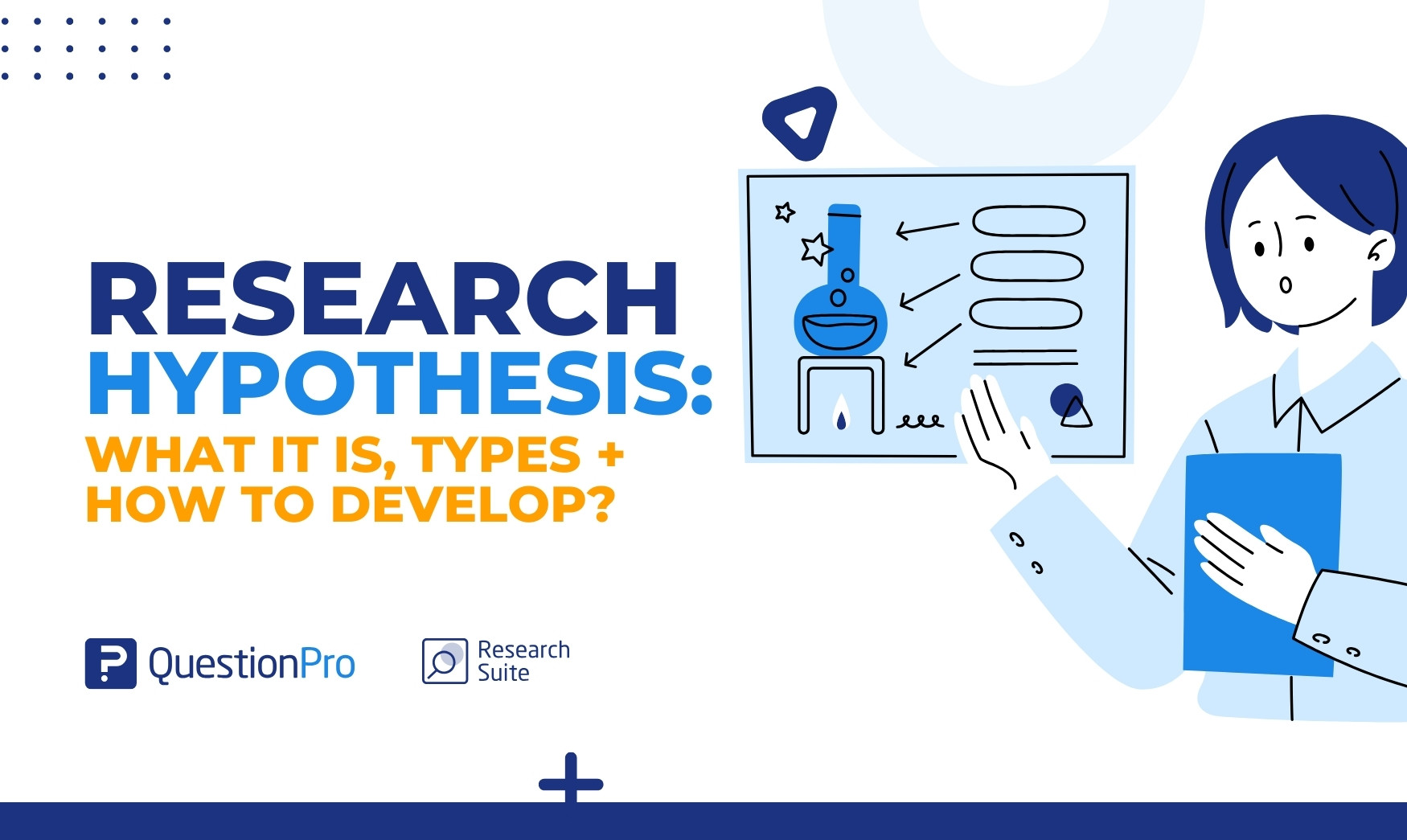
A research study starts with a question. Researchers worldwide ask questions and create research hypotheses. The effectiveness of research relies on developing a good research hypothesis. Examples of research hypotheses can guide researchers in writing effective ones.
In this blog, we’ll learn what a research hypothesis is, why it’s important in research, and the different types used in science. We’ll also guide you through creating your research hypothesis and discussing ways to test and evaluate it.
What is a Research Hypothesis?
A hypothesis is like a guess or idea that you suggest to check if it’s true. A research hypothesis is a statement that brings up a question and predicts what might happen.
It’s really important in the scientific method and is used in experiments to figure things out. Essentially, it’s an educated guess about how things are connected in the research.
A research hypothesis usually includes pointing out the independent variable (the thing they’re changing or studying) and the dependent variable (the result they’re measuring or watching). It helps plan how to gather and analyze data to see if there’s evidence to support or deny the expected connection between these variables.
Importance of Hypothesis in Research
Hypotheses are really important in research. They help design studies, allow for practical testing, and add to our scientific knowledge. Their main role is to organize research projects, making them purposeful, focused, and valuable to the scientific community. Let’s look at some key reasons why they matter:
- A research hypothesis helps test theories.
A hypothesis plays a pivotal role in the scientific method by providing a basis for testing existing theories. For example, a hypothesis might test the predictive power of a psychological theory on human behavior.
- It serves as a great platform for investigation activities.
It serves as a launching pad for investigation activities, which offers researchers a clear starting point. A research hypothesis can explore the relationship between exercise and stress reduction.
- Hypothesis guides the research work or study.
A well-formulated hypothesis guides the entire research process. It ensures that the study remains focused and purposeful. For instance, a hypothesis about the impact of social media on interpersonal relationships provides clear guidance for a study.
- Hypothesis sometimes suggests theories.
In some cases, a hypothesis can suggest new theories or modifications to existing ones. For example, a hypothesis testing the effectiveness of a new drug might prompt a reconsideration of current medical theories.
- It helps in knowing the data needs.
A hypothesis clarifies the data requirements for a study, ensuring that researchers collect the necessary information—a hypothesis guiding the collection of demographic data to analyze the influence of age on a particular phenomenon.
- The hypothesis explains social phenomena.
Hypotheses are instrumental in explaining complex social phenomena. For instance, a hypothesis might explore the relationship between economic factors and crime rates in a given community.
- Hypothesis provides a relationship between phenomena for empirical Testing.
Hypotheses establish clear relationships between phenomena, paving the way for empirical testing. An example could be a hypothesis exploring the correlation between sleep patterns and academic performance.
- It helps in knowing the most suitable analysis technique.
A hypothesis guides researchers in selecting the most appropriate analysis techniques for their data. For example, a hypothesis focusing on the effectiveness of a teaching method may lead to the choice of statistical analyses best suited for educational research.
Characteristics of a Good Research Hypothesis
A hypothesis is a specific idea that you can test in a study. It often comes from looking at past research and theories. A good hypothesis usually starts with a research question that you can explore through background research. For it to be effective, consider these key characteristics:
- Clear and Focused Language: A good hypothesis uses clear and focused language to avoid confusion and ensure everyone understands it.
- Related to the Research Topic: The hypothesis should directly relate to the research topic, acting as a bridge between the specific question and the broader study.
- Testable: An effective hypothesis can be tested, meaning its prediction can be checked with real data to support or challenge the proposed relationship.
- Potential for Exploration: A good hypothesis often comes from a research question that invites further exploration. Doing background research helps find gaps and potential areas to investigate.
- Includes Variables: The hypothesis should clearly state both the independent and dependent variables, specifying the factors being studied and the expected outcomes.
- Ethical Considerations: Check if variables can be manipulated without breaking ethical standards. It’s crucial to maintain ethical research practices.
- Predicts Outcomes: The hypothesis should predict the expected relationship and outcome, acting as a roadmap for the study and guiding data collection and analysis.
- Simple and Concise: A good hypothesis avoids unnecessary complexity and is simple and concise, expressing the essence of the proposed relationship clearly.
- Clear and Assumption-Free: The hypothesis should be clear and free from assumptions about the reader’s prior knowledge, ensuring universal understanding.
- Observable and Testable Results: A strong hypothesis implies research that produces observable and testable results, making sure the study’s outcomes can be effectively measured and analyzed.
When you use these characteristics as a checklist, it can help you create a good research hypothesis. It’ll guide improving and strengthening the hypothesis, identifying any weaknesses, and making necessary changes. Crafting a hypothesis with these features helps you conduct a thorough and insightful research study.
Types of Research Hypotheses
The research hypothesis comes in various types, each serving a specific purpose in guiding the scientific investigation. Knowing the differences will make it easier for you to create your own hypothesis. Here’s an overview of the common types:
01. Null Hypothesis
The null hypothesis states that there is no connection between two considered variables or that two groups are unrelated. As discussed earlier, a hypothesis is an unproven assumption lacking sufficient supporting data. It serves as the statement researchers aim to disprove. It is testable, verifiable, and can be rejected.
For example, if you’re studying the relationship between Project A and Project B, assuming both projects are of equal standard is your null hypothesis. It needs to be specific for your study.
02. Alternative Hypothesis
The alternative hypothesis is basically another option to the null hypothesis. It involves looking for a significant change or alternative that could lead you to reject the null hypothesis. It’s a different idea compared to the null hypothesis.
When you create a null hypothesis, you’re making an educated guess about whether something is true or if there’s a connection between that thing and another variable. If the null view suggests something is correct, the alternative hypothesis says it’s incorrect.
For instance, if your null hypothesis is “I’m going to be $1000 richer,” the alternative hypothesis would be “I’m not going to get $1000 or be richer.”
03. Directional Hypothesis
The directional hypothesis predicts the direction of the relationship between independent and dependent variables. They specify whether the effect will be positive or negative.
If you increase your study hours, you will experience a positive association with your exam scores. This hypothesis suggests that as you increase the independent variable (study hours), there will also be an increase in the dependent variable (exam scores).
04. Non-directional Hypothesis
The non-directional hypothesis predicts the existence of a relationship between variables but does not specify the direction of the effect. It suggests that there will be a significant difference or relationship, but it does not predict the nature of that difference.
For example, you will find no notable difference in test scores between students who receive the educational intervention and those who do not. However, once you compare the test scores of the two groups, you will notice an important difference.
05. Simple Hypothesis
A simple hypothesis predicts a relationship between one dependent variable and one independent variable without specifying the nature of that relationship. It’s simple and usually used when we don’t know much about how the two things are connected.
For example, if you adopt effective study habits, you will achieve higher exam scores than those with poor study habits.
06. Complex Hypothesis
A complex hypothesis is an idea that specifies a relationship between multiple independent and dependent variables. It is a more detailed idea than a simple hypothesis.
While a simple view suggests a straightforward cause-and-effect relationship between two things, a complex hypothesis involves many factors and how they’re connected to each other.
For example, when you increase your study time, you tend to achieve higher exam scores. The connection between your study time and exam performance is affected by various factors, including the quality of your sleep, your motivation levels, and the effectiveness of your study techniques.
If you sleep well, stay highly motivated, and use effective study strategies, you may observe a more robust positive correlation between the time you spend studying and your exam scores, unlike those who may lack these factors.
07. Associative Hypothesis
An associative hypothesis proposes a connection between two things without saying that one causes the other. Basically, it suggests that when one thing changes, the other changes too, but it doesn’t claim that one thing is causing the change in the other.
For example, you will likely notice higher exam scores when you increase your study time. You can recognize an association between your study time and exam scores in this scenario.
Your hypothesis acknowledges a relationship between the two variables—your study time and exam scores—without asserting that increased study time directly causes higher exam scores. You need to consider that other factors, like motivation or learning style, could affect the observed association.
08. Causal Hypothesis
A causal hypothesis proposes a cause-and-effect relationship between two variables. It suggests that changes in one variable directly cause changes in another variable.
For example, when you increase your study time, you experience higher exam scores. This hypothesis suggests a direct cause-and-effect relationship, indicating that the more time you spend studying, the higher your exam scores. It assumes that changes in your study time directly influence changes in your exam performance.
09. Empirical Hypothesis
An empirical hypothesis is a statement based on things we can see and measure. It comes from direct observation or experiments and can be tested with real-world evidence. If an experiment proves a theory, it supports the idea and shows it’s not just a guess. This makes the statement more reliable than a wild guess.
For example, if you increase the dosage of a certain medication, you might observe a quicker recovery time for patients. Imagine you’re in charge of a clinical trial. In this trial, patients are given varying dosages of the medication, and you measure and compare their recovery times. This allows you to directly see the effects of different dosages on how fast patients recover.
This way, you can create a research hypothesis: “Increasing the dosage of a certain medication will lead to a faster recovery time for patients.”
10. Statistical Hypothesis
A statistical hypothesis is a statement or assumption about a population parameter that is the subject of an investigation. It serves as the basis for statistical analysis and testing. It is often tested using statistical methods to draw inferences about the larger population.
In a hypothesis test, statistical evidence is collected to either reject the null hypothesis in favor of the alternative hypothesis or fail to reject the null hypothesis due to insufficient evidence.
For example, let’s say you’re testing a new medicine. Your hypothesis could be that the medicine doesn’t really help patients get better. So, you collect data and use statistics to see if your guess is right or if the medicine actually makes a difference.
If the data strongly shows that the medicine does help, you say your guess was wrong, and the medicine does make a difference. But if the proof isn’t strong enough, you can stick with your original guess because you didn’t get enough evidence to change your mind.
How to Develop a Research Hypotheses?
Step 1: identify your research problem or topic..
Define the area of interest or the problem you want to investigate. Make sure it’s clear and well-defined.
Start by asking a question about your chosen topic. Consider the limitations of your research and create a straightforward problem related to your topic. Once you’ve done that, you can develop and test a hypothesis with evidence.
Step 2: Conduct a literature review
Review existing literature related to your research problem. This will help you understand the current state of knowledge in the field, identify gaps, and build a foundation for your hypothesis. Consider the following questions:
- What existing research has been conducted on your chosen topic?
- Are there any gaps or unanswered questions in the current literature?
- How will the existing literature contribute to the foundation of your research?
Step 3: Formulate your research question
Based on your literature review, create a specific and concise research question that addresses your identified problem. Your research question should be clear, focused, and relevant to your field of study.
Step 4: Identify variables
Determine the key variables involved in your research question. Variables are the factors or phenomena that you will study and manipulate to test your hypothesis.
- Independent Variable: The variable you manipulate or control.
- Dependent Variable: The variable you measure to observe the effect of the independent variable.
Step 5: State the Null hypothesis
The null hypothesis is a statement that there is no significant difference or effect. It serves as a baseline for comparison with the alternative hypothesis.
Step 6: Select appropriate methods for testing the hypothesis
Choose research methods that align with your study objectives, such as experiments, surveys, or observational studies. The selected methods enable you to test your research hypothesis effectively.
Creating a research hypothesis usually takes more than one try. Expect to make changes as you collect data. It’s normal to test and say no to a few hypotheses before you find the right answer to your research question.
Testing and Evaluating Hypotheses
Testing hypotheses is a really important part of research. It’s like the practical side of things. Here, real-world evidence will help you determine how different things are connected. Let’s explore the main steps in hypothesis testing:
- State your research hypothesis.
Before testing, clearly articulate your research hypothesis. This involves framing both a null hypothesis, suggesting no significant effect or relationship, and an alternative hypothesis, proposing the expected outcome.
- Collect data strategically.
Plan how you will gather information in a way that fits your study. Make sure your data collection method matches the things you’re studying.
Whether through surveys, observations, or experiments, this step demands precision and adherence to the established methodology. The quality of data collected directly influences the credibility of study outcomes.
- Perform an appropriate statistical test.
Choose a statistical test that aligns with the nature of your data and the hypotheses being tested. Whether it’s a t-test, chi-square test, ANOVA, or regression analysis, selecting the right statistical tool is paramount for accurate and reliable results.
- Decide if your idea was right or wrong.
Following the statistical analysis, evaluate the results in the context of your null hypothesis. You need to decide if you should reject your null hypothesis or not.
- Share what you found.
When discussing what you found in your research, be clear and organized. Say whether your idea was supported or not, and talk about what your results mean. Also, mention any limits to your study and suggest ideas for future research.
The Role of QuestionPro to Develop a Good Research Hypothesis
QuestionPro is a survey and research platform that provides tools for creating, distributing, and analyzing surveys. It plays a crucial role in the research process, especially when you’re in the initial stages of hypothesis development. Here’s how QuestionPro can help you to develop a good research hypothesis:
- Survey design and data collection: You can use the platform to create targeted questions that help you gather relevant data.
- Exploratory research: Through surveys and feedback mechanisms on QuestionPro, you can conduct exploratory research to understand the landscape of a particular subject.
- Literature review and background research: QuestionPro surveys can collect sample population opinions, experiences, and preferences. This data and a thorough literature evaluation can help you generate a well-grounded hypothesis by improving your research knowledge.
- Identifying variables: Using targeted survey questions, you can identify relevant variables related to their research topic.
- Testing assumptions: You can use surveys to informally test certain assumptions or hypotheses before formalizing a research hypothesis.
- Data analysis tools: QuestionPro provides tools for analyzing survey data. You can use these tools to identify the collected data’s patterns, correlations, or trends.
- Refining your hypotheses: As you collect data through QuestionPro, you can adjust your hypotheses based on the real-world responses you receive.
A research hypothesis is like a guide for researchers in science. It’s a well-thought-out idea that has been thoroughly tested. This idea is crucial as researchers can explore different fields, such as medicine, social sciences, and natural sciences. The research hypothesis links theories to real-world evidence and gives researchers a clear path to explore and make discoveries.
QuestionPro Research Suite is a helpful tool for researchers. It makes creating surveys, collecting data, and analyzing information easily. It supports all kinds of research, from exploring new ideas to forming hypotheses. With a focus on using data, it helps researchers do their best work.
Are you interested in learning more about QuestionPro Research Suite? Take advantage of QuestionPro’s free trial to get an initial look at its capabilities and realize the full potential of your research efforts.
LEARN MORE FREE TRIAL
MORE LIKE THIS
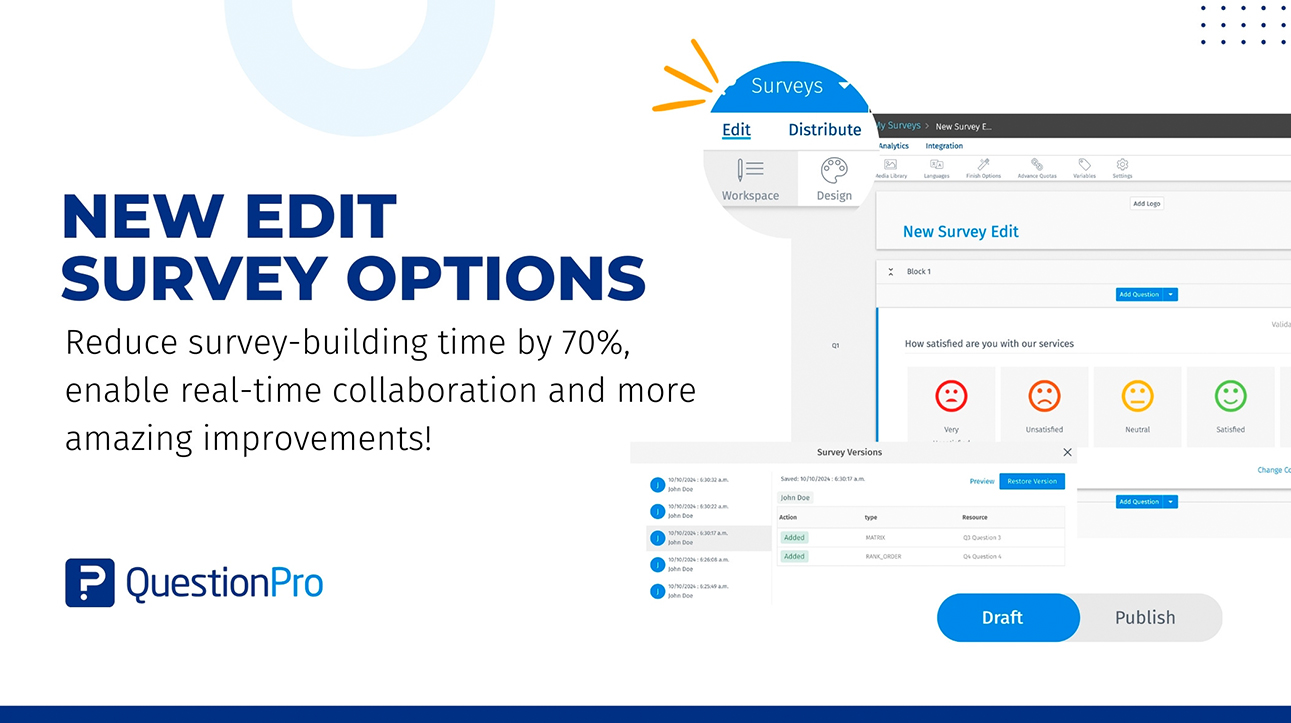
Edit survey: A new way of survey building and collaboration
Oct 10, 2024
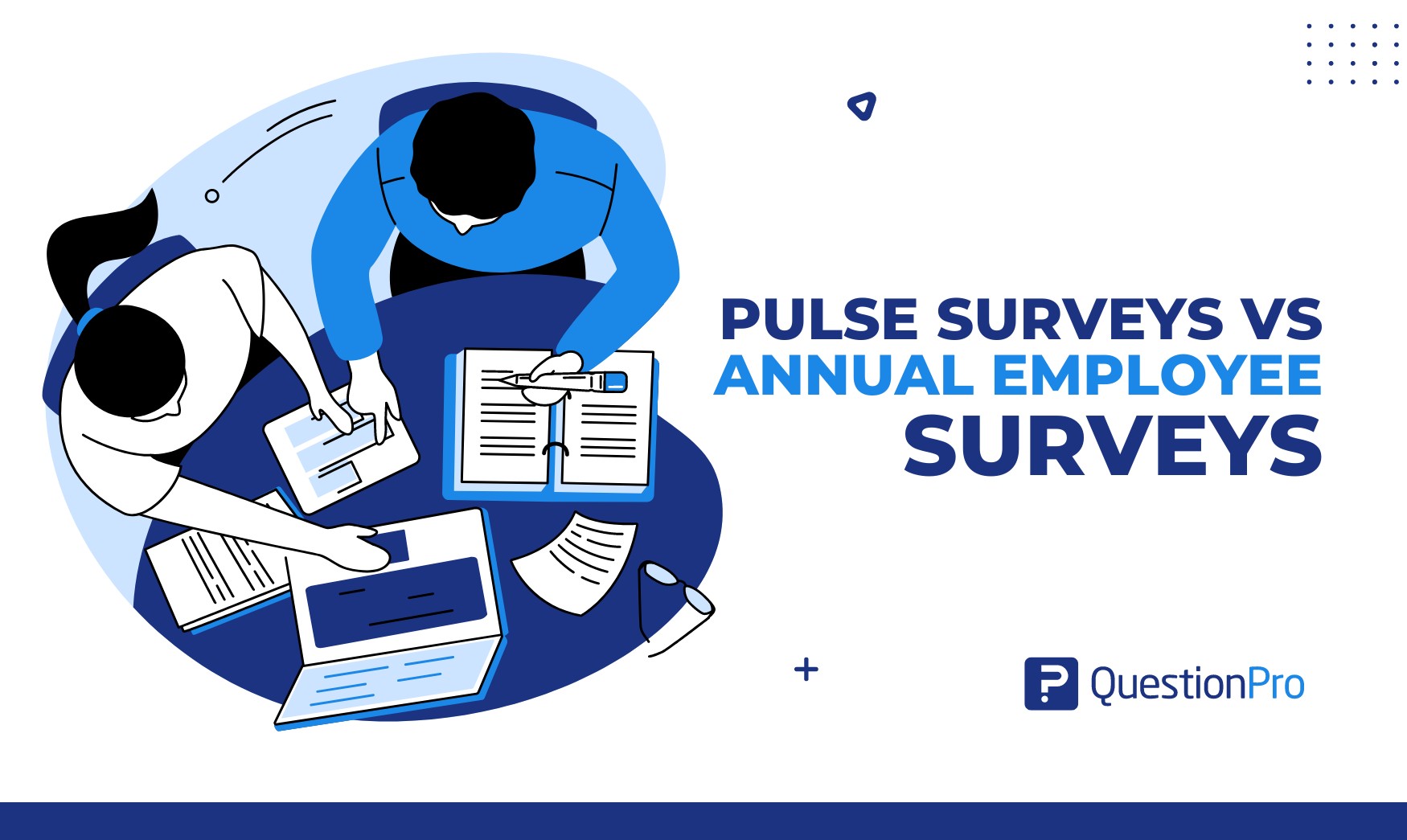
Pulse Surveys vs Annual Employee Surveys: Which to Use
Oct 4, 2024
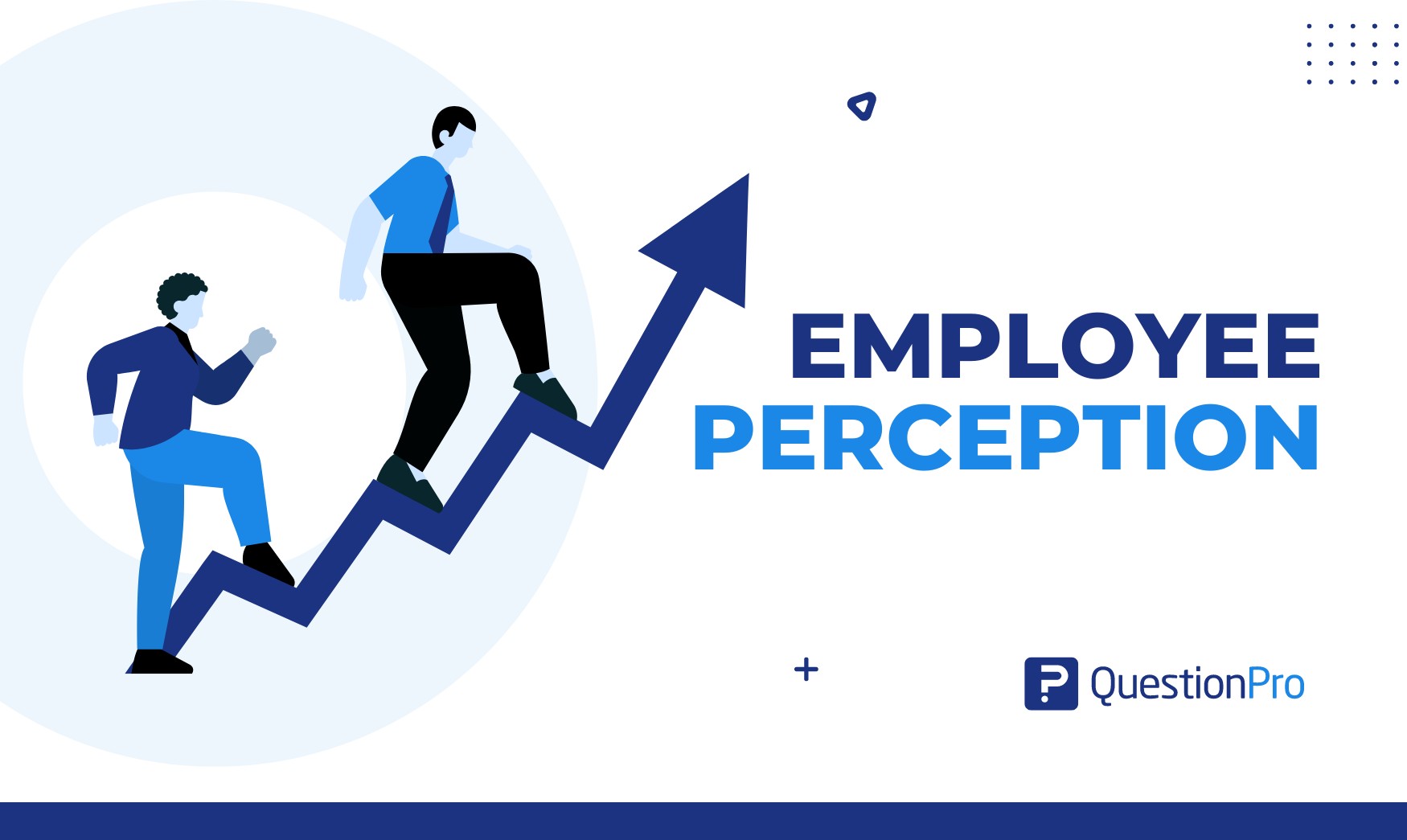
Employee Perception Role in Organizational Change
Oct 3, 2024
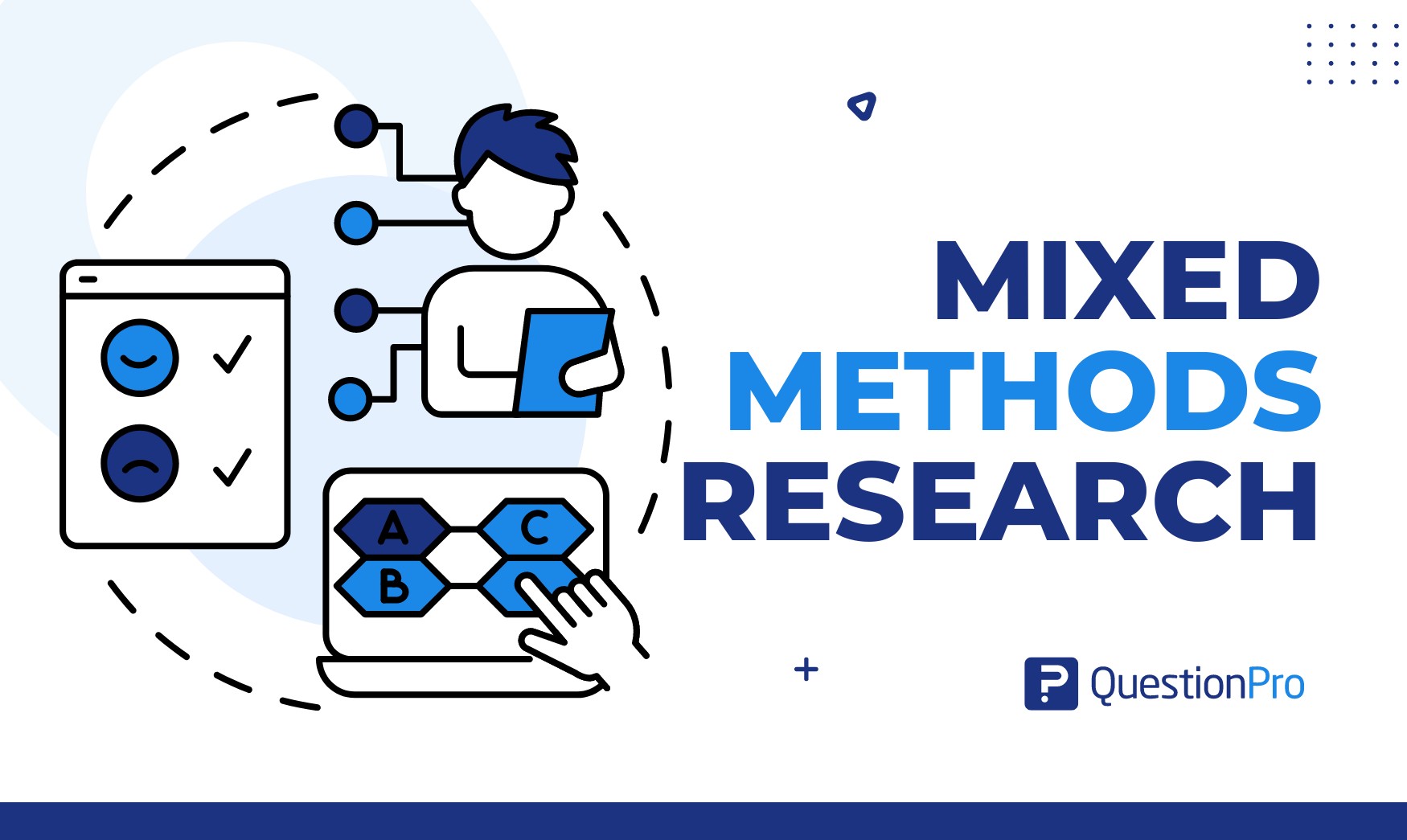
Mixed Methods Research: Overview of Designs and Techniques
Oct 2, 2024
Other categories
- Academic Research
- Artificial Intelligence
- Assessments
- Brand Awareness
- Case Studies
- Communities
- Consumer Insights
- Customer effort score
- Customer Engagement
- Customer Experience
- Customer Loyalty
- Customer Research
- Customer Satisfaction
- Employee Benefits
- Employee Engagement
- Employee Retention
- Friday Five
- General Data Protection Regulation
- Insights Hub
- Life@QuestionPro
- Market Research
- Mobile diaries
- Mobile Surveys
- New Features
- Online Communities
- Question Types
- Questionnaire
- QuestionPro Products
- Release Notes
- Research Tools and Apps
- Revenue at Risk
- Survey Templates
- Training Tips
- Tuesday CX Thoughts (TCXT)
- Uncategorized
- What’s Coming Up
- Workforce Intelligence
Research Hypothesis In Psychology: Types, & Examples
Saul McLeod, PhD
Editor-in-Chief for Simply Psychology
BSc (Hons) Psychology, MRes, PhD, University of Manchester
Saul McLeod, PhD., is a qualified psychology teacher with over 18 years of experience in further and higher education. He has been published in peer-reviewed journals, including the Journal of Clinical Psychology.
Learn about our Editorial Process
Olivia Guy-Evans, MSc
Associate Editor for Simply Psychology
BSc (Hons) Psychology, MSc Psychology of Education
Olivia Guy-Evans is a writer and associate editor for Simply Psychology. She has previously worked in healthcare and educational sectors.
On This Page:
A research hypothesis, in its plural form “hypotheses,” is a specific, testable prediction about the anticipated results of a study, established at its outset. It is a key component of the scientific method .
Hypotheses connect theory to data and guide the research process towards expanding scientific understanding
Some key points about hypotheses:
- A hypothesis expresses an expected pattern or relationship. It connects the variables under investigation.
- It is stated in clear, precise terms before any data collection or analysis occurs. This makes the hypothesis testable.
- A hypothesis must be falsifiable. It should be possible, even if unlikely in practice, to collect data that disconfirms rather than supports the hypothesis.
- Hypotheses guide research. Scientists design studies to explicitly evaluate hypotheses about how nature works.
- For a hypothesis to be valid, it must be testable against empirical evidence. The evidence can then confirm or disprove the testable predictions.
- Hypotheses are informed by background knowledge and observation, but go beyond what is already known to propose an explanation of how or why something occurs.
Predictions typically arise from a thorough knowledge of the research literature, curiosity about real-world problems or implications, and integrating this to advance theory. They build on existing literature while providing new insight.
Types of Research Hypotheses
Alternative hypothesis.
The research hypothesis is often called the alternative or experimental hypothesis in experimental research.
It typically suggests a potential relationship between two key variables: the independent variable, which the researcher manipulates, and the dependent variable, which is measured based on those changes.
The alternative hypothesis states a relationship exists between the two variables being studied (one variable affects the other).
A hypothesis is a testable statement or prediction about the relationship between two or more variables. It is a key component of the scientific method. Some key points about hypotheses:
- Important hypotheses lead to predictions that can be tested empirically. The evidence can then confirm or disprove the testable predictions.
In summary, a hypothesis is a precise, testable statement of what researchers expect to happen in a study and why. Hypotheses connect theory to data and guide the research process towards expanding scientific understanding.
An experimental hypothesis predicts what change(s) will occur in the dependent variable when the independent variable is manipulated.
It states that the results are not due to chance and are significant in supporting the theory being investigated.
The alternative hypothesis can be directional, indicating a specific direction of the effect, or non-directional, suggesting a difference without specifying its nature. It’s what researchers aim to support or demonstrate through their study.
Null Hypothesis
The null hypothesis states no relationship exists between the two variables being studied (one variable does not affect the other). There will be no changes in the dependent variable due to manipulating the independent variable.
It states results are due to chance and are not significant in supporting the idea being investigated.
The null hypothesis, positing no effect or relationship, is a foundational contrast to the research hypothesis in scientific inquiry. It establishes a baseline for statistical testing, promoting objectivity by initiating research from a neutral stance.
Many statistical methods are tailored to test the null hypothesis, determining the likelihood of observed results if no true effect exists.
This dual-hypothesis approach provides clarity, ensuring that research intentions are explicit, and fosters consistency across scientific studies, enhancing the standardization and interpretability of research outcomes.
Nondirectional Hypothesis
A non-directional hypothesis, also known as a two-tailed hypothesis, predicts that there is a difference or relationship between two variables but does not specify the direction of this relationship.
It merely indicates that a change or effect will occur without predicting which group will have higher or lower values.
For example, “There is a difference in performance between Group A and Group B” is a non-directional hypothesis.
Directional Hypothesis
A directional (one-tailed) hypothesis predicts the nature of the effect of the independent variable on the dependent variable. It predicts in which direction the change will take place. (i.e., greater, smaller, less, more)
It specifies whether one variable is greater, lesser, or different from another, rather than just indicating that there’s a difference without specifying its nature.
For example, “Exercise increases weight loss” is a directional hypothesis.

Falsifiability
The Falsification Principle, proposed by Karl Popper , is a way of demarcating science from non-science. It suggests that for a theory or hypothesis to be considered scientific, it must be testable and irrefutable.
Falsifiability emphasizes that scientific claims shouldn’t just be confirmable but should also have the potential to be proven wrong.
It means that there should exist some potential evidence or experiment that could prove the proposition false.
However many confirming instances exist for a theory, it only takes one counter observation to falsify it. For example, the hypothesis that “all swans are white,” can be falsified by observing a black swan.
For Popper, science should attempt to disprove a theory rather than attempt to continually provide evidence to support a research hypothesis.
Can a Hypothesis be Proven?
Hypotheses make probabilistic predictions. They state the expected outcome if a particular relationship exists. However, a study result supporting a hypothesis does not definitively prove it is true.
All studies have limitations. There may be unknown confounding factors or issues that limit the certainty of conclusions. Additional studies may yield different results.
In science, hypotheses can realistically only be supported with some degree of confidence, not proven. The process of science is to incrementally accumulate evidence for and against hypothesized relationships in an ongoing pursuit of better models and explanations that best fit the empirical data. But hypotheses remain open to revision and rejection if that is where the evidence leads.
- Disproving a hypothesis is definitive. Solid disconfirmatory evidence will falsify a hypothesis and require altering or discarding it based on the evidence.
- However, confirming evidence is always open to revision. Other explanations may account for the same results, and additional or contradictory evidence may emerge over time.
We can never 100% prove the alternative hypothesis. Instead, we see if we can disprove, or reject the null hypothesis.
If we reject the null hypothesis, this doesn’t mean that our alternative hypothesis is correct but does support the alternative/experimental hypothesis.
Upon analysis of the results, an alternative hypothesis can be rejected or supported, but it can never be proven to be correct. We must avoid any reference to results proving a theory as this implies 100% certainty, and there is always a chance that evidence may exist which could refute a theory.
How to Write a Hypothesis
- Identify variables . The researcher manipulates the independent variable and the dependent variable is the measured outcome.
- Operationalized the variables being investigated . Operationalization of a hypothesis refers to the process of making the variables physically measurable or testable, e.g. if you are about to study aggression, you might count the number of punches given by participants.
- Decide on a direction for your prediction . If there is evidence in the literature to support a specific effect of the independent variable on the dependent variable, write a directional (one-tailed) hypothesis. If there are limited or ambiguous findings in the literature regarding the effect of the independent variable on the dependent variable, write a non-directional (two-tailed) hypothesis.
- Make it Testable : Ensure your hypothesis can be tested through experimentation or observation. It should be possible to prove it false (principle of falsifiability).
- Clear & concise language . A strong hypothesis is concise (typically one to two sentences long), and formulated using clear and straightforward language, ensuring it’s easily understood and testable.
Consider a hypothesis many teachers might subscribe to: students work better on Monday morning than on Friday afternoon (IV=Day, DV= Standard of work).
Now, if we decide to study this by giving the same group of students a lesson on a Monday morning and a Friday afternoon and then measuring their immediate recall of the material covered in each session, we would end up with the following:
- The alternative hypothesis states that students will recall significantly more information on a Monday morning than on a Friday afternoon.
- The null hypothesis states that there will be no significant difference in the amount recalled on a Monday morning compared to a Friday afternoon. Any difference will be due to chance or confounding factors.
More Examples
- Memory : Participants exposed to classical music during study sessions will recall more items from a list than those who studied in silence.
- Social Psychology : Individuals who frequently engage in social media use will report higher levels of perceived social isolation compared to those who use it infrequently.
- Developmental Psychology : Children who engage in regular imaginative play have better problem-solving skills than those who don’t.
- Clinical Psychology : Cognitive-behavioral therapy will be more effective in reducing symptoms of anxiety over a 6-month period compared to traditional talk therapy.
- Cognitive Psychology : Individuals who multitask between various electronic devices will have shorter attention spans on focused tasks than those who single-task.
- Health Psychology : Patients who practice mindfulness meditation will experience lower levels of chronic pain compared to those who don’t meditate.
- Organizational Psychology : Employees in open-plan offices will report higher levels of stress than those in private offices.
- Behavioral Psychology : Rats rewarded with food after pressing a lever will press it more frequently than rats who receive no reward.
Have a language expert improve your writing
Run a free plagiarism check in 10 minutes, automatically generate references for free.
- Knowledge Base
- Methodology
- How to Write a Strong Hypothesis | Guide & Examples
How to Write a Strong Hypothesis | Guide & Examples
Published on 6 May 2022 by Shona McCombes .
A hypothesis is a statement that can be tested by scientific research. If you want to test a relationship between two or more variables, you need to write hypotheses before you start your experiment or data collection.
Table of contents
What is a hypothesis, developing a hypothesis (with example), hypothesis examples, frequently asked questions about writing hypotheses.
A hypothesis states your predictions about what your research will find. It is a tentative answer to your research question that has not yet been tested. For some research projects, you might have to write several hypotheses that address different aspects of your research question.
A hypothesis is not just a guess – it should be based on existing theories and knowledge. It also has to be testable, which means you can support or refute it through scientific research methods (such as experiments, observations, and statistical analysis of data).
Variables in hypotheses
Hypotheses propose a relationship between two or more variables . An independent variable is something the researcher changes or controls. A dependent variable is something the researcher observes and measures.
In this example, the independent variable is exposure to the sun – the assumed cause . The dependent variable is the level of happiness – the assumed effect .
Prevent plagiarism, run a free check.
Step 1: ask a question.
Writing a hypothesis begins with a research question that you want to answer. The question should be focused, specific, and researchable within the constraints of your project.
Step 2: Do some preliminary research
Your initial answer to the question should be based on what is already known about the topic. Look for theories and previous studies to help you form educated assumptions about what your research will find.
At this stage, you might construct a conceptual framework to identify which variables you will study and what you think the relationships are between them. Sometimes, you’ll have to operationalise more complex constructs.
Step 3: Formulate your hypothesis
Now you should have some idea of what you expect to find. Write your initial answer to the question in a clear, concise sentence.
Step 4: Refine your hypothesis
You need to make sure your hypothesis is specific and testable. There are various ways of phrasing a hypothesis, but all the terms you use should have clear definitions, and the hypothesis should contain:
- The relevant variables
- The specific group being studied
- The predicted outcome of the experiment or analysis
Step 5: Phrase your hypothesis in three ways
To identify the variables, you can write a simple prediction in if … then form. The first part of the sentence states the independent variable and the second part states the dependent variable.
In academic research, hypotheses are more commonly phrased in terms of correlations or effects, where you directly state the predicted relationship between variables.
If you are comparing two groups, the hypothesis can state what difference you expect to find between them.
Step 6. Write a null hypothesis
If your research involves statistical hypothesis testing , you will also have to write a null hypothesis. The null hypothesis is the default position that there is no association between the variables. The null hypothesis is written as H 0 , while the alternative hypothesis is H 1 or H a .
| Research question | Hypothesis | Null hypothesis |
|---|---|---|
| What are the health benefits of eating an apple a day? | Increasing apple consumption in over-60s will result in decreasing frequency of doctor’s visits. | Increasing apple consumption in over-60s will have no effect on frequency of doctor’s visits. |
| Which airlines have the most delays? | Low-cost airlines are more likely to have delays than premium airlines. | Low-cost and premium airlines are equally likely to have delays. |
| Can flexible work arrangements improve job satisfaction? | Employees who have flexible working hours will report greater job satisfaction than employees who work fixed hours. | There is no relationship between working hour flexibility and job satisfaction. |
| How effective is secondary school sex education at reducing teen pregnancies? | Teenagers who received sex education lessons throughout secondary school will have lower rates of unplanned pregnancy than teenagers who did not receive any sex education. | Secondary school sex education has no effect on teen pregnancy rates. |
| What effect does daily use of social media have on the attention span of under-16s? | There is a negative correlation between time spent on social media and attention span in under-16s. | There is no relationship between social media use and attention span in under-16s. |
Hypothesis testing is a formal procedure for investigating our ideas about the world using statistics. It is used by scientists to test specific predictions, called hypotheses , by calculating how likely it is that a pattern or relationship between variables could have arisen by chance.
A hypothesis is not just a guess. It should be based on existing theories and knowledge. It also has to be testable, which means you can support or refute it through scientific research methods (such as experiments, observations, and statistical analysis of data).
A research hypothesis is your proposed answer to your research question. The research hypothesis usually includes an explanation (‘ x affects y because …’).
A statistical hypothesis, on the other hand, is a mathematical statement about a population parameter. Statistical hypotheses always come in pairs: the null and alternative hypotheses. In a well-designed study , the statistical hypotheses correspond logically to the research hypothesis.
Cite this Scribbr article
If you want to cite this source, you can copy and paste the citation or click the ‘Cite this Scribbr article’ button to automatically add the citation to our free Reference Generator.
McCombes, S. (2022, May 06). How to Write a Strong Hypothesis | Guide & Examples. Scribbr. Retrieved 8 October 2024, from https://www.scribbr.co.uk/research-methods/hypothesis-writing/
Is this article helpful?
Shona McCombes
Other students also liked, operationalisation | a guide with examples, pros & cons, what is a conceptual framework | tips & examples, a quick guide to experimental design | 5 steps & examples.

What is Research Hypothesis: Definition, Types, and How to Develop
Read the blog to learn how a research hypothesis provides a clear and focused direction for a study and helps formulate research questions.
June 28, 2024

In this Article
Short on time? Get an AI generated summary of this article instead
AI-generated article summary
- Quota sampling divides a target population into subgroups and sets specific targets for the number of respondents from each subgroup
- It's a non-random sampling method that's useful when researchers need to ensure representation from different demographics or characteristics.
- Use quota sampling when you want to gather data quickly and cheaply while ensuring representation from important subgroups within your target audience.
Get fast AI summaries of customer calls and feedback with magic summarize in Decode
A research hypothesis provides a clear, testable statement that guides the direction and focus of a study.
The benefit is that the hypothesis makes selecting appropriate research methods or statistical means possible, making the analysis more effective and achieving a result. Above all, the idea selected for the research also makes the study more focused, and the hypothesis does that best of all. Finally, when researchers propose and test a hypothesis, they can confirm, enhance, reconsider, or reject any theories.
In this blog, we'll explore the concept of a research hypothesis, its significance in research, and the various types utilized in scientific studies. Additionally, we'll provide a step-by-step guide on formulating your research hypothesis and methods for testing and evaluating it.
What is a Research Hypothesis?
A research hypothesis is a foundational element in both qualitative and quantitative research . It is a precise, testable statement that predicts a possible relationship between two or more variables. This hypothesis is developed based on existing theories, observations, or previous research and aims to provide a direction for further investigation.
A research hypothesis starts with a question a researcher is trying to answer. It implies its effect or outcome and provides a basic ground to construct investigations, surveys, or other methods. It explains what a researcher can expect to find. Once the expectations are clearly stated, a researcher will build the methodology by choosing methods and tools for data collection and analysis.
Examples of Research Hypothesis
Here are some examples of research hypotheses across various fields:
- Hypothesis: Individuals who practice mindfulness meditation daily will report lower levels of stress compared to those who do not practice mindfulness.
- Independent Variable: Mindfulness meditation practice.
- Dependent Variable: Levels of stress.
- Hypothesis: Students who receive personalized tutoring in math will perform better on standardized tests than those who do not.
- Independent Variable: Personalized tutoring in math.
- Dependent Variable: Performance on standardized tests.
- Hypothesis: Consumers exposed to advertisements with emotional appeals will have a higher purchase intention than those with rational appeals.
- Independent Variable: Type of advertisement appeal (emotional vs. rational).
- Dependent Variable: Purchase intent .
- Hypothesis: Increasing the minimum wage will decrease employee turnover rates in the retail sector.
- Independent Variable: Minimum wage increase.
- Dependent Variable: Employee turnover rates in the retail sector.
Technology:
- Hypothesis: Users who receive personalized recommendations on a streaming platform will spend more time watching content than users who do not receive personalized recommendations.
- Independent Variable: Personalized recommendations.
- Dependent Variable: Time spent watching content.
[ Note : Here, Independent Variable is the factor manipulated or controlled in an experiment to observe its effect.
Dependent Variable is the factor that is measured or observed in an experiment to assess the impact of the independent variable.]
What is the Importance of Hypothesis in Research?

The importance of a hypothesis in research cannot be overstated, as it serves several crucial functions in the scientific inquiry process.
Here are the key reasons why hypotheses are fundamental to research:
1. Guides the Research Process
A hypothesis gives a study a clear direction as it outlines what you intend to study and establishes the relationship you are trying to find between variables. It is precise and to the point, which helps formulate your research questions and plan your methods. Using a hypothesis helps organize the testing process from the beginning to the end of the study.
2. Defines the Variables
A well-formulated hypothesis specifies the independent and dependent variables. It defines the object of manipulation and measurement. According to the definition, the hypothesis is an assumption about the relationship between the objects of study. Since statistics is a field of research, the hypothesis is a predictive statement that can be tested empirically.
3. Facilitates Testability and Empirical Investigation
A well-defined hypothesis indicates a clear relationship between the studied variables, thus providing a foundation for designing experiments and observations. In some cases, a null hypothesis is stated to subsequently apply the appropriate statistical test to either validate an already formulated and appropriate hypothesis or reject it.
4. Enhances Objectivity
A hypothesis helps minimize researcher bias by proposing a specific prediction. It forces the researcher to rely on empirical data rather than subjective opinions or beliefs. This objectivity is crucial for maintaining the integrity of the scientific process and ensuring that the findings are credible and reliable.
5. Promotes Critical Thinking and Theoretical Frameworks
Creating a reasonable and viable hypothesis starts with deeply understanding the problem and the field. With a clear sense of the scope of existing evidence and knowledge, there would be a way to go beyond what other researchers have already done. By thoroughly reviewing the literature, researchers are in a position to critically evaluate it and identify problems or questions that remain unresolved.
6. Enables Structured Analysis and Interpretation
A hypothesis is a tentative assumption that provides a context for data analysis and interpretation. It allows for determining specific statistical tests to run and understanding how to interpret them. If the results support the hypothesis, then there is sufficient evidence to claim and infer that the chosen variables are related in a particular way to each other.
If the hypothesis does not match the outcomes, it raises the question of the theoretical assumptions supporting it and additional testing that may be indicated.
7. Drives Scientific Progress
Testing hypotheses continually allows researchers to enrich knowledge beyond merely investigating a particular aspect. The data supporting both hypotheses, the data refuting them, may give rise to new theories, which may serve as the foundation for new research. Such a loop significantly benefits researchers who need to extend their understanding of a particular aspect of the outer world.
{{cta-button}}
What Are The Types of Research Hypotheses?
Research hypotheses can broadly be categorized into several types, each serving different purposes in scientific inquiry.
Here are the main types of research hypotheses:
1. Simple Hypothesis
A simple hypothesis posits a relationship between two variables. It suggests a direct cause-and-effect relationship without specifying the direction of the effect. For example:
"Increased exercise leads to improved cardiovascular health."
2. Complex Hypothesis
Complex hypotheses involve relationships between multiple variables. These hypotheses may propose how several factors interact to produce a particular outcome. For example:
"The interaction between genetic predisposition, diet, and exercise influences longevity."
3. Associative Hypothesis
An associative hypothesis suggests that there is a relationship between two variables, but it does not imply causation. It states that changes in one variable are associated with changes in another. For example:
"There is a correlation between income level and access to healthcare services."
4. Causal Hypothesis
A causal hypothesis asserts that changes in one variable directly cause changes in another. It implies a cause-and-effect relationship that can be tested through experimentation or controlled observation. For example:
"Increased consumption of sugary drinks causes an increase in body weight."
5. Directional Hypothesis
A directional hypothesis predicts the direction of the relationship between variables. It specifies whether one variable will increase or decrease in response to changes in another variable. For example:
"Higher levels of education lead to higher income levels."
6. Non-directional Hypothesis
A non-directional hypothesis does not predict the direction of the relationship between variables. It simply suggests that there is a relationship without specifying whether one variable will increase or decrease in response to changes in another variable. For example:
"There is a relationship between social media use and levels of anxiety."
7. Null Hypothesis (H₀)
The null hypothesis states no significant relationship exists between the variables being studied. It proposes that any observed differences or effects are due to random chance or sampling error. It is often used to test against the alternative hypothesis (H₁), which proposes the existence of a relationship or effect. For example:
"There is no significant difference in test scores between students who study with music and students who study in silence."
How to Develop a Research Hypothesis?

Developing a research hypothesis involves a systematic process to ensure clarity, testability, and relevance to the research question. Here’s a step-by-step guide on how to develop a research hypothesis:
Step 1: Identify the Research Problem or Question
Start by clearly defining the research problem or question you want to investigate. This could be based on gaps in existing literature, observations, theories, or practical issues.
Step 2: Review Existing Literature
Conduct a thorough review of relevant literature to understand what is already known about the topic. Identify theories, findings, and gaps in knowledge that can help inform the development of your hypothesis.
Step 3: Specify Variables
Identify the variables involved in your study. Variables are measurable traits, conditions, or characteristics that can change or vary.
Specifically, determine:
Independent Variable: The factor you manipulate or study in your research.
Dependent Variable: The outcome or response you are measuring or observing about the independent variable.
Step 4: Formulate a Hypothesis
Formulate a clear and specific hypothesis based on your research problem, literature review, and identified variables. A good hypothesis should:
State the expected relationship between the independent and dependent variables.
Be testable through empirical research methods (e.g., experiments, surveys, observations).
Be concise and specific, avoiding ambiguity.
Simple hypothesis: "Increased exposure to sunlight leads to higher levels of vitamin D in humans."
Directional hypothesis: "Children who participate in regular physical activity will have lower levels of obesity than children who do not."
Non-directional hypothesis: "There is a relationship between job satisfaction and employee turnover."
Step 5: Consider Alternative Hypotheses
While formulating your hypothesis, consider alternative explanations or hypotheses that could also explain the relationship between your variables. This helps in ensuring that your hypothesis is well-grounded and comprehensive.
Step 6: Ensure Testability
Ensure that your hypothesis is testable using appropriate research methods and techniques. Define how to measure or manipulate the variables to gather empirical evidence supporting or refuting your hypothesis.
Step 7: Write and Refine
Write down your hypothesis in a clear and concise statement. Revise and refine it as needed to improve clarity and specificity. Ensure that it aligns with the objectives of your study and effectively addresses the research question.
Step 8: Seek Feedback
Before finalizing your hypothesis, seek feedback from colleagues, mentors, or peers in your field. Their input can help identify potential weaknesses or ambiguities in your hypothesis and suggest improvements.
Step 9: Finalize Your Hypothesis
Once you have refined your hypothesis based on feedback and considerations, finalize it as the guiding statement for your research study.
Characteristics of a Good Research Hypothesis
A good research hypothesis possesses several key characteristics that make it effective and suitable for investigation:
1. Clear and Specific
The hypothesis should be precise in its wording and focus. It should clearly state what the researcher intends to investigate or test.
2. Testable
A hypothesis must be capable of being empirically tested and verified or falsified through observation or experimentation. This means there should be a way to gather data that supports or refutes the hypothesis.
3. Falsifiable
There must be a possibility of proving the hypothesis false. A hypothesis that cannot be proven false typically falls outside scientific inquiry. This criterion ensures that research remains objective and open to revision based on evidence.
4. Grounded in Theory
A good hypothesis is usually based on existing theories or literature. It should be informed by a solid understanding of the topic and build upon previous research findings or established principles.
5. Rationale
It should provide a logical rationale or explanation for the expected outcome. This rationale is often derived from the literature review or preliminary observations.
6. Empirical Relevance
The hypothesis should address a question relevant to the field of study and contribute to existing knowledge. It should propose a relationship or difference between variables that is worth investigating.
While the hypothesis should be clear and specific, it should also be concise and to the point. It typically consists of a statement or a few sentences summarizing the expected relationship between variables.
8. Variables
A hypothesis should identify the variables involved and specify how they are expected to relate. This includes independent variables (the factors that are manipulated or controlled) and dependent variables (the outcomes or effects being measured).
9. Observable and Measurable
The variables in the hypothesis should be observable and measurable, allowing for data collection that can be analyzed statistically.
10. Revisable
A hypothesis is not a conclusion but a tentative assumption or prediction that guides the research process. It should be open to revision based on the study's findings.
The Role of Decode in Testing Research Hypotheses

Decode is a powerful survey and consumer research platform powered by Insights AI, that can be instrumental in testing research hypotheses.
Here's how Decode can support you in this process:
- Survey Design and Data Collection: Craft targeted questions using Decode's intuitive interface to gather relevant data for your research.
- Exploratory Research: Conduct exploratory research to understand the landscape of your topic—Leverage Decode's functionalities for surveys and feedback mechanisms to gain valuable insights from your target audience.
- Literature Review and Background Research: Supplement your literature review by collecting data on sample populations' opinions, experiences, and preferences through Decode surveys . This combined data and a thorough literature evaluation can help you build a well-grounded hypothesis with a strong foundation in real-world knowledge.
- Identifying Variables: Design targeted survey questions within Decode to pinpoint relevant variables crucial to your research topic.
- Testing Assumptions: Before solidifying your research hypothesis, informally test your assumptions using surveys created on Decode. This allows for early feedback and potential refinement.
- Data Analysis Tools: Decode provides built-in data analysis tools. Utilize these tools to uncover patterns, correlations, and trends within the data you collect through your surveys.
- Refining Your Hypotheses: As you gather data through Decode surveys, you can continuously adjust and refine your hypotheses based on the real-world responses you receive. This iterative process ensures your hypothesis stays aligned with the insights you uncover.
Final Words
A research hypothesis serves as a guide for scientists. It is a tested idea that applies across different fields, including medicine, social sciences, and natural sciences. Integrating theories with hands-on information assists researchers in exploring and discovering new information.
Decode is a valuable tool for researchers. It simplifies creating surveys, gathering data, and analyzing information. It supports all types of research, from forming hypotheses to testing them. Start a free trial to explore its features and maximize your research potential.
Frequently Asked Questions
What is a research hypothesis example.
A research hypothesis example is: "Students who receive daily math tutoring will have higher test scores than students who do not."
What do you write in a research hypothesis?
In a research hypothesis, you write a clear and testable statement predicting the relationship between two or more variables. It should specify the variables and the expected outcome.
What is the purpose of a research hypothesis?
A research hypothesis provides a focused direction for research. It guides the study design, data collection, and analysis by predicting a specific outcome that can be tested.
What are the three major types of hypotheses?
The three major types of hypotheses are:
- Null Hypothesis (H₀): States that there is no effect or relationship between variables.
- Alternative Hypothesis (H₁): Suggests that there is an effect or relationship between variables.
- Directional Hypothesis: Specifies the expected direction of the relationship between variables (e.g., positive or negative).
Lorem ipsum dolor sit amet, consectetur adipiscing elit. Suspendisse varius enim in eros elementum tristique. Duis cursus, mi quis viverra ornare, eros dolor interdum nulla, ut commodo diam libero vitae erat. Aenean faucibus nibh et justo cursus id rutrum lorem imperdiet. Nunc ut sem vitae risus tristique posuere.
With lots of unique blocks, you can easily build a page without coding.
Click on Study templates
Start from scratch
Add blocks to the content
Saving the Template
Publish the Template
Soham is a true Manchester United fan who finds joy in more than just football. Whether navigating the open road, scoring virtual goals in FIFA, reading novels, or enjoying quality time with friends, Soham embraces a life full of diverse passions.
Product Marketing Specialist
Related Articles

Building Customer Loyalty: Best Practices and Strategies
Customer loyalty is a cornerstone of any successful business. This comprehensive guide will explore various strategies and tactics to help you cultivate a loyal customer base.

How to Create Buyer Personas That Drive Product and Marketing Success?
Develop detailed, data-backed buyer personas to improve product development, refine marketing strategies, and deliver personalized experiences.

What is a Survey? Benefits, Types, Blocks, Use Cases, and More
Discover the power of surveys: types, benefits, use cases, and how to create effective surveys using the AI-powered platform Decode.

Top AI Events You Do Not Want to Miss in 2024
Here are all the top AI events for 2024, curated in one convenient place just for you.

Top Insights Events You Do Not Want to Miss in 2024
Here are all the top Insights events for 2024, curated in one convenient place just for you.

Top CX Events You Do Not Want to Miss in 2024
Here are all the top CX events for 2024, curated in one convenient place just for you.

How to Build an Experience Map: A Complete Guide
An experience map is essential for businesses, as it highlights the customer journey, uncovering insights to improve user experiences and address pain points. Read to find more!

Everything You Need to Know about Intelligent Scoring
Are you curious about Intelligent Scoring and how it differs from regular scoring? Discover its applications and benefits. Read on to learn more!

Qualitative Research Methods and Its Advantages In Modern User Research
Discover how to leverage qualitative research methods, including moderated sessions, to gain deep user insights and enhance your product and UX decisions.

The 10 Best Customer Experience Platforms to Transform Your CX
Explore the top 10 CX platforms to revolutionize customer interactions, enhance satisfaction, and drive business growth.

TAM SAM SOM: What It Means and How to Calculate It?
Understanding TAM, SAM, SOM helps businesses gauge market potential. Learn their definitions and how to calculate them for better business decisions and strategy.

Understanding Likert Scales: Advantages, Limitations, and Questions
Using Likert scales can help you understand how your customers view and rate your product. Here's how you can use them to get the feedback you need.

Mastering the 80/20 Rule to Transform User Research
Find out how the Pareto Principle can optimize your user research processes and lead to more impactful results with the help of AI.

Understanding Consumer Psychology: The Science Behind What Makes Us Buy
Gain a comprehensive understanding of consumer psychology and learn how to apply these insights to inform your research and strategies.

A Guide to Website Footers: Best Design Practices & Examples
Explore the importance of website footers, design best practices, and how to optimize them using UX research for enhanced user engagement and navigation.

Customer Effort Score: Definition, Examples, Tips
A great customer score can lead to dedicated, engaged customers who can end up being loyal advocates of your brand. Here's what you need to know about it.

How to Detect and Address User Pain Points for Better Engagement
Understanding user pain points can help you provide a seamless user experiences that makes your users come back for more. Here's what you need to know about it.
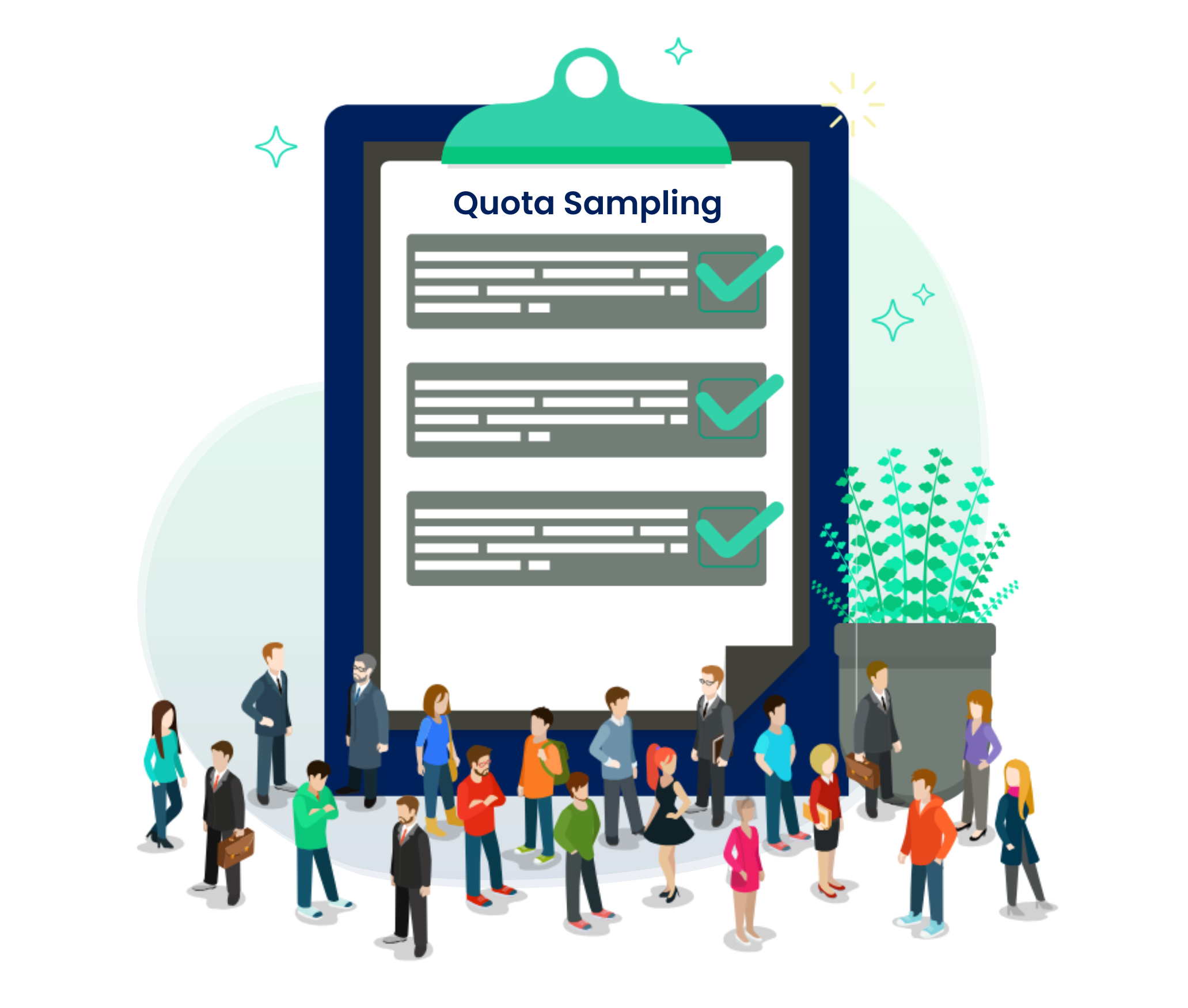
What is Quota Sampling? Definition, Types, Examples, and How to Use It?
Discover Quota Sampling: Learn its process, types, and benefits for accurate consumer insights and informed marketing decisions. Perfect for researchers and brand marketers!

What Is Accessibility Testing? A Comprehensive Guide
Ensure inclusivity and compliance with accessibility standards through thorough testing. Improve user experience and mitigate legal risks. Learn more.

Maximizing Your Research Efficiency with AI Transcriptions
Explore how AI transcription can transform your market research by delivering precise and rapid insights from audio and video recordings.

Understanding the False Consensus Effect: How to Manage it
The false consensus effect can cause incorrect assumptions and ultimately, the wrong conclusions. Here's how you can overcome it.

5 Banking Customer Experience Trends to Watch Out for in 2024
Discover the top 5 banking customer experience trends to watch out for in 2024. Stay ahead in the evolving financial landscape.

The Ultimate Guide to Regression Analysis: Definition, Types, Usage & Advantages
Master Regression Analysis: Learn types, uses & benefits in consumer research for precise insights & strategic decisions.

EyeQuant Alternative
Meet Qatalyst, your best eyequant alternative to improve user experience and an AI-powered solution for all your user research needs.
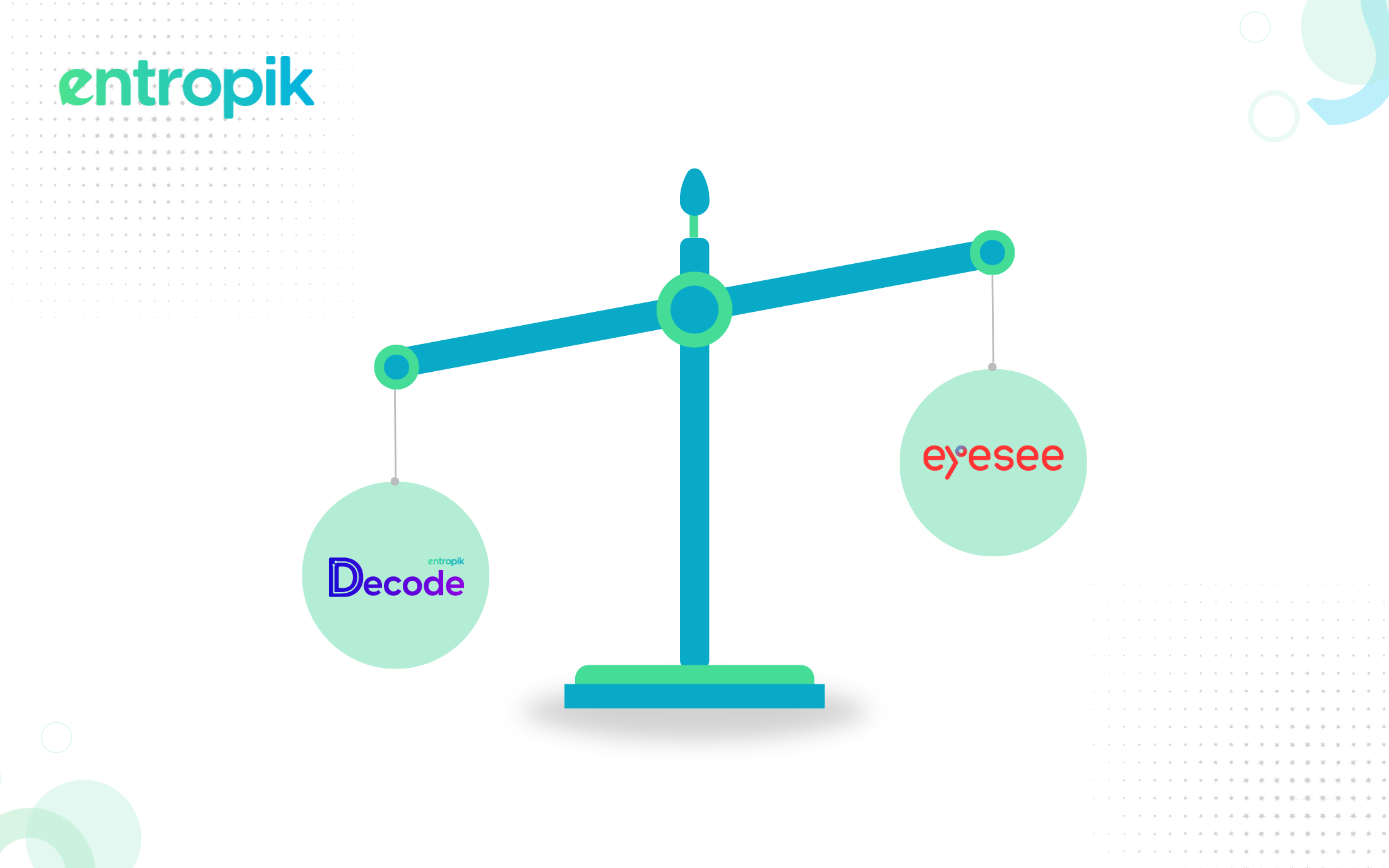
EyeSee Alternative
Embrace the Insights AI revolution: Meet Decode, your innovative solution for consumer insights, offering a compelling alternative to EyeSee.


Skeuomorphism in UX Design: Is It Dead?
Skeuomorphism in UX design creates intuitive interfaces using familiar real-world visuals to help users easily understand digital products. Do you know how?

Top 6 Wireframe Tools and Ways to Test Your Designs
Wireframe tools assist designers in planning and visualizing the layout of their websites. Look through this list of wireframing tools to find the one that suits you best.

Revolutionizing Customer Interaction: The Power of Conversational AI
Conversational AI enhances customer service across various industries, offering intelligent, context-aware interactions that drive efficiency and satisfaction. Here's how.

User Story Mapping: A Powerful Tool for User-Centered Product Development
Learn about user story mapping and how it can be used for successful product development with this blog.

Understanding Customer Retention: How to Keep Your Customers Coming Back
Understanding customer retention is key to building a successful brand that has repeat, loyal customers. Here's what you need to know about it.

Demographic Segmentation: How Brands Can Use it to Improve Marketing Strategies
Read this blog to learn what demographic segmentation means, its importance, and how it can be used by brands.

Mastering Product Positioning: A UX Researcher's Guide
Read this blog to understand why brands should have a well-defined product positioning and how it affects the overall business.

Discrete Vs. Continuous Data: Everything You Need To Know
Explore the differences between discrete and continuous data and their impact on business decisions and customer insights.

50+ Employee Engagement Survey Questions
Understand how an employee engagement survey provides insights into employee satisfaction and motivation, directly impacting productivity and retention.
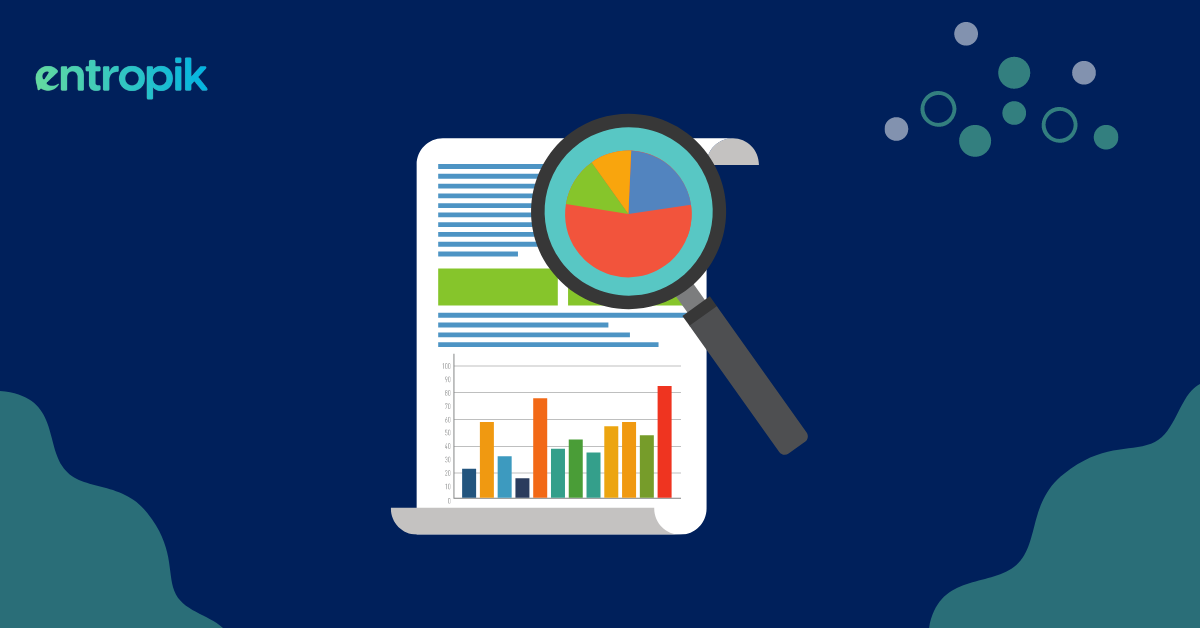
What is Experimental Research: Definition, Types & Examples
Understand how experimental research enables researchers to confidently identify causal relationships between variables and validate findings, enhancing credibility.

A Guide to Interaction Design
Interaction design can help you create engaging and intuitive user experiences, improving usability and satisfaction through effective design principles. Here's how.

Exploring the Benefits of Stratified Sampling
Understanding stratified sampling can improve research accuracy by ensuring diverse representation across key subgroups. Here's how.

A Guide to Voice Recognition in Enhancing UX Research
Learn the importance of using voice recognition technology in user research for enhanced user feedback and insights.

The Ultimate Figma Design Handbook: Design Creation and Testing
The Ultimate Figma Design Handbook covers setting up Figma, creating designs, advanced features, prototyping, and testing designs with real users.

The Power of Organization: Mastering Information Architectures
Understanding the art of information architectures can enhance user experiences by organizing and structuring digital content effectively, making information easy to find and navigate. Here's how.

Convenience Sampling: Examples, Benefits, and When To Use It
Read the blog to understand how convenience sampling allows for quick and easy data collection with minimal cost and effort.

What is Critical Thinking, and How Can it be Used in Consumer Research?
Learn how critical thinking enhances consumer research and discover how Decode's AI-driven platform revolutionizes data analysis and insights.

How Business Intelligence Tools Transform User Research & Product Management
This blog explains how Business Intelligence (BI) tools can transform user research and product management by providing data-driven insights for better decision-making.

What is Face Validity? Definition, Guide and Examples
Read this blog to explore face validity, its importance, and the advantages of using it in market research.
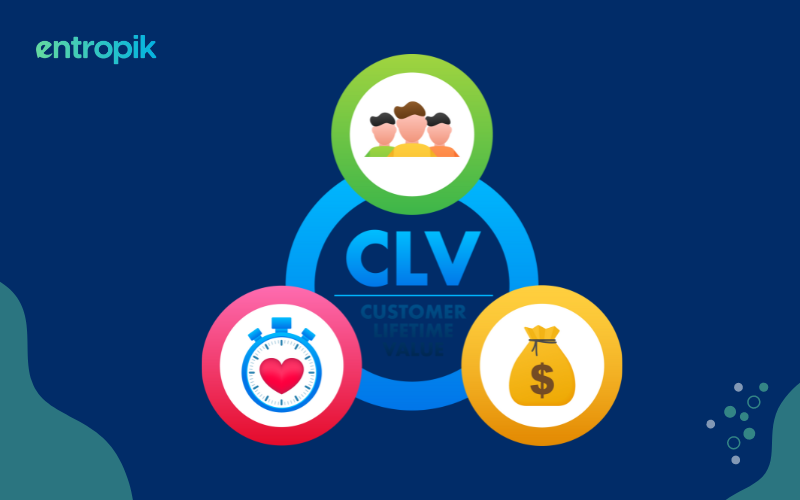
What is Customer Lifetime Value, and How To Calculate It?
Read this blog to understand how Customer Lifetime Value (CLV) can help your business optimize marketing efforts, improve customer retention, and increase profitability.

Systematic Sampling: Definition, Examples, and Types
Explore how systematic sampling helps researchers by providing a structured method to select representative samples from larger populations, ensuring efficiency and reducing bias.

Understanding Selection Bias: A Guide
Selection bias can affect the type of respondents you choose for the study and ultimately the quality of responses you receive. Here’s all you need to know about it.

A Guide to Designing an Effective Product Strategy
Read this blog to explore why a well-defined product strategy is required for brands while developing or refining a product.

A Guide to Minimum Viable Product (MVP) in UX: Definition, Strategies, and Examples
Discover what an MVP is, why it's crucial in UX, strategies for creating one, and real-world examples from top companies like Dropbox and Airbnb.

Asking Close Ended Questions: A Guide
Asking the right close ended questions is they key to getting quantitiative data from your users. Her's how you should do it.

Creating Website Mockups: Your Ultimate Guide to Effective Design
Read this blog to learn website mockups- tools, examples and how to create an impactful website design.

Understanding Your Target Market And Its Importance In Consumer Research
Read this blog to learn about the importance of creating products and services to suit the needs of your target audience.

What Is a Go-To-Market Strategy And How to Create One?
Check out this blog to learn how a go-to-market strategy helps businesses enter markets smoothly, attract more customers, and stand out from competitors.

What is Confirmation Bias in Consumer Research?
Learn how confirmation bias affects consumer research, its types, impacts, and practical tips to avoid it for more accurate and reliable insights.

Market Penetration: The Key to Business Success
Understanding market penetration is key to cracking the code to sustained business growth and competitive advantage in any industry. Here's all you need to know about it.

How to Create an Effective User Interface
Having a simple, clear user interface helps your users find what they really want, improving the user experience. Here's how you can achieve it.
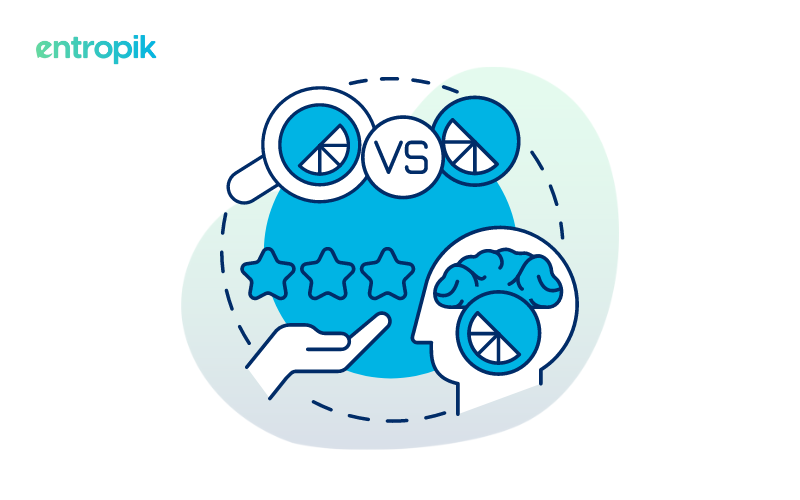
Product Differentiation and What It Means for Your Business
Discover how product differentiation helps businesses stand out with unique features, innovative designs, and exceptional customer experiences.

What is Ethnographic Research? Definition, Types & Examples
Read this blog to understand Ethnographic research, its relevance in today’s business landscape and how you can leverage it for your business.

Product Roadmap: The 2024 Guide [with Examples]
Read this blog to understand how a product roadmap can align stakeholders by providing a clear product development and delivery plan.

Product Market Fit: Making Your Products Stand Out in a Crowded Market
Delve into the concept of product-market fit, explore its significance, and equip yourself with practical insights to achieve it effectively.

Consumer Behavior in Online Shopping: A Comprehensive Guide
Ever wondered how online shopping behavior can influence successful business decisions? Read on to learn more.

How to Conduct a First Click Test?
Why are users leaving your site so fast? Learn how First Click Testing can help. Discover quick fixes for frustration and boost engagement.

What is Market Intelligence? Methods, Types, and Examples
Read the blog to understand how marketing intelligence helps you understand consumer behavior and market trends to inform strategic decision-making.

What is a Longitudinal Study? Definition, Types, and Examples
Is your long-term research strategy unclear? Learn how longitudinal studies decode complexity. Read on for insights.

What Is the Impact of Customer Churn on Your Business?
Understanding and reducing customer churn is the key to building a healthy business that keeps customers satisfied. Here's all you need to know about it.

The Ultimate Design Thinking Guide
Discover the power of design thinking in UX design for your business. Learn the process and key principles in our comprehensive guide.

100+ Yes Or No Survey Questions Examples
Yes or no survey questions simplify responses, aiding efficiency, clarity, standardization, quantifiability, and binary decision-making. Read some examples!

What is Customer Segmentation? The ULTIMATE Guide
Explore how customer segmentation targets diverse consumer groups by tailoring products, marketing, and experiences to their preferred needs.

Crafting User-Centric Websites Through Responsive Web Design
Find yourself reaching for your phone instead of a laptop for regular web browsing? Read on to find out what that means & how you can leverage it for business.

How Does Product Placement Work? Examples and Benefits
Read the blog to understand how product placement helps advertisers seek subtle and integrated ways to promote their products within entertainment content.

The Importance of Reputation Management, and How it Can Make or Break Your Brand
A good reputation management strategy is crucial for any brand that wants to keep its customers loyal. Here's how brands can focus on it.

A Comprehensive Guide to Human-Centered Design
Are you putting the human element at the center of your design process? Read this blog to understand why brands must do so.

How to Leverage Customer Insights to Grow Your Business
Genuine insights are becoming increasingly difficult to collect. Read on to understand the challenges and what the future holds for customer insights.

The Complete Guide to Behavioral Segmentation
Struggling to reach your target audience effectively? Discover how behavioral segmentation can transform your marketing approach. Read more in our blog!

Creating a Unique Brand Identity: How to Make Your Brand Stand Out
Creating a great brand identity goes beyond creating a memorable logo - it's all about creating a consistent and unique brand experience for your cosnumers. Here's everything you need to know about building one.

Understanding the Product Life Cycle: A Comprehensive Guide
Understanding the product life cycle, or the stages a product goes through from its launch to its sunset can help you understand how to market it at every stage to create the most optimal marketing strategies.

Empathy vs. Sympathy in UX Research
Are you conducting UX research and seeking guidance on conducting user interviews with empathy or sympathy? Keep reading to discover the best approach.

What is Exploratory Research, and How To Conduct It?
Read this blog to understand how exploratory research can help you uncover new insights, patterns, and hypotheses in a subject area.

First Impressions & Why They Matter in User Research
Ever wonder if first impressions matter in user research? The answer might surprise you. Read on to learn more!

Cluster Sampling: Definition, Types & Examples
Read this blog to understand how cluster sampling tackles the challenge of efficiently collecting data from large, spread-out populations.

Top Six Market Research Trends
Curious about where market research is headed? Read on to learn about the changes surrounding this field in 2024 and beyond.
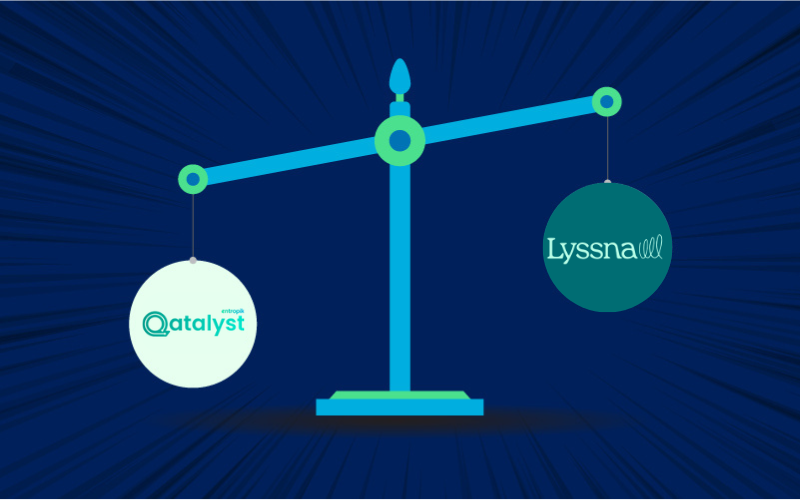
Lyssna Alternative
Meet Qatalyst, your best lyssna alternative to usability testing, to create a solution for all your user research needs.

What is Feedback Loop? Definition, Importance, Types, and Best Practices
Struggling to connect with your customers? Read the blog to learn how feedback loops can solve your problem!

UI vs. UX Design: What’s The Difference?
Learn how UI solves the problem of creating an intuitive and visually appealing interface and how UX addresses broader issues related to user satisfaction and overall experience with the product or service.

The Impact of Conversion Rate Optimization on Your Business
Understanding conversion rate optimization can help you boost your online business. Read more to learn all about it.

Insurance Questionnaire: Tips, Questions and Significance
Leverage this pre-built customizable questionnaire template for insurance to get deep insights from your audience.

UX Research Plan Template
Read on to understand why you need a UX Research Plan and how you can use a fully customizable template to get deep insights from your users!

Brand Experience: What it Means & Why It Matters
Have you ever wondered how users navigate the travel industry for your research insights? Read on to understand user experience in the travel sector.

Validity in Research: Definitions, Types, Significance, and Its Relationship with Reliability
Is validity ensured in your research process? Read more to explore the importance and types of validity in research.

The Role of UI Designers in Creating Delightful User Interfaces
UI designers help to create aesthetic and functional experiences for users. Here's all you need to know about them.

Top Usability Testing Tools to Try
Using usability testing tools can help you understand user preferences and behaviors and ultimately, build a better digital product. Here are the top tools you should be aware of.

Understanding User Experience in Travel Market Research
Ever wondered how users navigate the travel industry for your research insights? Read on to understand user experience in the travel sector.

Top 10 Customer Feedback Tools You’d Want to Try
Explore the top 10 customer feedback tools for analyzing feedback, empowering businesses to enhance customer experience.

10 Best UX Communities on LinkedIn & Slack for Networking & Collaboration
Discover the significance of online communities in UX, the benefits of joining communities on LinkedIn and Slack, and insights into UX career advancement.

The Role of Customer Experience Manager in Consumer Research
This blog explores the role of Customer Experience Managers, their skills, their comparison with CRMs, their key metrics, and why they should use a consumer research platform.

Product Review Template
Learn how to conduct a product review and get insights with this template on the Qatalyst platform.

What Is the Role of a Product Designer in UX?
Product designers help to create user-centric digital experiences that cater to users' needs and preferences. Here's what you need to know about them.

Top 10 Customer Journey Mapping Tools For Market Research in 2024
Explore the top 10 tools in 2024 to understand customer journeys while conducting market research.

Generative AI and its Use in Consumer Research
Ever wondered how Generative AI fits in within the research space? Read on to find its potential in the consumer research industry.
Maximize Your Research Potential
Experience why teams worldwide trust our Consumer & User Research solutions.
Book a Demo


7 Types of Research Hypothesis: Examples, Significance and Step-By-Step Guide
Introduction.
In any research study, a research hypothesis plays a crucial role in guiding the investigation and providing a clear direction for the research. It is an essential component of a thesis as it helps to frame the research question and determine the methodology to be used.

This article will provide a detailed analysis of research hypotheses in a thesis, highlighting their significance and qualities. It will also explore different types of research hypotheses and provide illustrative examples. Additionally, a step-by-step guide to developing research hypotheses and methods for testing and validating them will be discussed. By the end of this article, readers will have a comprehensive understanding of research hypotheses and their role in a thesis.
Understanding Research Hypotheses in a Thesis
A research hypothesis is a statement of expectation or prediction that will be tested by research. In a thesis, a research hypothesis is formulated to address the research question or problem statement . It serves as a tentative answer or explanation to the research question. The research hypothesis guides the direction of the study and helps in determining the research design and methodology.
The research hypothesis is typically based on existing theories, previous research findings, or observations. It is formulated after a thorough review of the literature and understanding of the research area. A well-defined research hypothesis provides a clear focus for the study and helps in generating testable predictions. By testing the research hypothesis, researchers aim to gather evidence to support or reject the hypothesis. This process contributes to the advancement of knowledge in the field and helps in drawing meaningful conclusions.
Significance of Research Hypotheses in a Thesis
One of the key significance of research hypotheses is that they help in organizing and structuring the research study. By formulating a hypothesis, the researcher defines the specific research question and identifies the variables that will be investigated. This helps in narrowing down the scope of the study and ensures that the research is focused and targeted.
Moreover, research hypotheses provide a framework for data collection and analysis. They guide the researcher in selecting appropriate research methods , tools, and techniques to gather relevant data. The hypotheses also help in determining the statistical tests and analysis techniques that will be used to analyze the collected data.
Another significance of research hypotheses is that they contribute to the advancement of knowledge in a particular field. By formulating hypotheses and conducting research to test them, researchers are able to generate new insights, theories, and explanations. This contributes to the existing body of knowledge and helps in expanding the understanding of a specific phenomenon or topic.
Furthermore, research hypotheses are important for establishing the validity and reliability of the research findings. By formulating clear and testable hypotheses, researchers can ensure that their study is based on sound scientific principles. The hypotheses provide a basis for evaluating the accuracy and generalizability of the research results.
In addition, research hypotheses are essential for making informed decisions and recommendations based on the research findings. They help in drawing conclusions and making predictions about the relationship between variables. This information can be used to inform policy decisions, develop interventions, or guide future research in the field.
Qualities of an Effective Research Hypothesis in a Thesis
An effective research hypothesis in a thesis possesses several key qualities that contribute to its strength and validity. These qualities are essential for ensuring that the hypothesis can be tested and validated through empirical research. The following are some of the qualities that make a research hypothesis effective:
1. Specificity: A good research hypothesis is specific and clearly defines the variables and the relationship between them. It provides a clear direction for the research and allows for precise testing of the hypothesis.
2. Testability: An effective hypothesis in research is testable, meaning that it can be empirically examined and either supported or refuted through data analysis. It should be possible to design experiments or collect data that can provide evidence for or against the hypothesis.
3. Clarity: A research hypothesis should be written in clear and concise language. It should avoid ambiguity and ensure that the intended meaning is easily understood by the readers. Clear language helps in communicating the hypothesis effectively and facilitates its evaluation.
4. Falsifiability: A strong research hypothesis is falsifiable, which means that it is possible to prove it wrong. It should be formulated in a way that allows for the possibility of obtaining evidence that contradicts the hypothesis. This is important for the scientific process as it encourages critical thinking and the exploration of alternative explanations.
5. Relevance: An effective research hypothesis is relevant to the research question and the overall objectives of the study. It should address a significant gap in knowledge or contribute to the existing body of literature. A relevant hypothesis adds value to the research and increases its significance.
6. Novelty: A good research hypothesis is original and innovative. It should propose a new idea or approach that has not been extensively explored before. Novelty in the hypothesis increases the potential for new discoveries and contributes to the advancement of knowledge in the field.
7. Coherence: An effective research hypothesis should be coherent and consistent with existing theories, concepts, and empirical evidence. It should align with the current understanding of the topic and build upon previous research. Coherence ensures that the hypothesis is grounded in a solid foundation and enhances its credibility.
8. Measurability: A research hypothesis should be measurable, meaning that it can be quantitatively or qualitatively assessed. It should be possible to collect data or evidence that can be used to evaluate the hypothesis. Measurability allows for objective testing and increases the reliability of the research findings.
By incorporating these qualities into the formulation of a research hypothesis, researchers can enhance the validity and reliability of their study.
Different Types of Research Hypotheses in a Thesis
In a thesis, there are several different types of research hypotheses that can be used to test the relationship between variables. These hypotheses provide a framework for the research and guide the direction of the study. Understanding the different types of research hypotheses is essential for conducting a comprehensive and effective thesis.
Null Hypothesis
The null hypothesis is a statement that suggests there is no significant relationship between the variables being studied. It assumes that any observed differences or relationships are due to chance or random variation. The null hypothesis is denoted as H0 and is often used as a starting point for hypothesis testing.
Alternative Hypothesis
The alternative hypothesis, also known as the research hypothesis, is a statement that suggests there is a significant relationship between the variables being studied. It contradicts the null hypothesis and proposes that the observed differences or relationships are not due to chance.
Directional Hypothesis
A directional hypothesis is a specific type of alternative hypothesis that predicts the direction of the relationship between variables. It states that there is a positive or negative relationship between the variables, indicating the direction of the effect.
Non-Directional Hypothesis
In contrast to a directional hypothesis, a non-directional hypothesis does not predict the direction of the relationship between variables. It simply states that there is a relationship between the variables without specifying the direction of the effect.
Statistical Hypothesis
A statistical hypothesis is a hypothesis that is formulated based on statistical analysis. It involves using statistical tests to determine the likelihood of the observed data occurring under the null hypothesis.
Associative Hypothesis
An associative hypothesis suggests that there is a relationship between variables, but it does not imply causation. It indicates that changes in one variable are associated with changes in another variable.
Causal Hypothesis
A causal hypothesis proposes a cause-and-effect relationship between variables. It suggests that changes in one variable directly cause changes in another variable.
These different types of research hypotheses provide researchers with various options to explore and test the relationships between variables in a thesis. The choice of hypothesis depends on the research question, the nature of the variables, and the available data.
Illustrative Examples of Research Hypotheses in a Thesis
To better understand research hypotheses in a thesis, let’s explore some illustrative examples. These examples will demonstrate how hypotheses are formulated and tested in different research studies.
Example 1: Hypothesis for a study on the effects of exercise on weight loss:
Null Hypothesis (H0): There is no significant difference in weight loss between individuals who engage in regular exercise and those who do not.
Alternative Hypothesis (H1): Individuals who engage in regular exercise will experience greater weight loss compared to those who do not exercise.
Example 2: Hypothesis for a study on the impact of social media on self-esteem:
Null Hypothesis (H0): There is no significant relationship between social media usage and self-esteem levels.
Alternative Hypothesis (H1): Increased social media usage is associated with lower self-esteem levels.
Example 3: Hypothesis for a study on the effectiveness of a new teaching method in improving student performance:
Null Hypothesis (H0): There is no significant difference in student performance between the traditional teaching method and the new teaching method.
Alternative Hypothesis (H1): The new teaching method leads to improved student performance compared to the traditional teaching method.
These examples highlight the structure of research hypotheses, where the null hypothesis represents no effect or relationship, while the alternative hypothesis suggests the presence of an effect or relationship. It is important to note that these hypotheses are testable and can be analyzed using appropriate statistical methods.
Step-by-Step Guide to Developing Research Hypotheses in a Thesis
Developing a research hypothesis is a crucial step in the process of conducting a thesis. In this section, we will provide a step-by-step guide to developing research hypotheses in a thesis.
Step 1: Identify the Research Topic
The first step in developing a research hypothesis is to clearly identify the research topic. This involves understanding the research problem and determining the specific area of study.
Step 2: Conduct Preliminary Research
Once the research topic is identified, it is important to conduct preliminary research to gather relevant information. This helps in understanding the existing knowledge and identifying any gaps or areas that need further investigation.
Step 3: Formulate the Research Question
Based on the preliminary research, formulate a clear and concise research question. The research question should be specific and focused, addressing the research problem identified in step 1.
Step 4: Define the Variables
Identify the variables that will be studied in the research. Variables are the factors or concepts that are being measured or manipulated in the study. It is important to clearly define the variables to ensure the research hypothesis is specific and testable.
Step 5: Predict the Relationship and Outcome
The research hypothesis should propose a link between the variables and predict the expected outcome. It should clearly state the expected relationship between the variables and the anticipated result.
Step 6: Ensure Clarity and Conciseness
A good research hypothesis should be simple and concise, avoiding wordiness. It should be clear and free from ambiguity or assumptions about the readers’ knowledge. The hypothesis should also be observable and measurable.
Step 7: Validate the Hypothesis
Before finalizing the research hypothesis, it is important to validate it. This can be done through further research, literature review , or consultation with experts in the field. Validating the hypothesis ensures its relevance and novelty.
By following these step-by-step guidelines, researchers can develop effective research hypotheses for their theses. A well-developed hypothesis provides a solid foundation for the research and helps in generating meaningful results.
Methods for Testing and Validating Research Hypotheses in a Thesis
Hypothesis testing is a formal procedure for investigating our ideas about the world. It allows you to statistically test your predictions. The usual process is to make a hypothesis, create an experiment to test it, run the experiment, draw a conclusion, and then allow other researchers to replicate the study to validate the findings. There are several methods for testing and validating research hypotheses in a thesis.
Experimental Research
One common method is experimental research, where researchers manipulate variables and measure their effects on the dependent variable.
Observational Research
Another method is observational research, where researchers observe and record data without manipulating variables. This method is often used when it is not feasible or ethical to conduct experiments.
Survey Research
Survey research is another method that involves collecting data from a sample of individuals using questionnaires or interviews . This method is useful for studying attitudes, opinions, and behaviors.
Conducting Meta-analysis
In addition to these methods, researchers can also use existing data or conduct meta-analyses to test and validate research hypotheses. Existing data can be obtained from sources such as government databases, previous studies, or publicly available datasets. Meta-analysis involves combining the results of multiple studies to determine the overall effect size and to test the generalizability of findings across different populations and contexts. Once the data is collected, researchers can use statistical analysis techniques to analyze the data and test the research hypotheses. Common statistical tests include t-tests, analysis of variance (ANOVA), regression analysis, and chi-square tests.
The choice of statistical test depends on the research design, the type of data collected, and the specific research hypotheses being tested. It is important to note that testing and validating research hypotheses is an iterative process. Researchers may need to refine their hypotheses, modify their research design, or collect additional data based on the initial findings. By using rigorous methods for testing and validating research hypotheses, researchers can ensure the reliability and validity of their findings, contributing to the advancement of knowledge in their field.
In conclusion, research hypotheses are essential components of a thesis that guide the research process and contribute to the advancement of knowledge in a particular field. By formulating clear and testable hypotheses, researchers can make meaningful contributions to their field and address important research questions. It is important for researchers to carefully develop and validate their hypotheses to ensure the credibility and reliability of their findings.
Leave a Comment Cancel reply
Save my name, email, and website in this browser for the next time I comment.
Related articles
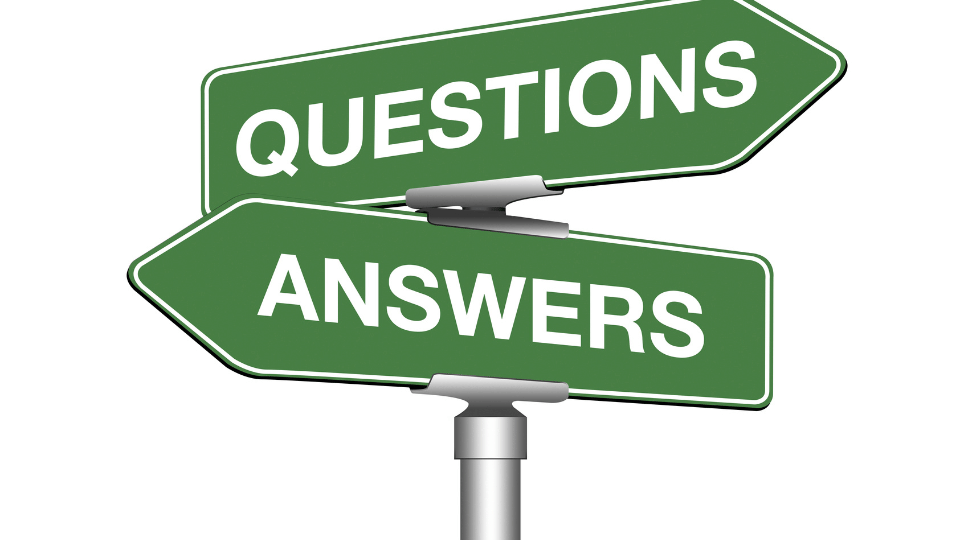
How to Formulate Research Questions in a Research Proposal? Discover The No. 1 Easiest Template Here!

7 Easy Step-By-Step Guide of Using ChatGPT: The Best Literature Review Generator for Time-Saving Academic Research

Writing Engaging Introduction in Research Papers : 7 Tips and Tricks!

Understanding Comparative Frameworks: Their Importance, Components, Examples and 8 Best Practices

Revolutionizing Effective Thesis Writing for PhD Students Using Artificial Intelligence!

3 Types of Interviews in Qualitative Research: An Essential Research Instrument and Handy Tips to Conduct Them

Highlight Abstracts: An Ultimate Guide For Researchers!

Crafting Critical Abstracts: 11 Expert Strategies for Summarizing Research

How to Develop a Good Research Hypothesis
The story of a research study begins by asking a question. Researchers all around the globe are asking curious questions and formulating research hypothesis. However, whether the research study provides an effective conclusion depends on how well one develops a good research hypothesis. Research hypothesis examples could help researchers get an idea as to how to write a good research hypothesis.
This blog will help you understand what is a research hypothesis, its characteristics and, how to formulate a research hypothesis
Table of Contents
What is Hypothesis?
Hypothesis is an assumption or an idea proposed for the sake of argument so that it can be tested. It is a precise, testable statement of what the researchers predict will be outcome of the study. Hypothesis usually involves proposing a relationship between two variables: the independent variable (what the researchers change) and the dependent variable (what the research measures).
What is a Research Hypothesis?
Research hypothesis is a statement that introduces a research question and proposes an expected result. It is an integral part of the scientific method that forms the basis of scientific experiments. Therefore, you need to be careful and thorough when building your research hypothesis. A minor flaw in the construction of your hypothesis could have an adverse effect on your experiment. In research, there is a convention that the hypothesis is written in two forms, the null hypothesis, and the alternative hypothesis (called the experimental hypothesis when the method of investigation is an experiment).
Characteristics of a Good Research Hypothesis
As the hypothesis is specific, there is a testable prediction about what you expect to happen in a study. You may consider drawing hypothesis from previously published research based on the theory.
A good research hypothesis involves more effort than just a guess. In particular, your hypothesis may begin with a question that could be further explored through background research.
To help you formulate a promising research hypothesis, you should ask yourself the following questions:
- Is the language clear and focused?
- What is the relationship between your hypothesis and your research topic?
- Is your hypothesis testable? If yes, then how?
- What are the possible explanations that you might want to explore?
- Does your hypothesis include both an independent and dependent variable?
- Can you manipulate your variables without hampering the ethical standards?
- Does your research predict the relationship and outcome?
- Is your research simple and concise (avoids wordiness)?
- Is it clear with no ambiguity or assumptions about the readers’ knowledge
- Is your research observable and testable results?
- Is it relevant and specific to the research question or problem?

The questions listed above can be used as a checklist to make sure your hypothesis is based on a solid foundation. Furthermore, it can help you identify weaknesses in your hypothesis and revise it if necessary.
Source: Educational Hub
How to formulate a research hypothesis.
A testable hypothesis is not a simple statement. It is rather an intricate statement that needs to offer a clear introduction to a scientific experiment, its intentions, and the possible outcomes. However, there are some important things to consider when building a compelling hypothesis.
1. State the problem that you are trying to solve.
Make sure that the hypothesis clearly defines the topic and the focus of the experiment.
2. Try to write the hypothesis as an if-then statement.
Follow this template: If a specific action is taken, then a certain outcome is expected.
3. Define the variables
Independent variables are the ones that are manipulated, controlled, or changed. Independent variables are isolated from other factors of the study.
Dependent variables , as the name suggests are dependent on other factors of the study. They are influenced by the change in independent variable.
4. Scrutinize the hypothesis
Evaluate assumptions, predictions, and evidence rigorously to refine your understanding.
Types of Research Hypothesis
The types of research hypothesis are stated below:
1. Simple Hypothesis
It predicts the relationship between a single dependent variable and a single independent variable.
2. Complex Hypothesis
It predicts the relationship between two or more independent and dependent variables.
3. Directional Hypothesis
It specifies the expected direction to be followed to determine the relationship between variables and is derived from theory. Furthermore, it implies the researcher’s intellectual commitment to a particular outcome.
4. Non-directional Hypothesis
It does not predict the exact direction or nature of the relationship between the two variables. The non-directional hypothesis is used when there is no theory involved or when findings contradict previous research.
5. Associative and Causal Hypothesis
The associative hypothesis defines interdependency between variables. A change in one variable results in the change of the other variable. On the other hand, the causal hypothesis proposes an effect on the dependent due to manipulation of the independent variable.
6. Null Hypothesis
Null hypothesis states a negative statement to support the researcher’s findings that there is no relationship between two variables. There will be no changes in the dependent variable due the manipulation of the independent variable. Furthermore, it states results are due to chance and are not significant in terms of supporting the idea being investigated.
7. Alternative Hypothesis
It states that there is a relationship between the two variables of the study and that the results are significant to the research topic. An experimental hypothesis predicts what changes will take place in the dependent variable when the independent variable is manipulated. Also, it states that the results are not due to chance and that they are significant in terms of supporting the theory being investigated.
Research Hypothesis Examples of Independent and Dependent Variables
Research Hypothesis Example 1 The greater number of coal plants in a region (independent variable) increases water pollution (dependent variable). If you change the independent variable (building more coal factories), it will change the dependent variable (amount of water pollution).
Research Hypothesis Example 2 What is the effect of diet or regular soda (independent variable) on blood sugar levels (dependent variable)? If you change the independent variable (the type of soda you consume), it will change the dependent variable (blood sugar levels)
You should not ignore the importance of the above steps. The validity of your experiment and its results rely on a robust testable hypothesis. Developing a strong testable hypothesis has few advantages, it compels us to think intensely and specifically about the outcomes of a study. Consequently, it enables us to understand the implication of the question and the different variables involved in the study. Furthermore, it helps us to make precise predictions based on prior research. Hence, forming a hypothesis would be of great value to the research. Here are some good examples of testable hypotheses.
More importantly, you need to build a robust testable research hypothesis for your scientific experiments. A testable hypothesis is a hypothesis that can be proved or disproved as a result of experimentation.
Importance of a Testable Hypothesis
To devise and perform an experiment using scientific method, you need to make sure that your hypothesis is testable. To be considered testable, some essential criteria must be met:
- There must be a possibility to prove that the hypothesis is true.
- There must be a possibility to prove that the hypothesis is false.
- The results of the hypothesis must be reproducible.
Without these criteria, the hypothesis and the results will be vague. As a result, the experiment will not prove or disprove anything significant.
What are your experiences with building hypotheses for scientific experiments? What challenges did you face? How did you overcome these challenges? Please share your thoughts with us in the comments section.
Frequently Asked Questions
The steps to write a research hypothesis are: 1. Stating the problem: Ensure that the hypothesis defines the research problem 2. Writing a hypothesis as an 'if-then' statement: Include the action and the expected outcome of your study by following a ‘if-then’ structure. 3. Defining the variables: Define the variables as Dependent or Independent based on their dependency to other factors. 4. Scrutinizing the hypothesis: Identify the type of your hypothesis
Hypothesis testing is a statistical tool which is used to make inferences about a population data to draw conclusions for a particular hypothesis.
Hypothesis in statistics is a formal statement about the nature of a population within a structured framework of a statistical model. It is used to test an existing hypothesis by studying a population.
Research hypothesis is a statement that introduces a research question and proposes an expected result. It forms the basis of scientific experiments.
The different types of hypothesis in research are: • Null hypothesis: Null hypothesis is a negative statement to support the researcher’s findings that there is no relationship between two variables. • Alternate hypothesis: Alternate hypothesis predicts the relationship between the two variables of the study. • Directional hypothesis: Directional hypothesis specifies the expected direction to be followed to determine the relationship between variables. • Non-directional hypothesis: Non-directional hypothesis does not predict the exact direction or nature of the relationship between the two variables. • Simple hypothesis: Simple hypothesis predicts the relationship between a single dependent variable and a single independent variable. • Complex hypothesis: Complex hypothesis predicts the relationship between two or more independent and dependent variables. • Associative and casual hypothesis: Associative and casual hypothesis predicts the relationship between two or more independent and dependent variables. • Empirical hypothesis: Empirical hypothesis can be tested via experiments and observation. • Statistical hypothesis: A statistical hypothesis utilizes statistical models to draw conclusions about broader populations.
Wow! You really simplified your explanation that even dummies would find it easy to comprehend. Thank you so much.
Thanks a lot for your valuable guidance.
I enjoy reading the post. Hypotheses are actually an intrinsic part in a study. It bridges the research question and the methodology of the study.
Useful piece!
This is awesome.Wow.
It very interesting to read the topic, can you guide me any specific example of hypothesis process establish throw the Demand and supply of the specific product in market
Nicely explained
It is really a useful for me Kindly give some examples of hypothesis
It was a well explained content ,can you please give me an example with the null and alternative hypothesis illustrated
clear and concise. thanks.
So Good so Amazing
Good to learn
Thanks a lot for explaining to my level of understanding
Explained well and in simple terms. Quick read! Thank you
It awesome. It has really positioned me in my research project
Brief and easily digested
Rate this article Cancel Reply
Your email address will not be published.

Enago Academy's Most Popular Articles

- Reporting Research
Choosing the Right Analytical Approach: Thematic analysis vs. content analysis for data interpretation
In research, choosing the right approach to understand data is crucial for deriving meaningful insights.…

Comparing Cross Sectional and Longitudinal Studies: 5 steps for choosing the right approach
The process of choosing the right research design can put ourselves at the crossroads of…

- Industry News
COPE Forum Discussion Highlights Challenges and Urges Clarity in Institutional Authorship Standards
The COPE forum discussion held in December 2023 initiated with a fundamental question — is…

- Career Corner
Unlocking the Power of Networking in Academic Conferences
Embarking on your first academic conference experience? Fear not, we got you covered! Academic conferences…

Research Recommendations – Guiding policy-makers for evidence-based decision making
Research recommendations play a crucial role in guiding scholars and researchers toward fruitful avenues of…
Choosing the Right Analytical Approach: Thematic analysis vs. content analysis for…
Comparing Cross Sectional and Longitudinal Studies: 5 steps for choosing the right…
How to Design Effective Research Questionnaires for Robust Findings

Sign-up to read more
Subscribe for free to get unrestricted access to all our resources on research writing and academic publishing including:
- 2000+ blog articles
- 50+ Webinars
- 10+ Expert podcasts
- 50+ Infographics
- 10+ Checklists
- Research Guides
We hate spam too. We promise to protect your privacy and never spam you.
- Publishing Research
- AI in Academia
- Promoting Research
- Diversity and Inclusion
- Infographics
- Expert Video Library
- Other Resources
- Enago Learn
- Upcoming & On-Demand Webinars
- Peer Review Week 2024
- Open Access Week 2023
- Conference Videos
- Enago Report
- Journal Finder
- Enago Plagiarism & AI Grammar Check
- Editing Services
- Publication Support Services
- Research Impact
- Translation Services
- Publication solutions
- AI-Based Solutions
- Thought Leadership
- Call for Articles
- Call for Speakers
- Author Training
- Edit Profile
I am looking for Editing/ Proofreading services for my manuscript Tentative date of next journal submission:

What factors would influence the future of open access (OA) publishing?
Instant insights, infinite possibilities
How to write a research hypothesis
Last updated
19 January 2023
Reviewed by
Miroslav Damyanov
Start with a broad subject matter that excites you, so your curiosity will motivate your work. Conduct a literature search to determine the range of questions already addressed and spot any holes in the existing research.
Narrow the topics that interest you and determine your research question. Rather than focusing on a hole in the research, you might choose to challenge an existing assumption, a process called problematization. You may also find yourself with a short list of questions or related topics.
Use the FINER method to determine the single problem you'll address with your research. FINER stands for:
I nteresting
You need a feasible research question, meaning that there is a way to address the question. You should find it interesting, but so should a larger audience. Rather than repeating research that others have already conducted, your research hypothesis should test something novel or unique.
The research must fall into accepted ethical parameters as defined by the government of your country and your university or college if you're an academic. You'll also need to come up with a relevant question since your research should provide a contribution to the existing research area.
This process typically narrows your shortlist down to a single problem you'd like to study and the variable you want to test. You're ready to write your hypothesis statements.
Make research less tedious
Dovetail streamlines research to help you uncover and share actionable insights
- Types of research hypotheses
It is important to narrow your topic down to one idea before trying to write your research hypothesis. You'll only test one problem at a time. To do this, you'll write two hypotheses – a null hypothesis (H0) and an alternative hypothesis (Ha).
You'll come across many terms related to developing a research hypothesis or referring to a specific type of hypothesis. Let's take a quick look at these terms.
Null hypothesis
The term null hypothesis refers to a research hypothesis type that assumes no statistically significant relationship exists within a set of observations or data. It represents a claim that assumes that any observed relationship is due to chance. Represented as H0, the null represents the conjecture of the research.
Alternative hypothesis
The alternative hypothesis accompanies the null hypothesis. It states that the situation presented in the null hypothesis is false or untrue, and claims an observed effect in your test. This is typically denoted by Ha or H(n), where “n” stands for the number of alternative hypotheses. You can have more than one alternative hypothesis.
Simple hypothesis
The term simple hypothesis refers to a hypothesis or theory that predicts the relationship between two variables - the independent (predictor) and the dependent (predicted).
Complex hypothesis
The term complex hypothesis refers to a model – either quantitative (mathematical) or qualitative . A complex hypothesis states the surmised relationship between two or more potentially related variables.
Directional hypothesis
When creating a statistical hypothesis, the directional hypothesis (the null hypothesis) states an assumption regarding one parameter of a population. Some academics call this the “one-sided” hypothesis. The alternative hypothesis indicates whether the researcher tests for a positive or negative effect by including either the greater than (">") or less than ("<") sign.
Non-directional hypothesis
We refer to the alternative hypothesis in a statistical research question as a non-directional hypothesis. It includes the not equal ("≠") sign to show that the research tests whether or not an effect exists without specifying the effect's direction (positive or negative).
Associative hypothesis
The term associative hypothesis assumes a link between two variables but stops short of stating that one variable impacts the other. Academic statistical literature asserts in this sense that correlation does not imply causation. So, although the hypothesis notes the correlation between two variables – the independent and dependent - it does not predict how the two interact.
Logical hypothesis
Typically used in philosophy rather than science, researchers can't test a logical hypothesis because the technology or data set doesn't yet exist. A logical hypothesis uses logic as the basis of its assumptions.
In some cases, a logical hypothesis can become an empirical hypothesis once technology provides an opportunity for testing. Until that time, the question remains too expensive or complex to address. Note that a logical hypothesis is not a statistical hypothesis.
Empirical hypothesis
When we consider the opposite of a logical hypothesis, we call this an empirical or working hypothesis. This type of hypothesis considers a scientifically measurable question. A researcher can consider and test an empirical hypothesis through replicable tests, observations, and measurements.
Statistical hypothesis
The term statistical hypothesis refers to a test of a theory that uses representative statistical models to test relationships between variables to draw conclusions regarding a large population. This requires an existing large data set, commonly referred to as big data, or implementing a survey to obtain original statistical information to form a data set for the study.
Testing this type of hypothesis requires the use of random samples. Note that the null and alternative hypotheses are used in statistical hypothesis testing.
Causal hypothesis
The term causal hypothesis refers to a research hypothesis that tests a cause-and-effect relationship. A causal hypothesis is utilized when conducting experimental or quasi-experimental research.
Descriptive hypothesis
The term descriptive hypothesis refers to a research hypothesis used in non-experimental research, specifying an influence in the relationship between two variables.
- What makes an effective research hypothesis?
An effective research hypothesis offers a clearly defined, specific statement, using simple wording that contains no assumptions or generalizations, and that you can test. A well-written hypothesis should predict the tested relationship and its outcome. It contains zero ambiguity and offers results you can observe and test.
The research hypothesis should address a question relevant to a research area. Overall, your research hypothesis needs the following essentials:
Hypothesis Essential #1: Specificity & Clarity
Hypothesis Essential #2: Testability (Provability)
- How to develop a good research hypothesis
In developing your hypothesis statements, you must pre-plan some of your statistical analysis. Once you decide on your problem to examine, determine three aspects:
the parameter you'll test
the test's direction (left-tailed, right-tailed, or non-directional)
the hypothesized parameter value
Any quantitative research includes a hypothesized parameter value of a mean, a proportion, or the difference between two proportions. Here's how to note each parameter:
Single mean (μ)
Paired means (μd)
Single proportion (p)
Difference between two independent means (μ1−μ2)
Difference between two proportions (p1−p2)
Simple linear regression slope (β)
Correlation (ρ)
Defining these parameters and determining whether you want to test the mean, proportion, or differences helps you determine the statistical tests you'll conduct to analyze your data. When writing your hypothesis, you only need to decide which parameter to test and in what overarching way.
The null research hypothesis must include everyday language, in a single sentence, stating the problem you want to solve. Write it as an if-then statement with defined variables. Write an alternative research hypothesis that states the opposite.
- What is the correct format for writing a hypothesis?
The following example shows the proper format and textual content of a hypothesis. It follows commonly accepted academic standards.
Null hypothesis (H0): High school students who participate in varsity sports as opposed to those who do not, fail to score higher on leadership tests than students who do not participate.
Alternative hypothesis (H1): High school students who play a varsity sport as opposed to those who do not participate in team athletics will score higher on leadership tests than students who do not participate in athletics.
The research question tests the correlation between varsity sports participation and leadership qualities expressed as a score on leadership tests. It compares the population of athletes to non-athletes.
- What are the five steps of a hypothesis?
Once you decide on the specific problem or question you want to address, you can write your research hypothesis. Use this five-step system to hone your null hypothesis and generate your alternative hypothesis.
Step 1 : Create your research question. This topic should interest and excite you; answering it provides relevant information to an industry or academic area.
Step 2 : Conduct a literature review to gather essential existing research.
Step 3 : Write a clear, strong, simply worded sentence that explains your test parameter, test direction, and hypothesized parameter.
Step 4 : Read it a few times. Have others read it and ask them what they think it means. Refine your statement accordingly until it becomes understandable to everyone. While not everyone can or will comprehend every research study conducted, any person from the general population should be able to read your hypothesis and alternative hypothesis and understand the essential question you want to answer.
Step 5 : Re-write your null hypothesis until it reads simply and understandably. Write your alternative hypothesis.
What is the Red Queen hypothesis?
Some hypotheses are well-known, such as the Red Queen hypothesis. Choose your wording carefully, since you could become like the famed scientist Dr. Leigh Van Valen. In 1973, Dr. Van Valen proposed the Red Queen hypothesis to describe coevolutionary activity, specifically reciprocal evolutionary effects between species to explain extinction rates in the fossil record.
Essentially, Van Valen theorized that to survive, each species remains in a constant state of adaptation, evolution, and proliferation, and constantly competes for survival alongside other species doing the same. Only by doing this can a species avoid extinction. Van Valen took the hypothesis title from the Lewis Carroll book, "Through the Looking Glass," which contains a key character named the Red Queen who explains to Alice that for all of her running, she's merely running in place.
- Getting started with your research
In conclusion, once you write your null hypothesis (H0) and an alternative hypothesis (Ha), you’ve essentially authored the elevator pitch of your research. These two one-sentence statements describe your topic in simple, understandable terms that both professionals and laymen can understand. They provide the starting point of your research project.
Should you be using a customer insights hub?
Do you want to discover previous research faster?
Do you share your research findings with others?
Do you analyze research data?
Start for free today, add your research, and get to key insights faster
Editor’s picks
Last updated: 18 April 2023
Last updated: 27 February 2023
Last updated: 22 August 2024
Last updated: 30 September 2024
Last updated: 16 August 2024
Last updated: 9 March 2023
Last updated: 30 April 2024
Last updated: 12 December 2023
Last updated: 11 March 2024
Last updated: 4 July 2024
Last updated: 6 March 2024
Last updated: 5 March 2024
Last updated: 13 May 2024
Latest articles
Related topics, .css-je19u9{-webkit-align-items:flex-end;-webkit-box-align:flex-end;-ms-flex-align:flex-end;align-items:flex-end;display:-webkit-box;display:-webkit-flex;display:-ms-flexbox;display:flex;-webkit-flex-direction:row;-ms-flex-direction:row;flex-direction:row;-webkit-box-flex-wrap:wrap;-webkit-flex-wrap:wrap;-ms-flex-wrap:wrap;flex-wrap:wrap;-webkit-box-pack:center;-ms-flex-pack:center;-webkit-justify-content:center;justify-content:center;row-gap:0;text-align:center;max-width:671px;}@media (max-width: 1079px){.css-je19u9{max-width:400px;}.css-je19u9>span{white-space:pre;}}@media (max-width: 799px){.css-je19u9{max-width:400px;}.css-je19u9>span{white-space:pre;}} decide what to .css-1kiodld{max-height:56px;display:-webkit-box;display:-webkit-flex;display:-ms-flexbox;display:flex;-webkit-align-items:center;-webkit-box-align:center;-ms-flex-align:center;align-items:center;}@media (max-width: 1079px){.css-1kiodld{display:none;}} build next, decide what to build next, log in or sign up.
Get started for free
An official website of the United States government
The .gov means it’s official. Federal government websites often end in .gov or .mil. Before sharing sensitive information, make sure you’re on a federal government site.
The site is secure. The https:// ensures that you are connecting to the official website and that any information you provide is encrypted and transmitted securely.
- Publications
- Account settings
The PMC website is updating on October 15, 2024. Learn More or Try it out now .
- Advanced Search
- Journal List
- J Korean Med Sci
- v.37(16); 2022 Apr 25

A Practical Guide to Writing Quantitative and Qualitative Research Questions and Hypotheses in Scholarly Articles
Edward barroga.
1 Department of General Education, Graduate School of Nursing Science, St. Luke’s International University, Tokyo, Japan.
Glafera Janet Matanguihan
2 Department of Biological Sciences, Messiah University, Mechanicsburg, PA, USA.
The development of research questions and the subsequent hypotheses are prerequisites to defining the main research purpose and specific objectives of a study. Consequently, these objectives determine the study design and research outcome. The development of research questions is a process based on knowledge of current trends, cutting-edge studies, and technological advances in the research field. Excellent research questions are focused and require a comprehensive literature search and in-depth understanding of the problem being investigated. Initially, research questions may be written as descriptive questions which could be developed into inferential questions. These questions must be specific and concise to provide a clear foundation for developing hypotheses. Hypotheses are more formal predictions about the research outcomes. These specify the possible results that may or may not be expected regarding the relationship between groups. Thus, research questions and hypotheses clarify the main purpose and specific objectives of the study, which in turn dictate the design of the study, its direction, and outcome. Studies developed from good research questions and hypotheses will have trustworthy outcomes with wide-ranging social and health implications.
INTRODUCTION
Scientific research is usually initiated by posing evidenced-based research questions which are then explicitly restated as hypotheses. 1 , 2 The hypotheses provide directions to guide the study, solutions, explanations, and expected results. 3 , 4 Both research questions and hypotheses are essentially formulated based on conventional theories and real-world processes, which allow the inception of novel studies and the ethical testing of ideas. 5 , 6
It is crucial to have knowledge of both quantitative and qualitative research 2 as both types of research involve writing research questions and hypotheses. 7 However, these crucial elements of research are sometimes overlooked; if not overlooked, then framed without the forethought and meticulous attention it needs. Planning and careful consideration are needed when developing quantitative or qualitative research, particularly when conceptualizing research questions and hypotheses. 4
There is a continuing need to support researchers in the creation of innovative research questions and hypotheses, as well as for journal articles that carefully review these elements. 1 When research questions and hypotheses are not carefully thought of, unethical studies and poor outcomes usually ensue. Carefully formulated research questions and hypotheses define well-founded objectives, which in turn determine the appropriate design, course, and outcome of the study. This article then aims to discuss in detail the various aspects of crafting research questions and hypotheses, with the goal of guiding researchers as they develop their own. Examples from the authors and peer-reviewed scientific articles in the healthcare field are provided to illustrate key points.
DEFINITIONS AND RELATIONSHIP OF RESEARCH QUESTIONS AND HYPOTHESES
A research question is what a study aims to answer after data analysis and interpretation. The answer is written in length in the discussion section of the paper. Thus, the research question gives a preview of the different parts and variables of the study meant to address the problem posed in the research question. 1 An excellent research question clarifies the research writing while facilitating understanding of the research topic, objective, scope, and limitations of the study. 5
On the other hand, a research hypothesis is an educated statement of an expected outcome. This statement is based on background research and current knowledge. 8 , 9 The research hypothesis makes a specific prediction about a new phenomenon 10 or a formal statement on the expected relationship between an independent variable and a dependent variable. 3 , 11 It provides a tentative answer to the research question to be tested or explored. 4
Hypotheses employ reasoning to predict a theory-based outcome. 10 These can also be developed from theories by focusing on components of theories that have not yet been observed. 10 The validity of hypotheses is often based on the testability of the prediction made in a reproducible experiment. 8
Conversely, hypotheses can also be rephrased as research questions. Several hypotheses based on existing theories and knowledge may be needed to answer a research question. Developing ethical research questions and hypotheses creates a research design that has logical relationships among variables. These relationships serve as a solid foundation for the conduct of the study. 4 , 11 Haphazardly constructed research questions can result in poorly formulated hypotheses and improper study designs, leading to unreliable results. Thus, the formulations of relevant research questions and verifiable hypotheses are crucial when beginning research. 12
CHARACTERISTICS OF GOOD RESEARCH QUESTIONS AND HYPOTHESES
Excellent research questions are specific and focused. These integrate collective data and observations to confirm or refute the subsequent hypotheses. Well-constructed hypotheses are based on previous reports and verify the research context. These are realistic, in-depth, sufficiently complex, and reproducible. More importantly, these hypotheses can be addressed and tested. 13
There are several characteristics of well-developed hypotheses. Good hypotheses are 1) empirically testable 7 , 10 , 11 , 13 ; 2) backed by preliminary evidence 9 ; 3) testable by ethical research 7 , 9 ; 4) based on original ideas 9 ; 5) have evidenced-based logical reasoning 10 ; and 6) can be predicted. 11 Good hypotheses can infer ethical and positive implications, indicating the presence of a relationship or effect relevant to the research theme. 7 , 11 These are initially developed from a general theory and branch into specific hypotheses by deductive reasoning. In the absence of a theory to base the hypotheses, inductive reasoning based on specific observations or findings form more general hypotheses. 10
TYPES OF RESEARCH QUESTIONS AND HYPOTHESES
Research questions and hypotheses are developed according to the type of research, which can be broadly classified into quantitative and qualitative research. We provide a summary of the types of research questions and hypotheses under quantitative and qualitative research categories in Table 1 .
| Quantitative research questions | Quantitative research hypotheses |
|---|---|
| Descriptive research questions | Simple hypothesis |
| Comparative research questions | Complex hypothesis |
| Relationship research questions | Directional hypothesis |
| Non-directional hypothesis | |
| Associative hypothesis | |
| Causal hypothesis | |
| Null hypothesis | |
| Alternative hypothesis | |
| Working hypothesis | |
| Statistical hypothesis | |
| Logical hypothesis | |
| Hypothesis-testing | |
| Qualitative research questions | Qualitative research hypotheses |
| Contextual research questions | Hypothesis-generating |
| Descriptive research questions | |
| Evaluation research questions | |
| Explanatory research questions | |
| Exploratory research questions | |
| Generative research questions | |
| Ideological research questions | |
| Ethnographic research questions | |
| Phenomenological research questions | |
| Grounded theory questions | |
| Qualitative case study questions |
Research questions in quantitative research
In quantitative research, research questions inquire about the relationships among variables being investigated and are usually framed at the start of the study. These are precise and typically linked to the subject population, dependent and independent variables, and research design. 1 Research questions may also attempt to describe the behavior of a population in relation to one or more variables, or describe the characteristics of variables to be measured ( descriptive research questions ). 1 , 5 , 14 These questions may also aim to discover differences between groups within the context of an outcome variable ( comparative research questions ), 1 , 5 , 14 or elucidate trends and interactions among variables ( relationship research questions ). 1 , 5 We provide examples of descriptive, comparative, and relationship research questions in quantitative research in Table 2 .
| Quantitative research questions | |
|---|---|
| Descriptive research question | |
| - Measures responses of subjects to variables | |
| - Presents variables to measure, analyze, or assess | |
| What is the proportion of resident doctors in the hospital who have mastered ultrasonography (response of subjects to a variable) as a diagnostic technique in their clinical training? | |
| Comparative research question | |
| - Clarifies difference between one group with outcome variable and another group without outcome variable | |
| Is there a difference in the reduction of lung metastasis in osteosarcoma patients who received the vitamin D adjunctive therapy (group with outcome variable) compared with osteosarcoma patients who did not receive the vitamin D adjunctive therapy (group without outcome variable)? | |
| - Compares the effects of variables | |
| How does the vitamin D analogue 22-Oxacalcitriol (variable 1) mimic the antiproliferative activity of 1,25-Dihydroxyvitamin D (variable 2) in osteosarcoma cells? | |
| Relationship research question | |
| - Defines trends, association, relationships, or interactions between dependent variable and independent variable | |
| Is there a relationship between the number of medical student suicide (dependent variable) and the level of medical student stress (independent variable) in Japan during the first wave of the COVID-19 pandemic? | |
Hypotheses in quantitative research
In quantitative research, hypotheses predict the expected relationships among variables. 15 Relationships among variables that can be predicted include 1) between a single dependent variable and a single independent variable ( simple hypothesis ) or 2) between two or more independent and dependent variables ( complex hypothesis ). 4 , 11 Hypotheses may also specify the expected direction to be followed and imply an intellectual commitment to a particular outcome ( directional hypothesis ) 4 . On the other hand, hypotheses may not predict the exact direction and are used in the absence of a theory, or when findings contradict previous studies ( non-directional hypothesis ). 4 In addition, hypotheses can 1) define interdependency between variables ( associative hypothesis ), 4 2) propose an effect on the dependent variable from manipulation of the independent variable ( causal hypothesis ), 4 3) state a negative relationship between two variables ( null hypothesis ), 4 , 11 , 15 4) replace the working hypothesis if rejected ( alternative hypothesis ), 15 explain the relationship of phenomena to possibly generate a theory ( working hypothesis ), 11 5) involve quantifiable variables that can be tested statistically ( statistical hypothesis ), 11 6) or express a relationship whose interlinks can be verified logically ( logical hypothesis ). 11 We provide examples of simple, complex, directional, non-directional, associative, causal, null, alternative, working, statistical, and logical hypotheses in quantitative research, as well as the definition of quantitative hypothesis-testing research in Table 3 .
| Quantitative research hypotheses | |
|---|---|
| Simple hypothesis | |
| - Predicts relationship between single dependent variable and single independent variable | |
| If the dose of the new medication (single independent variable) is high, blood pressure (single dependent variable) is lowered. | |
| Complex hypothesis | |
| - Foretells relationship between two or more independent and dependent variables | |
| The higher the use of anticancer drugs, radiation therapy, and adjunctive agents (3 independent variables), the higher would be the survival rate (1 dependent variable). | |
| Directional hypothesis | |
| - Identifies study direction based on theory towards particular outcome to clarify relationship between variables | |
| Privately funded research projects will have a larger international scope (study direction) than publicly funded research projects. | |
| Non-directional hypothesis | |
| - Nature of relationship between two variables or exact study direction is not identified | |
| - Does not involve a theory | |
| Women and men are different in terms of helpfulness. (Exact study direction is not identified) | |
| Associative hypothesis | |
| - Describes variable interdependency | |
| - Change in one variable causes change in another variable | |
| A larger number of people vaccinated against COVID-19 in the region (change in independent variable) will reduce the region’s incidence of COVID-19 infection (change in dependent variable). | |
| Causal hypothesis | |
| - An effect on dependent variable is predicted from manipulation of independent variable | |
| A change into a high-fiber diet (independent variable) will reduce the blood sugar level (dependent variable) of the patient. | |
| Null hypothesis | |
| - A negative statement indicating no relationship or difference between 2 variables | |
| There is no significant difference in the severity of pulmonary metastases between the new drug (variable 1) and the current drug (variable 2). | |
| Alternative hypothesis | |
| - Following a null hypothesis, an alternative hypothesis predicts a relationship between 2 study variables | |
| The new drug (variable 1) is better on average in reducing the level of pain from pulmonary metastasis than the current drug (variable 2). | |
| Working hypothesis | |
| - A hypothesis that is initially accepted for further research to produce a feasible theory | |
| Dairy cows fed with concentrates of different formulations will produce different amounts of milk. | |
| Statistical hypothesis | |
| - Assumption about the value of population parameter or relationship among several population characteristics | |
| - Validity tested by a statistical experiment or analysis | |
| The mean recovery rate from COVID-19 infection (value of population parameter) is not significantly different between population 1 and population 2. | |
| There is a positive correlation between the level of stress at the workplace and the number of suicides (population characteristics) among working people in Japan. | |
| Logical hypothesis | |
| - Offers or proposes an explanation with limited or no extensive evidence | |
| If healthcare workers provide more educational programs about contraception methods, the number of adolescent pregnancies will be less. | |
| Hypothesis-testing (Quantitative hypothesis-testing research) | |
| - Quantitative research uses deductive reasoning. | |
| - This involves the formation of a hypothesis, collection of data in the investigation of the problem, analysis and use of the data from the investigation, and drawing of conclusions to validate or nullify the hypotheses. | |
Research questions in qualitative research
Unlike research questions in quantitative research, research questions in qualitative research are usually continuously reviewed and reformulated. The central question and associated subquestions are stated more than the hypotheses. 15 The central question broadly explores a complex set of factors surrounding the central phenomenon, aiming to present the varied perspectives of participants. 15
There are varied goals for which qualitative research questions are developed. These questions can function in several ways, such as to 1) identify and describe existing conditions ( contextual research question s); 2) describe a phenomenon ( descriptive research questions ); 3) assess the effectiveness of existing methods, protocols, theories, or procedures ( evaluation research questions ); 4) examine a phenomenon or analyze the reasons or relationships between subjects or phenomena ( explanatory research questions ); or 5) focus on unknown aspects of a particular topic ( exploratory research questions ). 5 In addition, some qualitative research questions provide new ideas for the development of theories and actions ( generative research questions ) or advance specific ideologies of a position ( ideological research questions ). 1 Other qualitative research questions may build on a body of existing literature and become working guidelines ( ethnographic research questions ). Research questions may also be broadly stated without specific reference to the existing literature or a typology of questions ( phenomenological research questions ), may be directed towards generating a theory of some process ( grounded theory questions ), or may address a description of the case and the emerging themes ( qualitative case study questions ). 15 We provide examples of contextual, descriptive, evaluation, explanatory, exploratory, generative, ideological, ethnographic, phenomenological, grounded theory, and qualitative case study research questions in qualitative research in Table 4 , and the definition of qualitative hypothesis-generating research in Table 5 .
| Qualitative research questions | |
|---|---|
| Contextual research question | |
| - Ask the nature of what already exists | |
| - Individuals or groups function to further clarify and understand the natural context of real-world problems | |
| What are the experiences of nurses working night shifts in healthcare during the COVID-19 pandemic? (natural context of real-world problems) | |
| Descriptive research question | |
| - Aims to describe a phenomenon | |
| What are the different forms of disrespect and abuse (phenomenon) experienced by Tanzanian women when giving birth in healthcare facilities? | |
| Evaluation research question | |
| - Examines the effectiveness of existing practice or accepted frameworks | |
| How effective are decision aids (effectiveness of existing practice) in helping decide whether to give birth at home or in a healthcare facility? | |
| Explanatory research question | |
| - Clarifies a previously studied phenomenon and explains why it occurs | |
| Why is there an increase in teenage pregnancy (phenomenon) in Tanzania? | |
| Exploratory research question | |
| - Explores areas that have not been fully investigated to have a deeper understanding of the research problem | |
| What factors affect the mental health of medical students (areas that have not yet been fully investigated) during the COVID-19 pandemic? | |
| Generative research question | |
| - Develops an in-depth understanding of people’s behavior by asking ‘how would’ or ‘what if’ to identify problems and find solutions | |
| How would the extensive research experience of the behavior of new staff impact the success of the novel drug initiative? | |
| Ideological research question | |
| - Aims to advance specific ideas or ideologies of a position | |
| Are Japanese nurses who volunteer in remote African hospitals able to promote humanized care of patients (specific ideas or ideologies) in the areas of safe patient environment, respect of patient privacy, and provision of accurate information related to health and care? | |
| Ethnographic research question | |
| - Clarifies peoples’ nature, activities, their interactions, and the outcomes of their actions in specific settings | |
| What are the demographic characteristics, rehabilitative treatments, community interactions, and disease outcomes (nature, activities, their interactions, and the outcomes) of people in China who are suffering from pneumoconiosis? | |
| Phenomenological research question | |
| - Knows more about the phenomena that have impacted an individual | |
| What are the lived experiences of parents who have been living with and caring for children with a diagnosis of autism? (phenomena that have impacted an individual) | |
| Grounded theory question | |
| - Focuses on social processes asking about what happens and how people interact, or uncovering social relationships and behaviors of groups | |
| What are the problems that pregnant adolescents face in terms of social and cultural norms (social processes), and how can these be addressed? | |
| Qualitative case study question | |
| - Assesses a phenomenon using different sources of data to answer “why” and “how” questions | |
| - Considers how the phenomenon is influenced by its contextual situation. | |
| How does quitting work and assuming the role of a full-time mother (phenomenon assessed) change the lives of women in Japan? | |
| Qualitative research hypotheses | |
|---|---|
| Hypothesis-generating (Qualitative hypothesis-generating research) | |
| - Qualitative research uses inductive reasoning. | |
| - This involves data collection from study participants or the literature regarding a phenomenon of interest, using the collected data to develop a formal hypothesis, and using the formal hypothesis as a framework for testing the hypothesis. | |
| - Qualitative exploratory studies explore areas deeper, clarifying subjective experience and allowing formulation of a formal hypothesis potentially testable in a future quantitative approach. | |
Qualitative studies usually pose at least one central research question and several subquestions starting with How or What . These research questions use exploratory verbs such as explore or describe . These also focus on one central phenomenon of interest, and may mention the participants and research site. 15
Hypotheses in qualitative research
Hypotheses in qualitative research are stated in the form of a clear statement concerning the problem to be investigated. Unlike in quantitative research where hypotheses are usually developed to be tested, qualitative research can lead to both hypothesis-testing and hypothesis-generating outcomes. 2 When studies require both quantitative and qualitative research questions, this suggests an integrative process between both research methods wherein a single mixed-methods research question can be developed. 1
FRAMEWORKS FOR DEVELOPING RESEARCH QUESTIONS AND HYPOTHESES
Research questions followed by hypotheses should be developed before the start of the study. 1 , 12 , 14 It is crucial to develop feasible research questions on a topic that is interesting to both the researcher and the scientific community. This can be achieved by a meticulous review of previous and current studies to establish a novel topic. Specific areas are subsequently focused on to generate ethical research questions. The relevance of the research questions is evaluated in terms of clarity of the resulting data, specificity of the methodology, objectivity of the outcome, depth of the research, and impact of the study. 1 , 5 These aspects constitute the FINER criteria (i.e., Feasible, Interesting, Novel, Ethical, and Relevant). 1 Clarity and effectiveness are achieved if research questions meet the FINER criteria. In addition to the FINER criteria, Ratan et al. described focus, complexity, novelty, feasibility, and measurability for evaluating the effectiveness of research questions. 14
The PICOT and PEO frameworks are also used when developing research questions. 1 The following elements are addressed in these frameworks, PICOT: P-population/patients/problem, I-intervention or indicator being studied, C-comparison group, O-outcome of interest, and T-timeframe of the study; PEO: P-population being studied, E-exposure to preexisting conditions, and O-outcome of interest. 1 Research questions are also considered good if these meet the “FINERMAPS” framework: Feasible, Interesting, Novel, Ethical, Relevant, Manageable, Appropriate, Potential value/publishable, and Systematic. 14
As we indicated earlier, research questions and hypotheses that are not carefully formulated result in unethical studies or poor outcomes. To illustrate this, we provide some examples of ambiguous research question and hypotheses that result in unclear and weak research objectives in quantitative research ( Table 6 ) 16 and qualitative research ( Table 7 ) 17 , and how to transform these ambiguous research question(s) and hypothesis(es) into clear and good statements.
| Variables | Unclear and weak statement (Statement 1) | Clear and good statement (Statement 2) | Points to avoid |
|---|---|---|---|
| Research question | Which is more effective between smoke moxibustion and smokeless moxibustion? | “Moreover, regarding smoke moxibustion versus smokeless moxibustion, it remains unclear which is more effective, safe, and acceptable to pregnant women, and whether there is any difference in the amount of heat generated.” | 1) Vague and unfocused questions |
| 2) Closed questions simply answerable by yes or no | |||
| 3) Questions requiring a simple choice | |||
| Hypothesis | The smoke moxibustion group will have higher cephalic presentation. | “Hypothesis 1. The smoke moxibustion stick group (SM group) and smokeless moxibustion stick group (-SLM group) will have higher rates of cephalic presentation after treatment than the control group. | 1) Unverifiable hypotheses |
| Hypothesis 2. The SM group and SLM group will have higher rates of cephalic presentation at birth than the control group. | 2) Incompletely stated groups of comparison | ||
| Hypothesis 3. There will be no significant differences in the well-being of the mother and child among the three groups in terms of the following outcomes: premature birth, premature rupture of membranes (PROM) at < 37 weeks, Apgar score < 7 at 5 min, umbilical cord blood pH < 7.1, admission to neonatal intensive care unit (NICU), and intrauterine fetal death.” | 3) Insufficiently described variables or outcomes | ||
| Research objective | To determine which is more effective between smoke moxibustion and smokeless moxibustion. | “The specific aims of this pilot study were (a) to compare the effects of smoke moxibustion and smokeless moxibustion treatments with the control group as a possible supplement to ECV for converting breech presentation to cephalic presentation and increasing adherence to the newly obtained cephalic position, and (b) to assess the effects of these treatments on the well-being of the mother and child.” | 1) Poor understanding of the research question and hypotheses |
| 2) Insufficient description of population, variables, or study outcomes |
a These statements were composed for comparison and illustrative purposes only.
b These statements are direct quotes from Higashihara and Horiuchi. 16
| Variables | Unclear and weak statement (Statement 1) | Clear and good statement (Statement 2) | Points to avoid |
|---|---|---|---|
| Research question | Does disrespect and abuse (D&A) occur in childbirth in Tanzania? | How does disrespect and abuse (D&A) occur and what are the types of physical and psychological abuses observed in midwives’ actual care during facility-based childbirth in urban Tanzania? | 1) Ambiguous or oversimplistic questions |
| 2) Questions unverifiable by data collection and analysis | |||
| Hypothesis | Disrespect and abuse (D&A) occur in childbirth in Tanzania. | Hypothesis 1: Several types of physical and psychological abuse by midwives in actual care occur during facility-based childbirth in urban Tanzania. | 1) Statements simply expressing facts |
| Hypothesis 2: Weak nursing and midwifery management contribute to the D&A of women during facility-based childbirth in urban Tanzania. | 2) Insufficiently described concepts or variables | ||
| Research objective | To describe disrespect and abuse (D&A) in childbirth in Tanzania. | “This study aimed to describe from actual observations the respectful and disrespectful care received by women from midwives during their labor period in two hospitals in urban Tanzania.” | 1) Statements unrelated to the research question and hypotheses |
| 2) Unattainable or unexplorable objectives |
a This statement is a direct quote from Shimoda et al. 17
The other statements were composed for comparison and illustrative purposes only.
CONSTRUCTING RESEARCH QUESTIONS AND HYPOTHESES
To construct effective research questions and hypotheses, it is very important to 1) clarify the background and 2) identify the research problem at the outset of the research, within a specific timeframe. 9 Then, 3) review or conduct preliminary research to collect all available knowledge about the possible research questions by studying theories and previous studies. 18 Afterwards, 4) construct research questions to investigate the research problem. Identify variables to be accessed from the research questions 4 and make operational definitions of constructs from the research problem and questions. Thereafter, 5) construct specific deductive or inductive predictions in the form of hypotheses. 4 Finally, 6) state the study aims . This general flow for constructing effective research questions and hypotheses prior to conducting research is shown in Fig. 1 .

Research questions are used more frequently in qualitative research than objectives or hypotheses. 3 These questions seek to discover, understand, explore or describe experiences by asking “What” or “How.” The questions are open-ended to elicit a description rather than to relate variables or compare groups. The questions are continually reviewed, reformulated, and changed during the qualitative study. 3 Research questions are also used more frequently in survey projects than hypotheses in experiments in quantitative research to compare variables and their relationships.
Hypotheses are constructed based on the variables identified and as an if-then statement, following the template, ‘If a specific action is taken, then a certain outcome is expected.’ At this stage, some ideas regarding expectations from the research to be conducted must be drawn. 18 Then, the variables to be manipulated (independent) and influenced (dependent) are defined. 4 Thereafter, the hypothesis is stated and refined, and reproducible data tailored to the hypothesis are identified, collected, and analyzed. 4 The hypotheses must be testable and specific, 18 and should describe the variables and their relationships, the specific group being studied, and the predicted research outcome. 18 Hypotheses construction involves a testable proposition to be deduced from theory, and independent and dependent variables to be separated and measured separately. 3 Therefore, good hypotheses must be based on good research questions constructed at the start of a study or trial. 12
In summary, research questions are constructed after establishing the background of the study. Hypotheses are then developed based on the research questions. Thus, it is crucial to have excellent research questions to generate superior hypotheses. In turn, these would determine the research objectives and the design of the study, and ultimately, the outcome of the research. 12 Algorithms for building research questions and hypotheses are shown in Fig. 2 for quantitative research and in Fig. 3 for qualitative research.

EXAMPLES OF RESEARCH QUESTIONS FROM PUBLISHED ARTICLES
- EXAMPLE 1. Descriptive research question (quantitative research)
- - Presents research variables to be assessed (distinct phenotypes and subphenotypes)
- “BACKGROUND: Since COVID-19 was identified, its clinical and biological heterogeneity has been recognized. Identifying COVID-19 phenotypes might help guide basic, clinical, and translational research efforts.
- RESEARCH QUESTION: Does the clinical spectrum of patients with COVID-19 contain distinct phenotypes and subphenotypes? ” 19
- EXAMPLE 2. Relationship research question (quantitative research)
- - Shows interactions between dependent variable (static postural control) and independent variable (peripheral visual field loss)
- “Background: Integration of visual, vestibular, and proprioceptive sensations contributes to postural control. People with peripheral visual field loss have serious postural instability. However, the directional specificity of postural stability and sensory reweighting caused by gradual peripheral visual field loss remain unclear.
- Research question: What are the effects of peripheral visual field loss on static postural control ?” 20
- EXAMPLE 3. Comparative research question (quantitative research)
- - Clarifies the difference among groups with an outcome variable (patients enrolled in COMPERA with moderate PH or severe PH in COPD) and another group without the outcome variable (patients with idiopathic pulmonary arterial hypertension (IPAH))
- “BACKGROUND: Pulmonary hypertension (PH) in COPD is a poorly investigated clinical condition.
- RESEARCH QUESTION: Which factors determine the outcome of PH in COPD?
- STUDY DESIGN AND METHODS: We analyzed the characteristics and outcome of patients enrolled in the Comparative, Prospective Registry of Newly Initiated Therapies for Pulmonary Hypertension (COMPERA) with moderate or severe PH in COPD as defined during the 6th PH World Symposium who received medical therapy for PH and compared them with patients with idiopathic pulmonary arterial hypertension (IPAH) .” 21
- EXAMPLE 4. Exploratory research question (qualitative research)
- - Explores areas that have not been fully investigated (perspectives of families and children who receive care in clinic-based child obesity treatment) to have a deeper understanding of the research problem
- “Problem: Interventions for children with obesity lead to only modest improvements in BMI and long-term outcomes, and data are limited on the perspectives of families of children with obesity in clinic-based treatment. This scoping review seeks to answer the question: What is known about the perspectives of families and children who receive care in clinic-based child obesity treatment? This review aims to explore the scope of perspectives reported by families of children with obesity who have received individualized outpatient clinic-based obesity treatment.” 22
- EXAMPLE 5. Relationship research question (quantitative research)
- - Defines interactions between dependent variable (use of ankle strategies) and independent variable (changes in muscle tone)
- “Background: To maintain an upright standing posture against external disturbances, the human body mainly employs two types of postural control strategies: “ankle strategy” and “hip strategy.” While it has been reported that the magnitude of the disturbance alters the use of postural control strategies, it has not been elucidated how the level of muscle tone, one of the crucial parameters of bodily function, determines the use of each strategy. We have previously confirmed using forward dynamics simulations of human musculoskeletal models that an increased muscle tone promotes the use of ankle strategies. The objective of the present study was to experimentally evaluate a hypothesis: an increased muscle tone promotes the use of ankle strategies. Research question: Do changes in the muscle tone affect the use of ankle strategies ?” 23
EXAMPLES OF HYPOTHESES IN PUBLISHED ARTICLES
- EXAMPLE 1. Working hypothesis (quantitative research)
- - A hypothesis that is initially accepted for further research to produce a feasible theory
- “As fever may have benefit in shortening the duration of viral illness, it is plausible to hypothesize that the antipyretic efficacy of ibuprofen may be hindering the benefits of a fever response when taken during the early stages of COVID-19 illness .” 24
- “In conclusion, it is plausible to hypothesize that the antipyretic efficacy of ibuprofen may be hindering the benefits of a fever response . The difference in perceived safety of these agents in COVID-19 illness could be related to the more potent efficacy to reduce fever with ibuprofen compared to acetaminophen. Compelling data on the benefit of fever warrant further research and review to determine when to treat or withhold ibuprofen for early stage fever for COVID-19 and other related viral illnesses .” 24
- EXAMPLE 2. Exploratory hypothesis (qualitative research)
- - Explores particular areas deeper to clarify subjective experience and develop a formal hypothesis potentially testable in a future quantitative approach
- “We hypothesized that when thinking about a past experience of help-seeking, a self distancing prompt would cause increased help-seeking intentions and more favorable help-seeking outcome expectations .” 25
- “Conclusion
- Although a priori hypotheses were not supported, further research is warranted as results indicate the potential for using self-distancing approaches to increasing help-seeking among some people with depressive symptomatology.” 25
- EXAMPLE 3. Hypothesis-generating research to establish a framework for hypothesis testing (qualitative research)
- “We hypothesize that compassionate care is beneficial for patients (better outcomes), healthcare systems and payers (lower costs), and healthcare providers (lower burnout). ” 26
- Compassionomics is the branch of knowledge and scientific study of the effects of compassionate healthcare. Our main hypotheses are that compassionate healthcare is beneficial for (1) patients, by improving clinical outcomes, (2) healthcare systems and payers, by supporting financial sustainability, and (3) HCPs, by lowering burnout and promoting resilience and well-being. The purpose of this paper is to establish a scientific framework for testing the hypotheses above . If these hypotheses are confirmed through rigorous research, compassionomics will belong in the science of evidence-based medicine, with major implications for all healthcare domains.” 26
- EXAMPLE 4. Statistical hypothesis (quantitative research)
- - An assumption is made about the relationship among several population characteristics ( gender differences in sociodemographic and clinical characteristics of adults with ADHD ). Validity is tested by statistical experiment or analysis ( chi-square test, Students t-test, and logistic regression analysis)
- “Our research investigated gender differences in sociodemographic and clinical characteristics of adults with ADHD in a Japanese clinical sample. Due to unique Japanese cultural ideals and expectations of women's behavior that are in opposition to ADHD symptoms, we hypothesized that women with ADHD experience more difficulties and present more dysfunctions than men . We tested the following hypotheses: first, women with ADHD have more comorbidities than men with ADHD; second, women with ADHD experience more social hardships than men, such as having less full-time employment and being more likely to be divorced.” 27
- “Statistical Analysis
- ( text omitted ) Between-gender comparisons were made using the chi-squared test for categorical variables and Students t-test for continuous variables…( text omitted ). A logistic regression analysis was performed for employment status, marital status, and comorbidity to evaluate the independent effects of gender on these dependent variables.” 27
EXAMPLES OF HYPOTHESIS AS WRITTEN IN PUBLISHED ARTICLES IN RELATION TO OTHER PARTS
- EXAMPLE 1. Background, hypotheses, and aims are provided
- “Pregnant women need skilled care during pregnancy and childbirth, but that skilled care is often delayed in some countries …( text omitted ). The focused antenatal care (FANC) model of WHO recommends that nurses provide information or counseling to all pregnant women …( text omitted ). Job aids are visual support materials that provide the right kind of information using graphics and words in a simple and yet effective manner. When nurses are not highly trained or have many work details to attend to, these job aids can serve as a content reminder for the nurses and can be used for educating their patients (Jennings, Yebadokpo, Affo, & Agbogbe, 2010) ( text omitted ). Importantly, additional evidence is needed to confirm how job aids can further improve the quality of ANC counseling by health workers in maternal care …( text omitted )” 28
- “ This has led us to hypothesize that the quality of ANC counseling would be better if supported by job aids. Consequently, a better quality of ANC counseling is expected to produce higher levels of awareness concerning the danger signs of pregnancy and a more favorable impression of the caring behavior of nurses .” 28
- “This study aimed to examine the differences in the responses of pregnant women to a job aid-supported intervention during ANC visit in terms of 1) their understanding of the danger signs of pregnancy and 2) their impression of the caring behaviors of nurses to pregnant women in rural Tanzania.” 28
- EXAMPLE 2. Background, hypotheses, and aims are provided
- “We conducted a two-arm randomized controlled trial (RCT) to evaluate and compare changes in salivary cortisol and oxytocin levels of first-time pregnant women between experimental and control groups. The women in the experimental group touched and held an infant for 30 min (experimental intervention protocol), whereas those in the control group watched a DVD movie of an infant (control intervention protocol). The primary outcome was salivary cortisol level and the secondary outcome was salivary oxytocin level.” 29
- “ We hypothesize that at 30 min after touching and holding an infant, the salivary cortisol level will significantly decrease and the salivary oxytocin level will increase in the experimental group compared with the control group .” 29
- EXAMPLE 3. Background, aim, and hypothesis are provided
- “In countries where the maternal mortality ratio remains high, antenatal education to increase Birth Preparedness and Complication Readiness (BPCR) is considered one of the top priorities [1]. BPCR includes birth plans during the antenatal period, such as the birthplace, birth attendant, transportation, health facility for complications, expenses, and birth materials, as well as family coordination to achieve such birth plans. In Tanzania, although increasing, only about half of all pregnant women attend an antenatal clinic more than four times [4]. Moreover, the information provided during antenatal care (ANC) is insufficient. In the resource-poor settings, antenatal group education is a potential approach because of the limited time for individual counseling at antenatal clinics.” 30
- “This study aimed to evaluate an antenatal group education program among pregnant women and their families with respect to birth-preparedness and maternal and infant outcomes in rural villages of Tanzania.” 30
- “ The study hypothesis was if Tanzanian pregnant women and their families received a family-oriented antenatal group education, they would (1) have a higher level of BPCR, (2) attend antenatal clinic four or more times, (3) give birth in a health facility, (4) have less complications of women at birth, and (5) have less complications and deaths of infants than those who did not receive the education .” 30
Research questions and hypotheses are crucial components to any type of research, whether quantitative or qualitative. These questions should be developed at the very beginning of the study. Excellent research questions lead to superior hypotheses, which, like a compass, set the direction of research, and can often determine the successful conduct of the study. Many research studies have floundered because the development of research questions and subsequent hypotheses was not given the thought and meticulous attention needed. The development of research questions and hypotheses is an iterative process based on extensive knowledge of the literature and insightful grasp of the knowledge gap. Focused, concise, and specific research questions provide a strong foundation for constructing hypotheses which serve as formal predictions about the research outcomes. Research questions and hypotheses are crucial elements of research that should not be overlooked. They should be carefully thought of and constructed when planning research. This avoids unethical studies and poor outcomes by defining well-founded objectives that determine the design, course, and outcome of the study.
Disclosure: The authors have no potential conflicts of interest to disclose.
Author Contributions:
- Conceptualization: Barroga E, Matanguihan GJ.
- Methodology: Barroga E, Matanguihan GJ.
- Writing - original draft: Barroga E, Matanguihan GJ.
- Writing - review & editing: Barroga E, Matanguihan GJ.

Research Hypothesis

Updated December 26, 2023
A research hypothesis is a statement that a researcher makes at the beginning of their research to outline what they expect the outcome to be.
If the hypothesis is “ More air pollution in an area can lead to more respiratory diseases ,” researchers expect that an increase in air pollution will cause more respiratory diseases in that area.
Start Your Free Data Science Course
Hadoop, Data Science, Statistics & others
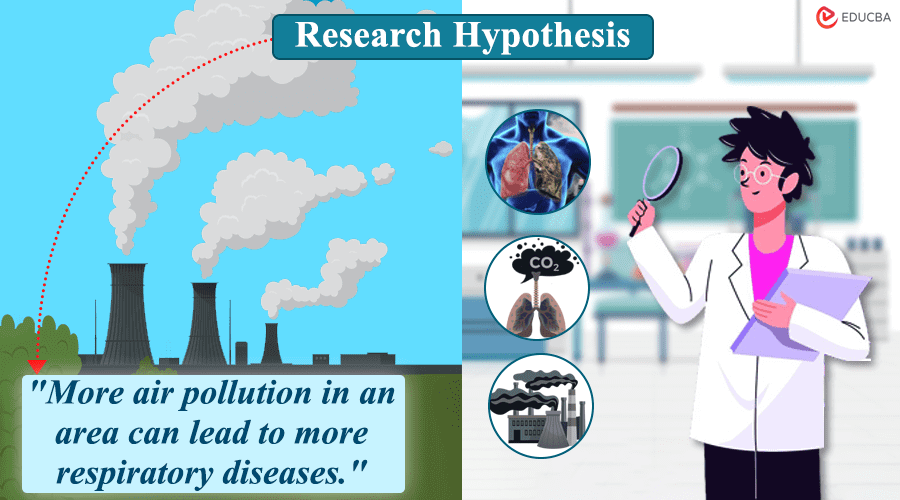
This hypothesis is needed because it provides focus, structure, and purpose to research, helping researchers test their ideas and make meaningful conclusions based on evidence gathered during their study.
Table of Content
- Types and Examples
Characteristics
How to write a research hypothesis.
- How to Test a Research Hypothesis? (with Example)
Advantages and Disadvantages
Research vs. null vs. statistical hypothesis, key highlights.
- Researchers need to develop a research hypothesis for their study to specify its direction and expectations.
- The main difference between a research hypothesis and a null hypothesis is that while a research hypothesis emphasizes the existence of a relationship between variables, a null hypothesis denies it.
- On the other hand, the main difference between a statistical and a research hypothesis is that while a research hypothesis states the relationship between any two or more variables, the statistical hypothesis only talks about the mathematical relationship of a population parameter.
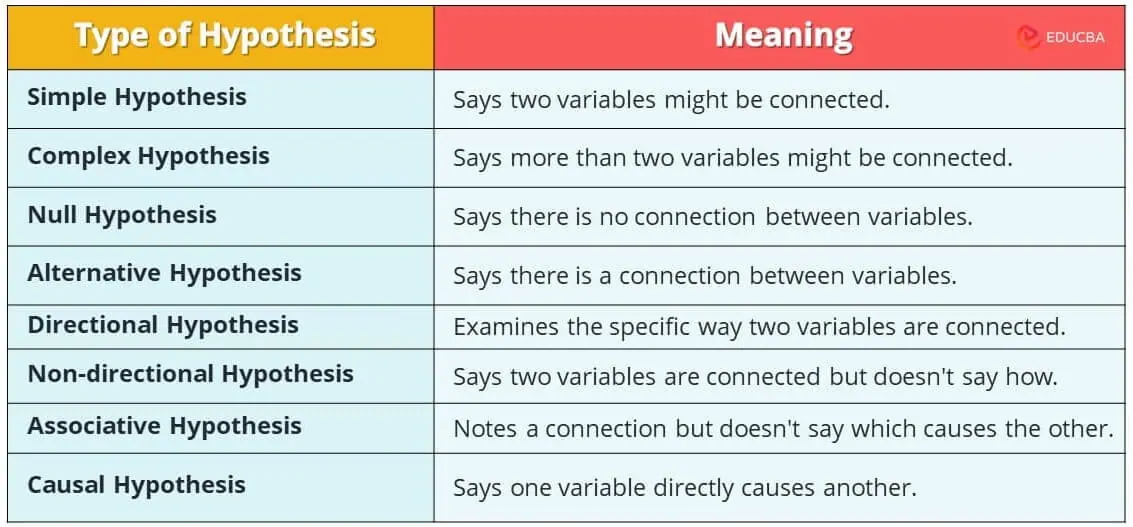
Detailed explanation of each type is as follows:
1. Simple Hypothesis
This type looks at how two variables might be related to each other. These variables are the dependent variable and independent variable. A dependent variable is a factor that changes with the changes in the independent variable.
Example of Simple Hypothesis:
Suppose you want to study the relationship between studying for long hours and grades. In this relationship, grades are the dependent variable, and hours of study are the independent variable, as getting a high or low grade depends on how much you study. And your simple hypothesis could be: “ More study time leads to higher grades .”
2. Complex Hypothesis
Unlike the simple hypothesis, a complex hypothesis predicts a relationship between multiple variables.
Example of Complex Hypothesis:
Imagine you want to understand how sleep, diet, and exercise affect health. In this case, you have one dependent variable, health, and three independent variables – sleep, diet, and exercise. Your complex hypothesis can be something like: “ A combination of enough sleep, a balanced diet, and regular exercise positively impacts overall health. “
3. Null Hypothesis
This hypothesis assumes no relationship between variables. It is a negative statement. It’s usually the opposite of your actual hypothesis.
Example of Null Hypothesis:
Suppose you are studying whether shoe size affects intelligence; the null hypothesis would say: “ There is no association between shoe size and intelligence. “
4. Alternative Hypothesis
This is the opposite of the null hypothesis. It is a statement specifying a relationship between variables.
Example of Alternative Hypothesis:
Suppose you are researching the effect of water intake on memory. An alternative hypothesis could be: “ Increased water intake improves memory performance. “
5. Directional Hypothesis
A directional hypothesis predicts the specific direction or nature of the relationship between two or more variables.
Example of Directional Hypothesis:
Let’s say you want to investigate the effect of practicing an instrument on musical skills. A directional hypothesis could be something like: “ Increased practice time improves musical skill. ” In this case, it is clear how one variable impacts the other.
6. Non-directional Hypothesis
In a non-directional hypothesis, a researcher states that two variables are related but doesn’t specify how.
Example of Non-directional Hypothesis:
Suppose you are researching the relationship between caffeine intake and heart rate. A non-directional hypothesis might state: “ There is a relationship between caffeine intake and heart rate. ” This hypothesis doesn’t tell you if caffeine intake affects the heart rate or if the heart rate affects your caffeine intake.
7. Associative Hypothesis
This hypothesis focuses on a relationship between variables but doesn’t claim that one causes the other.
Example of Associative Hypothesis:
Imagine you want to study if TV watching and increased snacking are related. An associative hypothesis might state: “ Watching more TV is related to increased snacking .”
8. Causal Hypothesis
On the other hand, a causal hypothesis suggests that the changes in one thing directly cause changes in another.
Example of Causal Hypothesis:
If you are studying sunlight exposure and vitamin D levels, a causal hypothesis could be: “ Lack of sunlight exposure causes vitamin D deficiency. “
A research hypothesis should have the following characteristics:
- Simple and Clear: A good research hypothesis should make sense, be believable, and be based on past research.
- Testability : It should be something that can be tested in real life through scientific methods like experiments or observations.
- Realistic : Your research hypothesis can’t be unrealistic or restricted by current technology.
- Proven or Disproven: Your research should either prove or disprove your research hypothesis.
- Precise and Logical : Your hypothesis should clearly state what you are trying to find out and achieve through your research. Make a declarative statement that is logical and easy to understand.
- Relationship : Your hypothesis should clearly define the factors or variables being studied and explain how they are connected.
- Further Investigations: The hypothesis should encourage future studies and experiments by keeping doors open for additional research.
It’s important for research to have a research hypothesis because of the following reasons:
- To direct the research: A hypothesis acts like a map, telling researchers where to go and what to explore during their study. It helps in focusing on specific questions.
- Provides structure and focus : It gives a clear structure to the research by defining what needs to be tested. It prevents the research from becoming disorganized.
- Adds specificity: By stating what researchers expect to find, it makes the study more specific, avoiding confusion. A research hypothesis keeps the research on track.
- Helps to draw conclusions: It assists in drawing meaningful conclusions based on evidence gathered during the research. This helps the researchers to understand and explain their findings.
- Saves time and resources : Developing a hypothesis at the beginning of the research helps in efficiently using resources by concentrating efforts on what’s important.
Below is the step-by-step guide to writing a research hypothesis.
Step 1. Find your research question.
Start by identifying what you want to research. Say, for instance, you are interested in understanding the relationship between AI and Productivity; this will form the basis of your research question. Your research question could be:
Step 2. Identify your variables
In the above example, the two variables are AI integration and employee productivity. Now, define which variable is dependent and which one is independent. The independent variable is the one you think will influence, and the dependent variable is the one that will be influenced.
Step 3: Conduct preliminary research
Before you formulate your research hypothesis, you need to find out what past research on this subject is saying. This will help you understand what direction your research might take.
Step 4. Formulate your hypothesis
Based on past research, you can now write a clear and specific statement predicting how your dependent and independent variables are connected. Now, write down your research and null hypothesis.
How to Test a Research Hypothesis?
Once you have developed your alternative/research and null hypothesis, your next task is to test your research hypothesis. Here’s how you do that:
1. Create a Research Plan
Decide how you will gather information or conduct experiments to test your hypothesis. Determine what tools or methods you will use, the research population, the research sample, sample size, etc.
2. Collect Data
Carry out your experiments or observations and gather data related to your hypothesis. For example, if you are studying the impact of study time on grades, write down how many hours each student participating in your research spends on studying and the grades they get.
3. Analyze the Data
Use statistical tools or other analysis methods to study the collected data.
4. Draw Conclusions
Based on your analysis, determine if the evidence supports your hypothesis. If the data backs up your prediction, your hypothesis is supported.
5. Communicate Findings
Share your results with others through reports or presentations, explaining how your experiments or observations relate to your hypothesis.
Let’s take the example of Dr. Lily Perry, a researcher from New York City. She wants to investigate if there is a relationship between respiratory diseases and air pollution in New York.
She starts by creating her research hypothesis and null hypothesis.
Dr. Perry followed a detailed plan to do her research:
- She checked the air quality in different parts of the city for three years (2020 to 2023) to understand how it affects people’s breathing.
- During this period, she went to many hospitals in New York and checked the medical records of patients with respiratory illnesses.
- Finally, Dr. Perry studied the information she collected and considered factors like age, gender, and money to learn more about respiratory health.
After an intensive three-year study, Dr. Perry found interesting results:
- Areas with high pollution levels had 30% more asthma patients than areas with cleaner air.
- For instance, in one neighborhood with high air pollution, the number of people with asthma increased from 100 to 130 out of 10,000.
- However, in a neighborhood with low levels of air pollution, the patient count remained at 80 out of 10,000.
Based on these results, Dr. Perry concluded that: There is a correlation between increased air pollution and respiratory diseases in New York.
She recommended the following:
- To reduce air pollution levels, government authorities should improve public transportation.
- People living in polluted areas can use face masks and air purifiers.
- When air quality is extremely bad, authorities should warn citizens to avoid outdoor activities.
- Encourage planting more trees as it can have long-term benefits.
- To reduce pollution levels, authorities should promote the use of electric vehicles more.
Following are the main advantages and disadvantages of a research hypothesis
| It gives your research a specific direction. | It can stop you from exploring all aspects of the study. |
| It helps you predict the outcome of your study. | It can cause bias as you already have an outcome in mind. |
| It assists in finding an appropriate data collection method. | You might need to revise your hypothesis based on the results of the study. |
The following are the main differences between research, null, and statistical hypothesis.
| States the expected relationship between two or more variables. | Assumes there is no relationship between the variables involved in a study. | A mathematical explanation of the relationship between variables. | |
| Individuals exercising regularly have a lower risk of heart disease. | There is no link between exercise and heart diseases. | Individuals exercising regularly have a lower resting heart rate than those who do not. | |
| To prove a certain relationship exists between the variables. | To prove the variables are not related to each other. | To be proven using statistical methods. | |
| Usually states how two variables are related. | Has no direction and emphasizes there is no correlation. | Could be directional as well as non-directional based on the context. | |
| Needs to be tested through statistical and non-statistical methods. | Assumed true until disproven by research. | Is tested with statistical methods. |
Final Thoughts
Formulating a research hypothesis is usually the first step in conducting any research. However, it is important to know that your hypothesis might be disproven on occasion as well. The purpose of the research is to determine if your predictions about a specific relationship hold in light of evidence.
Frequently Asked Questions (FAQs)
Q1. how long should a research hypothesis be.
Answer: A good research hypothesis should be just one or two sentences. For example: Increasing the amount of water that a cucumber plant receives will lead to increased production.
Q2. Where do you put the hypothesis in a research paper?
Answer: In the research paper, the hypothesis is usually placed after the introduction section. The introduction section is added after the background section and before the research methodology.
Q3. What is the research hypothesis when using ANOVA procedures?
Answer: To understand this concept, let’s use an example. Let’s say you want to investigate whether there is a difference in the average marks of students in four different divisions. For this, you can use ANOVA (it helps determine if there is a significant difference between the means of three or more samples). So, your research hypothesis would be: There is a difference in the average scores of students in the four divisions. Your null hypothesis would be: There is no difference in the average scores of students in the four divisions. To test these hypotheses, you would collect data (marks of the students) from the four divisions. You would then analyze the data using ANOVA and determine whether you should accept the research hypothesis and reject the null hypothesis or vice versa.
Q4. Does qualitative research or descriptive research have a hypothesis?
Answer: Qualitative and descriptive research typically do not have a hypothesis. Instead, they have research questions to help the researcher conduct a detailed analysis.
Examples of research questions:
- What are the challenges faced by new mothers during postpartum?
- What are the views of employees towards work-from-home during COVID-19?
Q5. What is the difference between a research hypothesis and a research question?
Answer: A research question is what you want to explore, while a research hypothesis is what you expect the outcome of the study to be.
Q6. What is an example of a good and a bad hypothesis?
Answer: “ Increased exercise leads to improved heart health ” is an example of a strong hypothesis as it predicts a clear relationship between variables. Furthermore, it is possible to test the hypothesis. On the other hand, “ Apples are better than oranges ” is an example of a bad or poor hypothesis as it is a subjective statement and can’t be tested.
Recommended Articles
- Types of Qualitative Research
- Qualitative Research vs. Quantitative Research
- Types of Research Reports
- Descriptive Research
By signing up, you agree to our Terms of Use and Privacy Policy .

*Please provide your correct email id. Login details for this Free course will be emailed to you
Forgot Password?
This website or its third-party tools use cookies, which are necessary to its functioning and required to achieve the purposes illustrated in the cookie policy. By closing this banner, scrolling this page, clicking a link or continuing to browse otherwise, you agree to our Privacy Policy

Explore 1000+ varieties of Mock tests View more
Submit Next Question
🚀 Limited Time Offer! - 🎁 ENROLL NOW

- Science, Tech, Math ›
- Social Sciences ›
- Sociology ›
- Key Concepts ›
Definition of a Hypothesis
What it is and how it's used in sociology
- Key Concepts
- Major Sociologists
- News & Issues
- Research, Samples, and Statistics
- Recommended Reading
- Archaeology
A hypothesis is a prediction of what will be found at the outcome of a research project and is typically focused on the relationship between two different variables studied in the research. It is usually based on both theoretical expectations about how things work and already existing scientific evidence.
Within social science, a hypothesis can take two forms. It can predict that there is no relationship between two variables, in which case it is a null hypothesis . Or, it can predict the existence of a relationship between variables, which is known as an alternative hypothesis.
In either case, the variable that is thought to either affect or not affect the outcome is known as the independent variable, and the variable that is thought to either be affected or not is the dependent variable.
Researchers seek to determine whether or not their hypothesis, or hypotheses if they have more than one, will prove true. Sometimes they do, and sometimes they do not. Either way, the research is considered successful if one can conclude whether or not a hypothesis is true.
Null Hypothesis
A researcher has a null hypothesis when she or he believes, based on theory and existing scientific evidence, that there will not be a relationship between two variables. For example, when examining what factors influence a person's highest level of education within the U.S., a researcher might expect that place of birth, number of siblings, and religion would not have an impact on the level of education. This would mean the researcher has stated three null hypotheses.
Alternative Hypothesis
Taking the same example, a researcher might expect that the economic class and educational attainment of one's parents, and the race of the person in question are likely to have an effect on one's educational attainment. Existing evidence and social theories that recognize the connections between wealth and cultural resources , and how race affects access to rights and resources in the U.S. , would suggest that both economic class and educational attainment of the one's parents would have a positive effect on educational attainment. In this case, economic class and educational attainment of one's parents are independent variables, and one's educational attainment is the dependent variable—it is hypothesized to be dependent on the other two.
Conversely, an informed researcher would expect that being a race other than white in the U.S. is likely to have a negative impact on a person's educational attainment. This would be characterized as a negative relationship, wherein being a person of color has a negative effect on one's educational attainment. In reality, this hypothesis proves true, with the exception of Asian Americans , who go to college at a higher rate than whites do. However, Blacks and Hispanics and Latinos are far less likely than whites and Asian Americans to go to college.
Formulating a Hypothesis
Formulating a hypothesis can take place at the very beginning of a research project , or after a bit of research has already been done. Sometimes a researcher knows right from the start which variables she is interested in studying, and she may already have a hunch about their relationships. Other times, a researcher may have an interest in a particular topic, trend, or phenomenon, but he may not know enough about it to identify variables or formulate a hypothesis.
Whenever a hypothesis is formulated, the most important thing is to be precise about what one's variables are, what the nature of the relationship between them might be, and how one can go about conducting a study of them.
Updated by Nicki Lisa Cole, Ph.D
- What It Means When a Variable Is Spurious
- Understanding Path Analysis
- Pilot Study in Research
- Simple Random Sampling
- Exploitation
- What Is Multiculturalism? Definition, Theories, and Examples
- Convenience Samples for Research
- What Is Cultural Capital? Do I Have It?
- What Does Consumerism Mean?
- Visualizing Social Stratification in the U.S.
- What Is Symbolic Interactionism?
- What Is Cultural Hegemony?
- Understanding Stratified Samples and How to Make Them
- What Is Groupthink? Definition and Examples
- What Is a Reference Group?
- What Is Ethnography?

Social Policy and Social Research (With Systematic Reviews) MSc
London, Bloomsbury
This is the programme information for 2024 entry
If you require details of this year's programme, Social Policy and Social Research (With Systematic Reviews) MSc (2025), click here
The Social Policy and Social Research (with Systematic Reviews) MSc combines a theoretical understanding of contemporary social problems, policy intervention, and policymaking processes across different sectors and countries, with advanced training in systematic reviews. This degree has ESRC 1+3 training recognition, meaning it stands alone as an MSc but can also prepare students for doctoral research.
UK tuition fees (2024/25)
Overseas tuition fees (2024/25), programme starts, applications accepted.
Applications closed
- Entry requirements
A minimum of an upper second-class Bachelors' degree from a UK university or an overseas qualification of an equivalent standard in a Social Science subject, such as Sociology, Psychology, Social Policy, Economics or History. If you do not meet these requirements, other considerations, such as relevant work experience, may be taken into account.
The English language level for this programme is: Level 4
UCL Pre-Master's and Pre-sessional English courses are for international students who are aiming to study for a postgraduate degree at UCL. The courses will develop your academic English and academic skills required to succeed at postgraduate level.
Further information can be found on our English language requirements page.
This programme is suitable for international students on a Student visa – study must be full-time, face-to-face, starting October.
Equivalent qualifications
Country-specific information, including details of when UCL representatives are visiting your part of the world, can be obtained from the International Students website .
International applicants can find out the equivalent qualification for their country by selecting from the list below. Please note that the equivalency will correspond to the broad UK degree classification stated on this page (e.g. upper second-class). Where a specific overall percentage is required in the UK qualification, the international equivalency will be higher than that stated below. Please contact Graduate Admissions should you require further advice.
About this degree
The programme will enable you to plan and appraise systematic reviews of research in any policy area, to develop a critical appreciation of the full diversity of review approaches and types of research use, and equip you with understanding and skills to help ensure perspectives from the public, practitioners, policymakers and researchers are all considered in research and policy development.
Who this course is for
The programme is suited to experienced and recent graduates alike. The programme will provide you with the skills and knowledge to pursue, or further, a career in the field of social science research and evidence-informed policy and practice. Students bring interest in varied sectors, including health, education and social/international development.
What this course will give you
This multidisciplinary programme is unique in the way that students study methods for systematic reviews of both qualitative and quantitative data, and a full range of research designs. The programme can be taken entirely at a distance, or on campus, and attracts students from across the globe, many of whom are already working for research-focused or policy-making organisations. The programme is located in the UCL Social Research Institute , a research-intensive department with an outstanding international reputation. It is taught by an interdisciplinary team, all with specialist expertise across a wide range of policy areas. As students on the specialist systematic reviews "route", you will learn from research-active tutors based at UCL’s EPPI-Centre , which is recognised worldwide for its development of methods for diverse kinds of systematic review, for the production of policy-relevant research, and for research into perspectives and participation. Our central London location and network of partners and alumni give us access to nationally and internationally prominent guest speakers who provide insight into policy as it is formed.
The foundation of your career
Students completing the programme are equipped with enhanced critical thinking skills and skills for research design and appraisal, spanning a full range of research purposes and problems. Graduates from this MSc programme have gained sought-after skills that allowed them to pursue professional careers in academia or policy research, policy analysis, policy development and implementation, programme management, and policy advocacy within the public, private, and non-profit sectors.
Employability
Graduates of previous versions of this programme are currently working across a broad range of areas. For example, one is a project director in mobile technology for learning, while another is a social research manager advising national government. Another graduate works as a senior editor of systematic research reviews. Others have gone on to doctoral studies.
Teaching and learning
Students will attend lectures and interactive seminars for each module they take. Lectures and seminars both last one hour, and students will be expected to work and prepare for classes autonomously. Seminar sessions are where students discuss and apply their learning from their lectures and other activities. Modules run as a campus-based course and a fully online (distance learning) course, with both versions of the module running in parallel. For distance-learning students, lectures, activities and exchanges between students and tutors will take place within Moodle and integrated platforms, such as Zoom. In place of the face-to-face group seminars held on campus, students taking modules at a distance will participate in various e-learning activities, facilitated by the Module Tutor leading this group.
Assessment is through coursework assignments (e.g., written essay or research proposal) and a 12,000-word dissertation.
Each 15-credit taught module involves up to 150 hours of study. This time is made up of scheduled classes and teaching (20 contact hours) as well as guided independent study (e.g., reading and preparing for lectures, carrying out e-learning and group activities, and preparing the summative assessment). The 60-credit dissertation module requires a notional learning time of about 600 hours.
Students take eight compulsory taught modules (120 credits) and a dissertation (60 credits).
The first term of the programme introduces you to the definition and study of policy processes, social problems, and policy intervention. You also take two systematic review modules.
The second term provides you with the opportunity to explore international comparisons of social policy, and the use of research to support policy processes. You also take the remaining systematic review modules and begin work on your final research project, the dissertation.
In the summer term, you work full-time on your dissertation, with a submission date in late August/early September.
Over the two years, students take eight compulsory taught modules (120 credits) and a dissertation (60 credits).
The first year of the programme introduces you to the definition and study of policy processes. In addition, you select a further three to five of the taught modules. The number of modules that you take in each academic year (and in each term) will depend on your commitments outside UCL (e.g., employment and family responsibilities).
In the second year, you will take the remaining modules (bringing the total number to eight), and begin work on your final research project, the dissertation, with a submission date in late August/early September.
Where relevant, you will be required to take introductory modules before moving on to the more advanced ones.
Students take eight compulsory taught modules (120 credits) and a dissertation (60 credits), and have between two and five years in which to complete the programme.
The first year of the programme introduces you to the definition and study of policy processes. The remaining taught modules can be taken at any time.
Work on the dissertation begins in the final year, with a submission date in late August/early September.
Compulsory modules
Please note that the list of modules given here is indicative. This information is published a long time in advance of enrolment and module content and availability are subject to change. Modules that are in use for the current academic year are linked for further information. Where no link is present, further information is not yet available.
Students undertake modules to the value of 180 credits. Upon successful completion of 180 credits, you will be awarded an MSc in Social Policy and Social Research (With Systematic Reviews).
Accessibility
Details of the accessibility of UCL buildings can be obtained from AccessAble accessable.co.uk . Further information can also be obtained from the UCL Student Support and Wellbeing Services team .
Fees and funding
Fees for this course.
| Fee description | Full-time | Part-time |
|---|---|---|
| Tuition fees (2024/25) | £15,100 | £7,550 |
| Tuition fees (2024/25) | £31,100 | £15,550 |
Pathways include: With Systematic Reviews (TMSSOCSPSR01) Programme also available on a modular (flexible) basis .
The tuition fees shown are for the year indicated above. Fees for subsequent years may increase or otherwise vary. Where the programme is offered on a flexible/modular basis, fees are charged pro-rata to the appropriate full-time Master's fee taken in an academic session. Further information on fee status, fee increases and the fee schedule can be viewed on the UCL Students website: ucl.ac.uk/students/fees .
Additional costs
The purchase of books may constitute an additional cost, but there is no requirement to purchase any book as part of the programme. If fieldwork is conducted for the dissertation, this is also at your own expense and should be estimated according to the type and length of fieldwork proposed. Fieldwork is not compulsory to complete a dissertation.
Students should take into account any travel, accommodation and expenses involved in their report or dissertation.
For more information on additional costs for prospective students please go to our estimated cost of essential expenditure at Accommodation and living costs .
Funding your studies
Applicants may be eligible to apply for funding from the Economic and Social Research Council via the UCL, Bloomsbury and East London Doctoral Training Partnership. The MSc provides Master's-level postgraduate training which can constitute the first year of ESRC 1+3 postgraduate PhD studentships. Further information: https://ubel-dtp.ac.uk/
For a comprehensive list of the funding opportunities available at UCL, including funding relevant to your nationality, please visit the Scholarships and Funding website .
IOE-Clarke Scholarships
Deadline: 3 May 2024 Value: Tuition fees, return flights and stipend (1 year) Criteria Based on both academic merit and financial need Eligibility: EU, Overseas
IOE-ISH Centenary Masters Scholarships
Deadline: 3 May 2024 Value: Tuition fees and accommodation (1 year) Criteria Based on both academic merit and financial need Eligibility: EU, Overseas
Students are advised to apply as early as possible due to competition for places. Those applying for scholarship funding (particularly overseas applicants) should take note of application deadlines.
There is an application processing fee for this programme of £90 for online applications and £115 for paper applications. Further information can be found at Application fees .
When we assess your application we would like to learn:
- Why you want to study Social Policy and Social Research (with Systematic Reviews) at graduate level
- Why you want to study Social Policy and Social Research (with Systematic Reviews) at UCL
- What particularly attracts you to the chosen programme
- How your academic and professional background meets the demands of this challenging programme
- Where you would like to go professionally with your degree
Together with essential academic requirements, the personal statement is your opportunity to illustrate whether your reasons for applying to this programme match what the programme will deliver.
Any late applications will only be considered after all those received by the closing date.
Please note that you may submit applications for a maximum of two graduate programmes (or one application for the Law LLM) in any application cycle.
Got questions? Get in touch

Social Research Institute
UCL is regulated by the Office for Students .
Prospective Students Graduate
- Graduate degrees
- Taught degrees
- Taught Degrees
- Applying for Graduate Taught Study at UCL
- Research degrees
- Research Degrees
- Funded Research Opportunities
- Doctoral School
- Funded Doctoral Training Programmes
- Applying for Graduate Research Study at UCL
- Teacher training
- Teacher Training
- Early Years PGCE courses
- Primary PGCE courses
- Secondary PGCE courses
- Further Education PGCE programme
- How to apply
- The IOE approach
- Teacher training in the heart of London
- Why choose UCL?
- Entrepreneurship
- Inspiring facilities and resources
- Careers and employability
- Your global alumni community
- Your wellbeing
- Postgraduate Students' Association
- Your life in London
- Accommodation
- Funding your Master's
Texas set to execute man on discredited 'shaken baby syndrome' hypothesis
Robert Roberson is scheduled for execution on Oct. 17.
Robert Roberson is set to be the first person to be executed in the U.S. based on the largely discredited "shaken baby syndrome" hypothesis unless Texas officials intervene .
On Monday, Roberson's attorneys filed an emergency motion asking the Texas Court of Criminal Appeals to halt Roberson's Oct. 17 execution.
"[Roberson] fluctuates between despair, and then being buoyed with hope when anyone expresses sympathy and encouragement," his attorney Gretchen Sween told ABC News. "It is yet another layer of cruelty in this process watching what he's going through."

Nikki's death
According to Roberson's attorneys, he woke up to find his 2-year-old daughter Nikki lying on the floor at the foot of the bed one night in 2002. They say Roberson comforted her, put her back to bed and went back to sleep himself. He found Nikki unconscious with blue lips when he woke up the next morning. He took her to an emergency room, where she was ultimately pronounced dead.
Roberson, a 57-year-old man, was then convicted in her death.
Roberson was found guilty based on the testimony from a pediatrician who cited swelling and hemorrhages in Nikki's brain at the time as a "shaken baby syndrome" diagnosis even though there is limited evidence to support this as an accurate diagnosis. The hypothesis has come under serious scrutiny in biomechanical studies, as well as lengthening medical and legal literature . The medical examiner also suspected that Nikki sustained multiple head injuries, and considered the death a homicide in the official autopsy.
ABC News has reached out to both the pediatrician and medical examiner cited in court documents for comment.
Roberson is autistic, according to his legal team, which affects how he expresses emotions -- a concern that also arose during the trial.
Since his conviction, new evidence found that Nikki had pneumonia at the time of her death and had been prescribed respiratory-suppressing drugs by doctors in the days leading up to her death. These drugs include the narcotic drug codeine and promethazine, both of which are no longer prescribed to children Nikki's age or those in her condition because it could impair their ability to breathe and be deadly.
Following a post-mortem toxicology report, medical toxicology and emergency room medicine expert Dr. Keenan Bora concluded that high levels of promethazine are likely to have exacerbated Nikki's issues breathing.
A reexamination of her lung tissue by lung pathology expert Dr. Francis Green also found that chronic interstitial viral pneumonia and acute bacterial pneumonia were damaging her lungs, causing sepsis and then septic shock, leading to vital organ failure.
Over 30 medical and scientific experts have written to the Texas Board of Pardons and Paroles to reconsider Roberson's sentence that was hinged on the "shaken baby syndrome."
"Today, no reputable medical doctor would fail to conduct a thorough, multi-disciplined exploration of all possible causes of death because it is now known that many phenomena — including accidental short falls and naturally occurring disease — can cause the same intracranial conditions that 'mimic' inflicted head injury," the letter read.

MORE: The fight for exoneration: Over 29,100 years 'lost' in prison in wrongful convictions, database finds
Legal questions continue.
Roberson's attorneys argue that state law Article 11.073 enables reviews of wrongful convictions based on changes in scientific evidence.
A bipartisan group of 86 Texas House of Representatives members have spoken out in support of Roberson's clemency request, arguing that Article 11.073 should have resulted in a new trial.
"Meeting Robert truly brought home the tragic reality of his situation," state Rep. Lacey Hull said in a statement to the advocacy group the Innocence Project. "Despite his pending execution, he is full of hope and faith and a desire to help others. He still grieves the loss of his daughter and is hopeful and thankful to everyone helping his cause. I am praying that he sees the justice and new trial that he and Nikki deserve."
In 2013, the Texas Court of Criminal Appeals denied Roberson's request to overturn his conviction, after a local judge argued his case had insufficient evidence, according to The Texas Tribune.
The Court of Criminal Appeals denied Roberson's most recent petition for a new trial in September, dismissing the application as "an abuse of the writ," or raising a claim that should have been raised in an earlier petition.
The court declined to address the merits of Roberson's claim in the dismissal.
Lead detective Brian Wharton, who directed Roberson to be arrested based on the "shaken baby" theory and testified against him in the trial, has also since called for Roberson's freedom.
"I will forever be haunted by the role I played in helping the State put this innocent man on death row," he said in a letter in support. "Robert's case will forever be a burden on my heart and soul. But it is not too late for Texas to change course and stop his execution. I sincerely hope that Governor Abbott and the Board will step in to do so."
Since 1992, more than 30 people have been exonerated after being wrongfully convicted under the shaken baby hypothesis, according to the National Registry of Exonerations.
ABC News has reached out to Texas Gov. Greg Abbott and the Texas Board of Pardons and Paroles for further comment.
Popular Reads

Hurricane Milton expected to change Florida coast
- Oct 8, 5:02 PM

SCOTUS hears 'remarkable' death penalty appeal
- Oct 9, 5:02 AM

Aurora mayor pushes back against Trump's claims
- Oct 8, 7:14 PM

North Korean defector stole bus to reenter: Police
- Oct 9, 5:12 AM

Police K-9 retires after 8-year career
- Oct 9, 3:44 AM
ABC News Live
24/7 coverage of breaking news and live events
Have a language expert improve your writing
Check your paper for plagiarism in 10 minutes, generate your apa citations for free.
- Knowledge Base
- Plural of Hypothesis | Definition, Spelling & Examples
Plural of Hypothesis | Definition, Spelling & Examples
Published on October 3, 2024 by Ryan Cove .
The plural of “hypothesis” is hypotheses , pronounced [hahy- poth -uh-seez].
“Hypothesis” is a Greek-derived irregular plural noun that follows Greek pluralization rules. Instead of following the common pluralization rules of English, where you simply add “ -s ” or “ -es ” to the end of the word, Greek-derived words ending in “ -is ” are made plural by changing the “ -is ” to “ -es .”
Table of contents
Hypothesis vs. hypotheses, what is an irregular plural noun, frequently asked questions about the plural of hypothesis.
A hypothesis is an assumption or explanation based on limited evidence and the starting point for further experimentation. It is a testable statement that predicts a possible outcome or relationship between variables in scientific research.
Hypotheses is the plural word of “hypothesis” and refers to multiple explanations or assumptions that are to be tested in a scientific way.
People sometimes mistakenly use “hypothesises” as the plural of “hypothesis,” but that is incorrect. The word “hypothesis” is an irregular plural noun, meaning it doesn’t follow the regular rules of pluralizing by simply adding “ -s ” or “ -es ” to the end of the noun (e.g., dog/dogs or wish/wishes ).
Instead, “hypothesis” follows Greek pluralization rules and changes the “ -is ” at the end of the singular form to “ -es ” to form the plural (e.g., diagnosis/diagnoses or crisis/crises ).
“Hypothesis” happens to be a Greek-derived irregular plural, but there are irregular plurals that are derived from other languages such as Latin (e.g., stimulus/stimuli ), Old English (e.g., man/men ), and Dutch (e.g., hoof/hooves ).
| Singular | Plural |
|---|---|
| matrix | matrices |
| woman | women |
| parenthesis | parentheses |
| vertex | vertices |
Another type of irregular plural is called zero plurals . This is a noun that remains the same in both the singular and plural forms.
| Singular | Plural |
|---|---|
| spacecraft | spacecraft |
| jeans | jeans |
| furniture | furniture |
| species | species |
Yes, hypothesis is a word. It refers to an assumption or explanation based on limited evidence and is the starting point for further experimentation.
The plural of hypothesis is hypotheses .
Scribbr’s free Grammar Checker can help ensure all your words are correct no matter what you’re writing.
Some synonyms for the word “hypothesis” include:
- Presumption
- Supposition
Scribbr’s free Paraphrasing Tool will help you easily find synonyms for any word you use in your writing.
Cite this Scribbr article
If you want to cite this source, you can copy and paste the citation or click the “Cite this Scribbr article” button to automatically add the citation to our free Citation Generator.
Cove, R. (2024, October 03). Plural of Hypothesis | Definition, Spelling & Examples. Scribbr. Retrieved October 8, 2024, from https://www.scribbr.com/plurals/hypothesis-plural/
Is this article helpful?

Other students also liked
How to tell if a noun is countable or uncountable | examples, subject-verb agreement | examples, rules & use, irregular verbs | definition, examples & worksheet.

IMAGES
VIDEO
COMMENTS
A research hypothesis (also called a scientific hypothesis) is a statement about the expected outcome of a study (for example, a dissertation or thesis). To constitute a quality hypothesis, the statement needs to have three attributes - specificity, clarity and testability. Let's take a look at these more closely.
Definition: Hypothesis is an educated guess or proposed explanation for a phenomenon, based on some initial observations or data. It is a tentative statement that can be tested and potentially proven or disproven through further investigation and experimentation. Hypothesis is often used in scientific research to guide the design of experiments ...
Simple hypothesis. A simple hypothesis is a statement made to reflect the relation between exactly two variables. One independent and one dependent. Consider the example, "Smoking is a prominent cause of lung cancer." The dependent variable, lung cancer, is dependent on the independent variable, smoking. 4.
Developing a hypothesis (with example) Step 1. Ask a question. Writing a hypothesis begins with a research question that you want to answer. The question should be focused, specific, and researchable within the constraints of your project. Example: Research question.
It seeks to explore and understand a particular aspect of the research subject. In contrast, a research hypothesis is a specific statement or prediction that suggests an expected relationship between variables. It is formulated based on existing knowledge or theories and guides the research design and data analysis. 7.
A hypothesis is a tentative statement about the relationship between two or more variables. It is a specific, testable prediction about what you expect to happen in a study. It is a preliminary answer to your question that helps guide the research process. Consider a study designed to examine the relationship between sleep deprivation and test ...
A research hypothesis helps test theories. A hypothesis plays a pivotal role in the scientific method by providing a basis for testing existing theories. For example, a hypothesis might test the predictive power of a psychological theory on human behavior. It serves as a great platform for investigation activities.
A research hypothesis, in its plural form "hypotheses," is a specific, testable prediction about the anticipated results of a study, established at its outset. It is a key component of the scientific method. Hypotheses connect theory to data and guide the research process towards expanding scientific understanding.
A hypothesis states your predictions about what your research will find. It is a tentative answer to your research question that has not yet been tested. For some research projects, you might have to write several hypotheses that address different aspects of your research question. A hypothesis is not just a guess — it should be based on ...
Step 5: Phrase your hypothesis in three ways. To identify the variables, you can write a simple prediction in if … then form. The first part of the sentence states the independent variable and the second part states the dependent variable. If a first-year student starts attending more lectures, then their exam scores will improve.
According to the definition, the hypothesis is an assumption about the relationship between the objects of study. Since statistics is a field of research, the hypothesis is a predictive statement that can be tested empirically. 3. Facilitates Testability and Empirical Investigation.
What they need at the start of their research is to formulate a scientific hypothesis that revisits conventional theories, real-world processes, and related evidence to propose new studies and test ideas in an ethical way.3 Such a hypothesis can be of most benefit if published in an ethical journal with wide visibility and exposure to relevant ...
3. Clarity: A research hypothesis should be written in clear and concise language. It should avoid ambiguity and ensure that the intended meaning is easily understood by the readers. Clear language helps in communicating the hypothesis effectively and facilitates its evaluation. 4.
The steps to write a research hypothesis are: 1. Stating the problem: Ensure that the hypothesis defines the research problem. 2. Writing a hypothesis as an 'if-then' statement: Include the action and the expected outcome of your study by following a 'if-then' structure.
A hypothesis is a statement that explains the predictions and reasoning of your research—an "educated guess" about how your scientific experiments will end. As a fundamental part of the scientific method, a good hypothesis is carefully written, but even the simplest ones can be difficult to put into words.
A research hypothesis defines the theory or problem your research intends to test. It is the "educated guess" of what the final results of your research or experiment will be. Before you can write the research hypothesis and its alternative, you must focus and define your research problem.
Step 5: Present your findings. The results of hypothesis testing will be presented in the results and discussion sections of your research paper, dissertation or thesis.. In the results section you should give a brief summary of the data and a summary of the results of your statistical test (for example, the estimated difference between group means and associated p-value).
A hypothesis (plural hypotheses) is a proposed explanation for an observation. The definition depends on the subject. In science, a hypothesis is part of the scientific method. It is a prediction or explanation that is tested by an experiment. Observations and experiments may disprove a scientific hypothesis, but can never entirely prove one.
This statement is based on background research and current knowledge.8,9 The research hypothesis makes a specific prediction about a new phenomenon10 or a formal statement on the expected relationship between an independent variable and a dependent variable.3,11 It provides ... and the definition of qualitative hypothesis-generating research in ...
Here's a snapshot to help you differentiate between all types of research hypothesis easily. Detailed explanation of each type is as follows: 1. Simple Hypothesis. This type looks at how two variables might be related to each other. These variables are the dependent variable and independent variable.
A hypothesis is a prediction of what will be found at the outcome of a research project and is typically focused on the relationship between two different variables studied in the research. It is usually based on both theoretical expectations about how things work and already existing scientific evidence. Within social science, a hypothesis can ...
Migraine is a cyclical neurological disorder characterized by recurring attacks and multiple phases: interictal, premonitory or prodrome, headache, and postdrome (1,2).The prodrome is the beginning of the migraine attack, representing the transition from the interictal to the headache phase (), and is considered a symptomatic phase ().The starting of the prodrome could result from cyclical ...
A research hypothesis is your proposed answer to your research question. The research hypothesis usually includes an explanation ("x affects y because …"). A statistical hypothesis, on the other hand, is a mathematical statement about a population parameter. Statistical hypotheses always come in pairs: the null and alternative hypotheses.
The Social Policy and Social Research (with Systematic Reviews) MSc combines a theoretical understanding of contemporary social problems, policy intervention, and policymaking processes across different sectors and countries, with advanced training in systematic reviews. This degree has ESRC 1+3 training recognition, meaning it stands alone as an MSc but can also prepare
Tan Kai Xian, an analyst at financial research service Gavekal, says there are three scenarios for the yield curve, and for each he gives the implication for the U.S. stock market.
Research methods are specific procedures for collecting and analyzing data. Developing your research methods is an integral part of your research design. When planning your methods, there are two key decisions you will make. First, decide how you will collect data. Your methods depend on what type of data you need to answer your research question:
Robert Roberson is scheduled for execution on Oct. 17. Robert Roberson is set to be the first person to be executed in the U.S. based on the largely discredited "shaken baby syndrome" hypothesis ...
Hypothesis vs. hypotheses. A hypothesis is an assumption or explanation based on limited evidence and the starting point for further experimentation. It is a testable statement that predicts a possible outcome or relationship between variables in scientific research.